Public safety has a perception problem
Often a perception gap exists between how safe city dwellers feel and their statistical risk of

27%
Just over a quarter of Americans rate Chicago as a safe place to visit.
Gallup, August 2023

Often a perception gap exists between how safe city dwellers feel and their statistical risk of

27%
Just over a quarter of Americans rate Chicago as a safe place to visit.
Gallup, August 2023
The $7 billion plan would bring 14 million square feet of new living and lifestyle development to the area over the next decade-plus
By Danny Ecker
The owners of the United Center have revealed more details of their $7 billion plan to redevelop the arena’s surroundings, seeking city approval for nearly 9,500 apartments, more than 1,300 hotel rooms and a residential high-rise that would dwarf buildings in the surrounding area.
The specifics were disclosed in a zoning application by the venue’s ownership, a first formal step toward a megaproject that would dramatically reshape the
city’s Near West Side. The Reinsdorf and Wirtz families, which respectively own the Chicago Bulls and Blackhawks and jointly own the arena at 1901 W. Madison St., announced plans in July for the so-called 1901 Project that would bring 14 million square feet of new development to the area over the next decade-plus.
Touting the plan as a “catalytic development” for the West Side, the arena owners said at the time they could begin the first phase of the project as soon as next spring, pending a sign-off on the
plan by the City Council.
The application specifies that 1,893 apartments — 20% of the 9,463 total proposed units — built across the expanded campus would be affordable to comply with the city’s ordinance governing affordable housing in new developments. Many of the residential projects contemplated would be built on surface parking lots that encircle the United Center today and are controlled by arena ownership. The plan also calls for more than 25







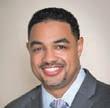

Reams of literature, much of it bad, has been churned out extolling baseball’s Opening Day as metaphor for the power of renewal and . . . excuse me while I yawn.
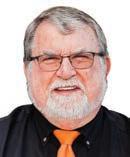
Dan McGrath
I prefer “fall ball.” The earlier darkness, the brisk hint of autumn in the air, the sense of time running out . . . the languid pace of the summer game gives way to a crackling sense of urgency when the calendar hits September.
Or it does if the games mean anything, which hasn’t been the case in Chicago for a while.
I know, those gritty Cubs are hanging in there, clawing at that final wild-card spot, battling gamely to be the sixth-best team in the 15-team National League.
I know, too, that eight wild-card teams have gone on to become World Series champions, the Texas Rangers just last year. You get in the
tournament, and anything . . . excuse me while I yawn again.
The Cubs are a major-market enterprise with the major-market resources to be much better than sixth best in a 15-team league. There’s that shrine of a ballpark that an adoring fan base keeps filled all season, for starters, as well as the team's own TV network.
What they are, though, is a decent team with some nice players, but no stars. They won’t have a .300 hitter, a 30-homer man or a 100-RBI guy, playing half their games in a ballyard that rewards pop. Who’s their Shohei Ohtani, their Mookie Betts, their Bryce Harper, their Kyle Schwarber?
Oh wait.
Pete Crow-Armstrong might be the future, but he has to grow up first. Flinging his bat, slamming his helmet after a strikeout — bush league, son. Unprofessional.
You might have thought the Cubs had a shot at the small-market, division-leading Milwaukee Brewers when one-time MVP Christian Yelich went down, but Willy Adames transformed into a
monster and Jackson Chourio emerged as the game’s best 20-yearold since Ronald Acuña Jr.
As Harry Caray used to ask so plaintively, “Why can’t we get guys like that?”
You can, but they come with price tags, and spending big money wisely has rarely been the Cubs’ M.O. Seven years and $177 million for Dansby Swanson? When Swanson, Cody Bellinger, Ian Happ and Seiya Suzuki are your bigmoney nucleus, you’re a wild-card aspirant at best.
And that’s your 2024 Cubs.
The White Sox, meanwhile, stopped playing meaningful games in April, a historically horrid season — the backdrop for yet another rebuild.
This one is in the hands of Chris Getz, and what’s scary about it is Chairman Jerry Reinsdorf saying he promoted Getz after visiting the minor league clubs and observing how sharp and crisp and fundamentally sound the players were — like a collection of David Ecksteins.
Getz, of course, was the Sox's
farm director before ascending to the Big Chair.
Reinsdorf must have been watching grainy old film of his beloved Brooklyn Dodgers, because there is no way many of the aspirants who have worn White Sox colors this season could pass for major leaguers.
Or maybe he simply doesn’t know good baseball from bad anymore.
The fans do. Guaranteed Rate Field has been as bustling as a video store.
And it’s going to take more than a new ballpark to fix this mess, which Reinsdorf should have realized before he started asking for one.
Speaking of clown-car moments, there have been too many to list here, but Lenyn Sosa’s hat trick stands out.
On Aug. 28, in a 4-3 loss to the Rangers, Sosa committed an error that led to a run; he was called out for interference for failing to leave the batter’s box after hitting a pop-up within reach of the catcher, and he was obviously elsewhere when Korey Lee’s throw
down to second after Jared Shuster’s warmup pitches nailed him in the nose.
Even the reputed major leaguers on the roster got caught up in the awful. Luis Robert Jr. declined to throw home on a fly ball to medium-deep center field as Andres Gimenez dashed home with the winning run in a 7-6 loss at Cleveland on July 2.
And Andrew Vaughn was a central figure as those same Guardians scored four runs on two infield hits while beating the Sox 6-4 here two weeks ago.
You just don’t see that in major league baseball.
And you don’t hear an absurdly exuberant TV broadcaster offering the gee-whiz perspective of an 8-year-old at his first game, but that’s another story.
Poor Caleb Williams. The preoccupation with his performance — and pitiful protection — wouldn’t be nearly so intense if there were “fall ball” offering a diversion.
Not here, not now . . . and who knows when.
By Ally Marotti
The Michelin Guide added three Chicago restaurants to its list of recommended places to eat, teasing potential future recognitions for the newcomers.
The three restaurants are Anelya, a Ukrainian restaurant in the Avondale neighborhood; Bayan Ko, a Filipino/Cuban restaurant in Ravenswood; and Beity, a Lebanese spot in the Fulton Market District.
The three restaurants are now listed in the “new” section of Michelin’s website. They could also be contenders for a Michelin star, one of the highest honors in the restaurant world. A news release from Michelin also said that the restaurants alternatively could be named to its Bib Gourmand list, which features restaurants the company deems to serve highquality food at a reasonable price.
Last year, Michelin added five new Chicago names to its Bib Gourmand list in November, bringing the local total to 47. It revealed its star list for the city a few days later, adding a three-star restaurant to the roster with Smyth in the West Loop. Two other Chicago restaurants — Atelier and Indienne — received a single star for the first time.
Michelin changed its process for announcing stars last year. Previ-
ously, that announcement was made in the spring. Instead, Michelin unveiled the winners at a November ceremony in New York City.
Michelin’s Sept. 11 announcement of the three new Chicago names is the company’s first tease for this year’s stars.
Anelya is the most recent restaurant from chef Johnny Clark and Beverly Kim. (The husband-andwife team closed their previous Michelin-starred restaurant, Parachute, earlier this year.) Anelya, which is in the Avondale neighborhood, opened last October. It is named for Clark’s grandmother, who came to the U.S. after World War II. Most of the staffers at Anelya are Ukrainian refugees, and they have influenced the menu with cooking tips and tricks from their hometowns.
“Throw back a shot of horseradish-infused vodka or sip a glass of Balkan wine in the bar before moving to the cozy dining room,” the Michelin Guide states. “An array of hors d'ouevres is displayed on the zakusky cart loaded with the likes of sunflower seed hummus, tart roe tarts, and carrot salad.”
Bayan Ko is also from a husbandand-wife team: Lawrence Letrero and Raquel Quadreny. Their tasting menu digs into their own Cuban and Filipino heritages. Michelin
In Crain’s “Best places to work in Chicago” section that was published in the Sept. 16 issue, Bailey Edward’s profile should have stated that 100% of its employees work remotely at least part time. Klein & Hoffman’s profile also should have stated that 95% of its employees work remotely at least part time.
calls the dining room “relaxed” and the menu “zippy.”
“Black rice and lobster poached in calamansi butter come together for their version of arroz caldo,” the guide states. “Vaca frita translates here to grilled wagyu beef with black bean and plantain purees. Smeared in mojo and sporting a fine crust,
pork belly is a recent highlight.”
Beity, from chef Ryan Fakih, features stone walls, an arched ceiling and a lower level with its own fireplace — not the type of vibe typically available in Fulton Market. Fakih also taps into his heritage for the Lebanese cuisine. Michelin says his mezze of parsley hummus with
lamb, falafel in yogurt sauce and pita “makes a strong impression.”
“Such a spread shows both heart and refinement,” the guide states.
“The tasting menu riffs from there with more stylized interpretations of sayadieh (fish and rice) and mograbieh (chicken stew) and concludes with a flurry of small, sweet bites.”
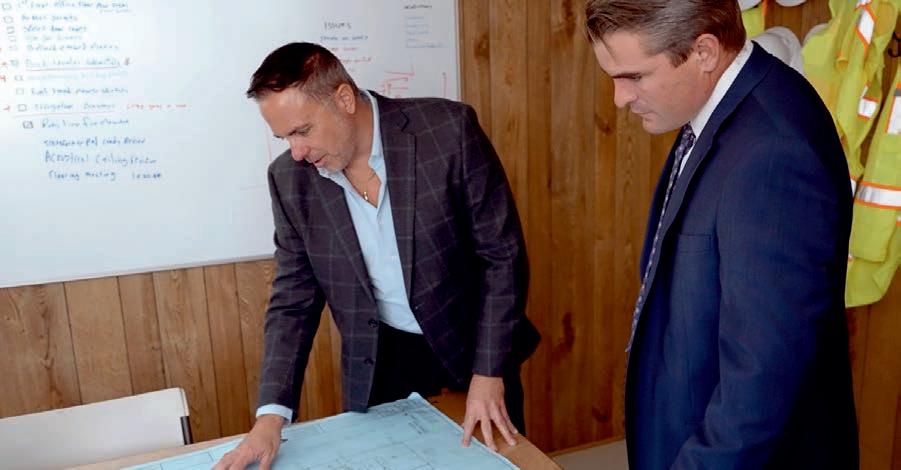

“It’s the partnership that matters.”
BART VITTORI – CHIEF

LINZ


By Mark Weinraub
This summer, a program started by Balyasny Asset Management to get more young people from low-income backgrounds into financial services hit a troubling snag.
For the first time, the nonprofit that runs the program was not able to find internships for all its students.
Started in 2021 with financial support from the Chicago-based investment giant, Atlas Fellows guarantees incoming college freshmen from Chicago and New York an internship at Balyasny Asset Management, plus $20,000 in tuition assistance and help securing additional financial services internships for the remainder of their college tenure. But this year, as backlash to
corporate diversity programs grew, some companies pulled back. Atlas Fellows Executive Director Phoebe Anderson told Crain’s the lack of opportunities was likely the result of DEI concerns combined with economic uncertainty.
The development raises the question of whether pushback to diversity, equity and inclusion efforts in corporate America is hurting the pipeline of diverse candidates in financial services, already a notoriously tough industry to break into.
“To me there is just a broader uncertainty,” said Denise Lewin Loyd, associate dean for equity and associate professor of business administration at the Gies College of Business at the University of Illinois. “I think some people are in a little bit of a sta-
sis, a holding pattern waiting to see where all this is going to fall out.”
In the wake of last year’s Supreme Court decision striking down affirmative action in college admissions, a number of Wall Street firms began quietly tweaking their programs aimed at creating more opportunities for people of color and other diverse candidates in the financial services field.
Goldman Sachs, Bank of America and JPMorgan Chase were among several large banks and investment firms Bloomberg cited in a March report as pulling back, instead opening their programs to everyone regardless of race or gender.
JPMorgan Chase CEO Jamie
See DEI on Page 47
By Ally Marotti
These days, it’s just a quick trip to pop into one of Chicago’s food halls for lunch on a Monday.
At The Sterling, the food hall at 125 S. Clark St. formerly known as Revival, the checkout lines were short around 12:15 p.m. About an hour later at the Old Post Office’s From Here On, workers tidied up the mostly empty tables for the day. Fridays are even slower.
Chicago’s food halls were not built to be busy only three days a week during lunchtime. With Loop office occupancy rates still sagging from the pandemic, the businesses once predicated on vast numbers of customers are being forced to forge a new business model. New operators have taken over many of Chicago’s established food halls in recent months. They are working to get more customers in beyond lunchtime, and — this is key — striking deals with landlords that share the capital risk.
“We all know that people are not going to work in person” daily anymore, said Bruce Finkelman, managing partner of 16” on Center, the group that opened Revival in 2016 and exited operations this summer. “The food hall and it being busy or not busy, especially for the lunch hours, is predominantly based on how many people you have in the Loop for work.”
cade ago. They were an evolution of a food court, but instead of national chains like Sbarro, they often featured local mom-and-pop joints. Landlords or developers built out the space, then the food hall operator would lease it. The mom-and-pop joints in each stall paid the operator a portion of their top-line sales. For them, it was a chance to sell their food to the masses of office workers that swarmed the Loop each day, without the overhead of a stand-alone, brick-and-mortar location. The landlords viewed the food halls as vital amenities that helped attract tenants.
Losing that foot traffic postpandemic meant that the traditional landlord-lease situation no longer worked for food hall operators. They could not afford rent. Some negotiated new deals, but it is difficult for operators already locked into leases to restructure them. Landlords,
“It’s a triage until we get into a better marketplace where that population returns.”
Todd Siegel, senior vice president at CBRE
unwilling to give up on the capital investment they made to build out the food halls years ago, sought out different companies to operate them.
For the past few months, Chicago’s average office occupancy has hovered around half of what it was pre-pandemic, according to data from real estate technology firm Kastle Systems. That data, Finkelman said, tells the story.
Food halls began springing up in Chicago’s Loop about a de-
The new era of food hall deals typically requires operators or the restaurants in the stalls to pay landlords a percentage of top-line sales rather than fixed rent.
“It’s a triage until we get into a better marketplace where that population returns,” said Todd Siegel, senior vice president at real estate brokerage CBRE.
“The idea and the human na-
See FOOD HALLS on Page 47
By John Pletz
Constance Freedman has raised a $230 million third fund at Chicago-based venture-capital firm Moderne Ventures.
Freedman is one of a handful of women leading venture funds in Chicago (or anywhere else, for that matter) and one of the earliest. PitchBook estimates women make up the majority of decision-makers at just 11% of venture firms.
Rarer still is raising a third fund. It gets harder to raise each successive fund. Moderne’s first fund in 2015 was $43 million. It
raised $200 million in 2021.
Moderne is one of the few relatively recent Chicago-based venture funds over $200 million, including S2G, Valor Siren Ventures, Energize Capital, Jump Capital and Baird Capital. Large pools of capital are critical to a vibrant startup scene, and the number of funds over $200 million has slowly expanded.
Raising money for a venture fund — big or small — has been a tougher sell the past two years. After a reset in venture-backed valuations two years ago, exits, such as IPOs and acquisitions, have been

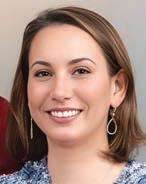
hard to come by. Without returns coming in, it’s hard for all but the most dedicated venture investors to justify putting out more money.
The amount of venture capital raised last year was about half the
recent peak set in 2021, according to PitchBook data. It’s on pace to fall further this year.
Freedman, who ran the Second Century venture fund for the National Association of Realtors before setting off to launch her own fund, says Moderne benefits from a strong base of strategic investors such as corporations.
“About 40% of the capital comes from strategic investors,” she says. “But they were harder to get because they’re having their own challenges. Almost all of them came in. Many doubled or tripled down. There's also a
bunch of new financial investors.”
Among the new backers are several institutional investors, such as GCM Grosvenor, which are critical to raising larger follow-on funds.
“Constance and her partners have a strong team, a value-add strategy and a great track record,” says Michael Sacks, chairman of GCM Grosvenor.
Freedman has roots in real estate, but she says Moderne has deliberately sought deals with broader appeal.
“We look for companies that
By Jon Asplund
Level Ex has sent a video game to space to train astronauts on ultrasound technology.
The Chicago-based company, which makes training modules designed as medical education video games, partnered with the Polaris Program and SpaceX to be part of this month’s Polaris Dawn mission.
Four commercial astronauts took off Sept. 10 on a mission to conduct a number of experiments in orbit, chief among those being the first commercial flight spacewalk.
“Space
were set use the tool in space without having seen it before, while the other half received training on the ground, Level Ex said in a press release. The experiment was to test how ultrasound technology and the training tool would work for astronauts in space, comparing scan quality between the two groups, the company said.
The Polaris Project is attempting to prepare humans for longterm space flight to the moon, Mars and beyond, by conducting experiments to understand more about the extreme challenges of such missions. Challenges include resource-constrained environments and the physiological adaptations caused by microgravity, the press release said.
health presents unique and formidable challenges that demand groundbreaking and reliable solutions.”
Sam Glassenberg, CEO of Level Ex
Level Ex partnered with the Translational Research Institute for Space Health out of Baylor University and aerospace company KBR to deploy its just-in-time ultrasound training tool.
Half of the four-person crew
“Space health presents unique and formidable challenges that demand groundbreaking and reliable solutions,”
Sam Glassenberg, CEO of Level Ex, said in the release. “By harnessing the power of advanced video game technology, we’re not only ensuring the success of deep space missions but also

pioneering a new standard of medical training that has farreaching benefits for healthcare on Earth. Our work with the Polaris Dawn crew and SpaceX exemplifies our commitment to pushing the boundaries of what’s possible, both in space and Earth medicine.”
Communication delays with the earth preclude getting real-time guidance from clinicians below during critical medical situations, the release said. The aim of Level Ex's training games is to empower astronauts to perform critical medical procedures independent-
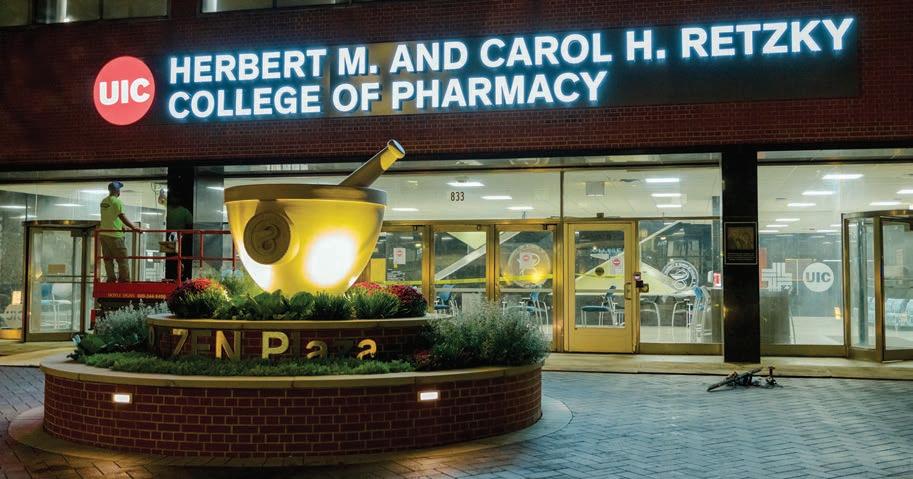
By Jon Asplund
Following a $36 million gift from the family of a 1946 University of Illinois Chicago College of Pharmacy graduate, the 165-year-old college is getting a name change.
The pharmaceutical college will now be known as the Herbert M. & Carol H. Retzky College of Pharmacy, UIC said in a press release on Sept. 12. It is UIC’s first donornamed college.
Herbert Retzky, who graduated from the college in 1946, and his
wife, Carol, owned pharmacies on the South Side of Chicago and later on the West Side, the release said. Carol was awarded an honorary degree from the college in 2019.
The endowment, from the couple's estate will support pharmacy scholarships and professional development, the release said.
The Retzkys have provided more than $44 million in financial support to UIC, more than any other individual donors, according to the school.
They have also backed the Retzky Scholars Fund, the Retzky Career Development Fund, the UIC Herbert & Carol Retzky Deanship Fund, the Drug Discovery & Innovation Fund, the Simulation Center Fund, the Lester Weitzman Memorial Scholarship Fund and the Herbert & Carol Retzky Scholarship Fund, UIC said in a previous release.
The pharmacy college, established in 1859, is the oldest academic unit of the University of Illinois System, the release said.
ly, ensuring precision and confidence even in the most extreme environments, it said.
The goal of the Polaris Dawn crew’s “ultrasound-based experiments to monitor critical physiological changes in microgravity" was to “measure changes to the eye’s structure, track organ blood flow patterns, and test the training modules' effectiveness, ensuring the successful use of ultrasound technology in space without extensive training," the release said.
The use of ultrasound to monitor, detect and quantify venous gas emboli will contribute to
studies on human prevalence to decompression sickness, according to the Polaris Project website.
The Polaris Dawn crew spent five days in orbit. Among the mission's objectives were reaching the highest Earth orbit ever flown, testing SpaceX-designed extravehicular activity spacesuits in a spacewalk, gathering data to understand how space radiation affects human biological systems and researching spaceflight associated neuro-ocular syndrome, a key risk to human health in longduration spaceflight, Polaris said on the website.
CommonSpirit Health, one of the country’s largest nonprofit Catholic health care systems, has appointed its first-ever chief physician executive officer.
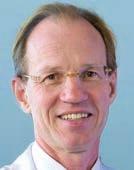
By Katherine Davis Dr. Thomas McGinn
Dr. Thomas McGinn, currently CommonSpirit’s executive vice president for physician enterprise, will be promoted to physician executive officer and senior executive vice president, effective Sept. 30, the health system announced on Sept. 12.
In his new role, McGinn will report directly to CEO Wright Lassiter III and serve as a dyad partner to CommonSpirit’s chief nursing and operating officers.
The role gives McGinn oversight over all clinical activities at CommonSpirit facilities, including both inpatient and outpatient settings. CommonSpirit is based in Chicago but notably does not operate any hospitals in Illinois. Instead, it operates facilities across 24 states including Indiana, Texas and California.
Much of the executive team is based in Chicago, but McGinn is based in New York, a CommonSpirit spokesperson said.
"Dr. McGinn is a highly respected physician and academic leader with a proven track record of success in complex, integrated health care delivery systems," Lassiter said in a statement. "He brings the right leadership and vision to help guide our clinical enterprise into the future. His steadfast commitment to quality improvement, patient experience, and supporting the well-being of our providers will be invaluable as we continue to advance our mission of providing high-quality, compassionate care to all."
CommonSpirit was formed in 2019 by the merger of Catholic Health Initiatives and Dignity Health. It now operates 142 hospitals and more than 2,200 care sites across its territories. CommonSpirit reported $34.6 billion in 2023 revenue, when normalized for the California provider fee program.
Before joining CommonSpirit in 2021, McGinn was the deputy physician-in-chief and senior vice president of physician network operations at Northwell Health, a role he held during the height of the COVID-19 pandemic.

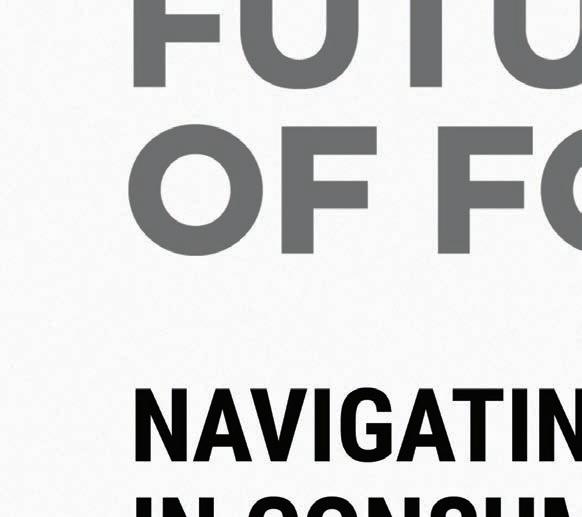


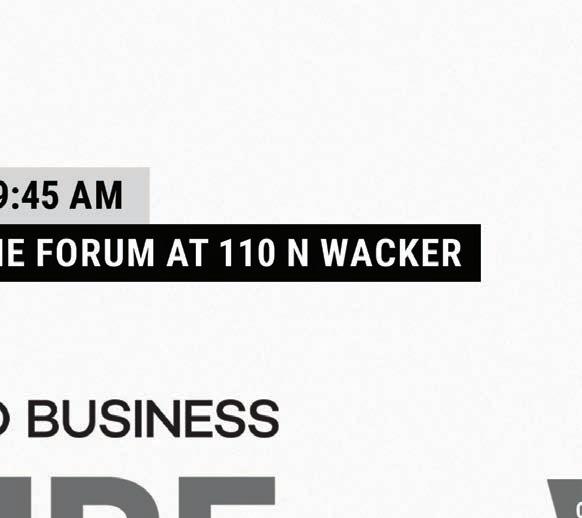




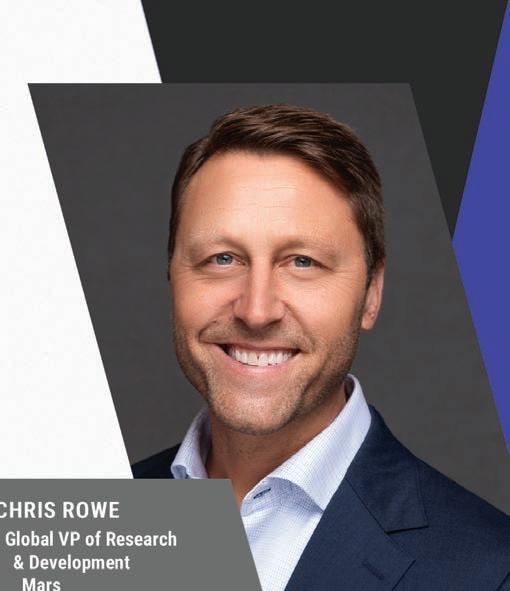


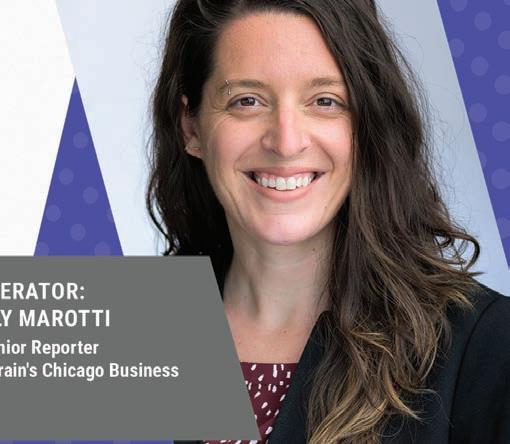
By Danny Ecker
The owner of one of Chicago's most distinctive office skyscrapers is close to landing a new anchor tenant and has signed its largest current tenant to a big extension, a pair of deals totaling more than half a million square feet that stand to inject life into a property reeling from painful losses in recent years.
Credit card giant Capital One has inked a new lease for about 150,000 square feet at 77 W. Wacker Drive, extending its commitment to the 51-story tower by a decade to 2035, according to sources familiar with the deal. The reconfigured space marks a downsize from the nearly 170,000 square feet the company occupies today on a lease that was set to expire in 2025.
Separately, energy engineering firm Sargent & Lundy is in advanced discussions to lease around 380,000 square feet in the building, where it would relocate its headquarters from its longtime home at 55 E. Monroe St., people familiar with the talks said. If the deal is finalized, it would be one of the largest new downtown office leases over the past few years.
Sources with knowledge of the negotiations also said it would be an expansion from the roughly 280,000 square feet the company occupies in the Monroe Street property today — a rare case of workspace growth these days and a signal of potential new hiring at its downtown office.
Winning a recommitment from Capital One and luring Sargent & Lundy would end a streak of bad leasing news that has plagued the glassy, riverfront tower for several years. The State Teachers Retirement System of Ohio, which has owned the property since 2008, has watched its occupancy fall to just 62% after the defection of major tenants like law firms Jones Day and Morgan Lewis & Bockius. Another law firm, Greenberg Traurig, is set to move out next year and was on track to leave the building more than half empty.
Now STRS Ohio is on the verge of locking in a big chunk of the property's rent roll. The massive public pension fund signaled its commitment to competing for new tenants last year when it paid off its $150 million mortgage on the property, flexing financial muscle to overcome maturing debt at a time when many landlords are struggling to refinance.


STRS Ohio is also investing in a new amenity floor in the tower, according to people familiar with the building.
A spokesman for the $88.8 billion fund did not provide a comment on the Sargent & Lundy lease talks, but said in a statement that "Capital One’s long-term commitment to 77 West Wacker Drive highlights the building’s premier riverfront location and proximity to mass transit in the Loop. STRS Ohio is enhancing this iconic Class A office tower with strategic improvements to attract top-tier companies welcoming employees back to the office in Chicago."
The extension and lease negotiations also add momentum to the resurgence of office interest near the James R. Thompson Center, the building half a block south of 77 W. Wacker that Google is mod-
ernizing and turning into its new Midwest home. In one recent deal, real estate software company Lessen cited Google's Loop investment as a key reason it is relocating its Chicago office to 203 N. LaSalle St. across the street from the Thompson Center.
A Capital One spokeswoman confirmed the company had extended its lease and said in a statement to Crain's that the deal "will continue the more than decadelong presence at 77 W. Wacker and Capital One’s ongoing investment in the experience of our Chicago associates."
A spokeswoman for Sargent & Lundy did not immediately provide a comment to Crain's about the lease negotiations.
Capital One shook up its Chicago-area office footprint early in the COVID-19 pandemic when
it put its entire suburban office in Rolling Meadows up for sublease and said some of the roughly 430 employees based there would relocate to the Wacker Drive workspace. The McLean, Va.-based company at the time said it had about 1,200 local employees and that some had switched to permanent remote work.
Capital One first planted its flag at 77 W. Wacker in 2012, when it subleased three floors in the lowrise portion of the tower from the parent company of United Airlines. Those were the early days of Capital One having a significant presence in Chicago, which ramped up through its 2012 acquisition of the U.S. credit card business of HSBC.
Capital One's Chicago office needs could change again if it completes its $35 billion merger with Riverwoods-based Discover Financial Services. Aside from its main north suburban headquarters campus, Discover also leases about 51,000 square feet downtown at 350 N. Orleans St. Sargent & Lundy has been touring downtown for new office space, looking to take advantage of a soft office market ahead of a 2027 lease expiration at 55 E. Monroe, people familiar with the company's search said. Despite rampant vacancy across the market, few prominent downtown office buildings have blocks of space large enough to accommodate the firm's footprint.
The company has a long history at the 49-story Monroe Street building, where it is the largest tenant, according to real estate in-
formation company CoStar Group. Its departure would create a big leasing challenge for PGIM Real Estate, the property investment arm of Newark, N.J.-based Prudential Financial, which has owned 55 E. Monroe since buying it for $367 million in 2015.
Losing an anchor tenant is always a headache for landlords, but it's an especially painful one amid office demand that has been severely weakened by the remote work movement. Fueled primarily by companies adapting to new work patterns and scaling back their workspace, the downtown office vacancy rate has reached new record highs in 13 of the past 15 quarters, according to data from brokerage CBRE.
The tenant attrition and rising interest rates over the past couple of years have created a historic wave of distressed office properties in the heart of the city, particularly those with debt coming due. PGIM does not have any debt on the property at 55 E. Monroe, according to Cook County property records.
A PGIM spokeswoman did not respond to a request for comment. Real estate services firm Transwestern represented STRS Ohio in negotiating the 77 W. Wacker lease extension with Capital One. CBRE brokers Mike Kazmierczak, Kelsey Scheive and Aaron Schuster now oversee leasing at the building. Joe Learner and Robert Sevim of real estate services firm Savills represent Sargent & Lundy. Sargent & Lundy's origin dates back to just before the 1893 World’s Columbian Exposition, where founders Frederick Sargent and Ayres Lundy showcased electric lights. The company today is well known for its engineering and design work on power plants, among other services tied to the energy industry.
Designed by late Spanish architect Ricardo Bofill, the 959,258square-foot Wacker Drive building was completed in 1992 and originally known as the R.R. Donnelly Building, with the printing and information services company serving as its anchor tenant. It was renamed the United Building in 2007 when the airline relocated its headquarters to the building.
Widely recognized for its topfloor Greek pediment, the tower has appeared in a number of movies, including a prominent role in the 1998 action thriller film "The Negotiator."
By Mark Weinraub
Latitude, an attorney placement firm providing contract attorneys to law firms and corporate legal departments, is opening a regional office in Chicago.
The office will be headed by Justin Johnson, who previously worked as senior counsel at North Chicagobased pharmaceutical manufacturer AbbVie. He also held positions at
Rush University System for Health and served as a corporate attorney at Kirkland & Ellis.
The use of contract attorneys has risen in recent years as companies look for legal talent to meet shortterm surges in demand for certain types of work, as was the case during the COVID-19 pandemic, or when economic conditions don't support a full-time hire.
The option has also been attrac-
tive to some younger attorneys or working parents who are looking for better work-life balance than is the norm at most large firms.
Latitude's Chicago outpost at 110 N. Wacker Drive will be the third new office the Nashville, Tenn.-based company has opened this year, following Tampa, Fla., and Seattle. It now has locations in 14 cities, including Atlanta, Boston, Indianapolis and Minneapo-
lis, among others.
“There are so many outstanding law firms that are (in Chicago),"
Latitude CEO Ross Booher said in an interview. "The depth of corporate legal departments is just massive. On the client side, it is going to give us the ability to expand our corporate talent and client services support team.”
Latitude’s practice areas include commercial contracting, data pri-
vacy, M&A, employment and litigation.
The company has been operating in Chicago for more than 10 years, but having a partner lead the new office will allow it to recruit new clients and attorneys in the area.
“Chicago really runs the gamut,” Johnson said. “There is no shortage of legal issues that are being faced, but there also is no shortage of legal talent.”
By Danny Ecker
As developers race to build apartments in the Fulton Market District, a luxury condo developer is betting some new residents in the neighborhood will want to own their places instead.
In the largest-ever condominium proposal for the trendy former meatpacking corridor, Sulo Development wants to build a three-tower building with as many as 243 condo units at 1325 W. Fulton St., according to a zoning application set to be introduced to the City Council. Sulo would acquire the vacant property from Chicago developer Sterling Bay, which has owned it since 2017 and previously floated plans for an office project on the site, according to a source familiar with the property.
The proposal stands out as a for-sale unit option amid a slew of new towers rising in Fulton Market with rental units meant to serve a rush of new residents in the once-gritty area that is now home to major corporate offices and upscale hotels and restaurants.
Residential developers have been on a building tear since the city lifted its ban in 2020 on new residential projects in Fulton Market north of Lake Street.

Residential developers have been on a building tear since the city lifted its ban in 2020 on new residential projects in the Fulton Market neighborhood north of Lake Street.
Sulo's proposal is across the street from a property at 220 N. Ada St., where Chicago developer Shapack Partners broke ground earlier this year on a 29-story apartment building.
Sulo, which has found plenty of takers for other high-end condo buildings nearby in the West Loop, is wagering condos will also do well in Fulton Market as

it continues to grow.
The 1325 W. Fulton proposal includes three high-rises of different heights and ground-floor commercial space, according to the application. The tallest of the three towers would rise 538 feet at the southeast corner of Fulton and Ada streets and include 106 units, while a 438-foot-tall tower with 83 units would be on the
eastern portion of the property at Fulton and Elizabeth streets, plans show. A 54-unit, 301-foottall condo tower would be built mid-block between those two, according to the application.
Led by Principals Dominic and Derek Sulo, the development firm needs the City Council to rezone the property to allow the residential use. The site today is primarily used as a surface parking lot.
A spokesman for Sterling Bay did not respond to a request for comment, nor did Dominic Sulo, who is also a commercial property broker with real estate services firm Marcus & Millichap.
Fulton Market has long had smaller condo buildings mixed in among its many industrial properties. But apartments, not condos, have been developers' preferred residential projects in the West Loop in recent years amid booming demand for rental units. Many developers have sought to convert downtown condo buildings closer to Lake Michigan into apartments, betting they are worth more that way as rents have surged.
Still, upscale condo projects in the West Loop have outperformed other parts of downtown. Sulo pre-sold most of the 28-unit Hayden West Loop condo building before it was completed in
2019. On the same block, the developer reportedly sold off 80% of the 58 units at the Embry condo building by the time it was completed earlier this year.
It's unclear how much Sulo is under contract to pay for the 1325 W. Fulton site. Sterling Bay bought it as part of a larger portfolio acquisition of Fulton Market properties in 2017 and drew up plans for an office building on the property with large floor plates and ample outdoor space.
The developer, which helped transform the neighborhood into a corporate destination by luring Google's Chicago office and McDonald's global headquarters there over the past decade, has been looking to unload several Fulton Market development sites.
Sterling Bay recently hired a broker to seek a buyer for the site at 1200 W. Carroll Ave. and two smaller development parcels just north of that property. The developer won City Council approval in 2020 for a 14-story office building on the Carroll site.
The developer also hired brokers earlier this year to sell two other properties in the neighborhood at 345 N. Aberdeen St. and 370 N. Carpenter St., both of which have been rezoned by the City Council for Sterling Bay-proposed developments.
AngelaDowell ,TheChicagoCommunityLoanFund
RonaldGozum ,C.CretorsandCompany



FinancialExecutivesInternational(FEI)isthepremier associationforfinancialleadersintheUnitedStates andCanada.TheChicagoCFOoftheYear®Awards areanannualcelebrationtorecognizeandhonor ChicagoFinancialLeaderswhohavemade exceptionalcontributionsintheirorganizations. Awardrecipientshavedistinguishedthemselveswith remarkabletalentandleadership.Theyareamong thebestintheprofession.


MichaelHansen ,HeniffTransportationSystemsLLC DoYoungKim ,Navistar,Inc.
KarenKoch ,SaintViatorHighSchool
SusanKreh ,Oil-DriCorporationofAmerica MiroslavaMejiaKrug ,ChicagoPublicSchools
NatalieLaackman ,MedSpeedLLC
ErinLavelle ,WittKieffer,Inc.
HannahLehman ,GrantParkMusicFestival
DirkLocascio ,USFoodsHoldingCorp
MichaelMance ,DialysisCareCenter
DeidraMerriwether ,W.W.Grainger,Inc.
RobertPhelan ,AdtalemGlobalEducationInc.
TriciaPucek ,TheHortonGroup
ArleneRegnerus ,RooseveltUniversity
RyanRobinson ,ULSolutions
WesSaber ,HARIBOofAmerica,Inc.
JoshuaSlattery ,JewishCommunityCentersChicago
DavidStoehr ,WintrustFinancialCorporation
JonathanTingstad ,ShirleyRyanAbilityLab MarkTitzer ,DominicanUniversity
DeborahWensel ,Holland,L.P.
JasonWinkler ,MotorolaSolutions,Inc.
RichardWright ,V&VSupremoFoods,Inc.

When Intersect Illinois was launched under then-Gov. Bruce Rauner in 2016, hopes were high that the quasigovernment economic development agency would be a catalyst for luring new business to the state.
Over time, however, the blurry lines between Intersect Illinois and its publicprivate cousin, World Business Chicago — not to mention Rauner's habit of running down the state to anyone who would listen — dimmed those original hopes and raised questions about the organization's reason for being.
But with the election of J.B. Pritzker — and with the calamity of the pandemic in the rearview mirror — there's been a noticeable shift in momentum on the economic development front. The Pritzker administration has pumped new life into Intersect Illinois, successfully pushing for investment not just in the Chicago region but downstate as well. Meanwhile, World Business Chicago, historically aligned with City Hall, has been overshadowed, losing leadership and key board members while Intersect Illinois notches significant wins.
It's against this backdrop that Intersect
Illinois brings in a new CEO, Christy George, who's fresh off a successful run leading the day-to-day efforts to put on a seamless and relatively incident-free Democratic National Convention in Chicago.
As Crain's John Pletz reports, the Intersect Illinois post is a homecoming of sorts for George, who previously served on Pritzker's economic team and worked on such deals as the Gotion battery plant in Manteno and the Lion Electric bus factory in Joliet.
Where the state's Department of Commerce & Economic Opportunity handles conversations about grants and incentives, Intersect Illinois is in many ways the sales team for the state, doing the outreach necessary to get investors interested in the first place — in other words, filling the top of the funnel.
Under John Atkinson, who became chairman of Intersect Illinois a year ago, the agency has the wind at its back, having notched several recent high-profile wins. The agency's biggest triumph lately, however, is the launch of the quantumcomputing campus on the Far South Side, a project that promises to transform U.S. Steel's old South Works site into a 21st-
The eyes of the nation were on Chicago in hosting the Democratic National Convention. Our city stepped up to the plate and hit an absolute home run.
This was a high-stakes event that not only showcased the city’s ability to handle large-scale gatherings but also demonstrated the potential for Chicago to thrive through collaboration across all sectors.
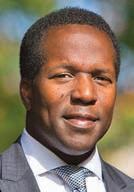
There are important lessons to be learned for addressing the city’s thorniest problems, including gun violence, underperforming schools, and systemic financial challenges, as Crain’s rightly noted in a recent editorial. Chicagoans and our elected leaders should take pride in the event’s success, while also using it as a model for the city’s other ambitions.
First and foremost, Gov. J.B. Pritzker, Mayor Brandon Johnson, and Cook County Board President Toni Preckwinkle deserve significant credit for helping recruit the DNC to Chicago (as does former Mayor Lori Lightfoot) and for having the vision, leadership, and staff support (special recognition goes to Christy George and Leah Israel for their great work) to host such a smooth event.
They each understood that hosting such a significant event required more than just
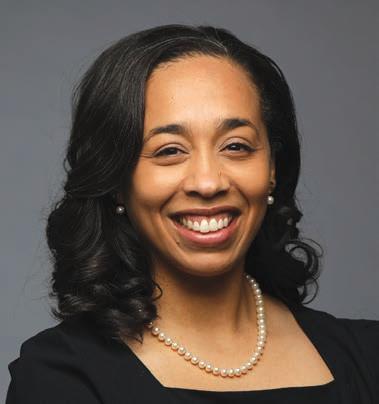
century technological hub. Atkinson has concentrated on recruiting a blue-chip board, most recently bringing in United Airlines President Brett Hart and University of Chicago President Paul Alivisatos. Other board members now include James Reynolds of Loop Capital, Martin Cabrera of Cabrera Capital Markets, Pin Ni of Wanxiang America, and Michael Sacks of GCM Grosvenor.
"It became clear we really needed to
build out the board in a more high-caliber way," Atkinson told Crain's. "We want board members to be ambassadors for the state. When we're trying to court companies, we want them to see a large representation of our economic community from around the state."
The focus now is on getting Illinois in the game when it comes to corporate relocations, expansions and investments. One key piece of the puzzle is getting to know the site-selection consultants who do the heavy lifting for corporate clients who are scouting for just such opportunities.
It helps that Illinois has a better sales pitch nowadays than it has in years past. In addition to its historic advantages — great universities, transportation, housing, lifestyle and talent, to name a few — the state also has received nine upgrades from credit rating agencies in recent years. It also has more money to spend on economic development. And with a new CEO taking the helm of this key outreach agency, there's even more work to do. George will oversee a staff of about 30 people whose mission will be to build on the state's recent wins. Every Illinoisan has a stake in their success.
run with the DNC. Let’s keep it up.
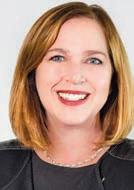
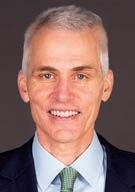
political will; it required the full engagement of the city’s business community, civic organizations, and residents.
Hosting a national political convention is no small feat, especially in today’s complex security and logistical environment.
Police Superintendent Larry Snelling, the Chicago Police Department, the Secret Service, and all the DNC’s law enforcement partners from neighboring jurisdictions deserve high praise for maintaining a safe and mostly peaceful gathering of over 50,000 visitors, including protesters, protected by the First Amendment, and individuals who were intent on disrupting the event.
Chicago’s business community also rose to the occasion, offering a seamless blend
of functionality and hospitality. From major corporations to small businesses, the city’s business community stepped up in numerous ways. Jerry and Michael Reinsdorf and Danny Wirtz, in particular, demonstrated leadership in hosting and partnering with the DNC to ensure the multi-night event at the United Center went off without a hitch. Hotel chains and restaurants worked tirelessly to accommodate the influx of guests, while tech companies provided the necessary infrastructure to support the convention’s digital needs. Sponsors and donors from the corporate world also contributed financially to help reduce the costs associated with hosting. Michael Sacks of GCM Grosvenor deserves a special spotlight for all he did for the event from fundraising to orchestration.
One of the other key factors behind the smooth execution was our transportation infrastructure. By most accounts, CTA Green Line trains were clean and ran to and from the United Center without issue. The completion of the new Damen Avenue stop made trips that much more convenient. Metra also showed some innovation and initiative in providing hourly service from Union Station to O’Hare.
But infrastructure alone would not have been enough to guarantee success. The
thousands of volunteers from the entire region who selflessly supported the event and welcomed guests to Chicago represent what’s best about our great city. There’s a reason Chicago is so revered by those who visit here — it’s our people. Everyone from the hospitality workers to the cab drivers to the public works department staffers understood the assignment — and even Mother Nature cooperated with beautiful weather all week. What the convention demonstrated once more is that when we work together, there’s nothing this city can’t achieve. We have the infrastructure, leadership, and community spirit to not only host major events, but to solve some of our most intractable problems. We should now redouble our efforts and apply all of the strengths we demonstrated to address our key issues of public safety and economic vibrancy in our neighborhoods, improve our schools, strengthen our transportation infrastructure, and fix our public finance system so it can fund all of these efforts.
In the end, Chicago’s successful hosting of the 2024 Democratic National Convention is more than just a moment of pride; it’s a demonstration of what can be achieved when a city’s public and private sectors and communities come together with a shared vision and invest in the resources required for success.
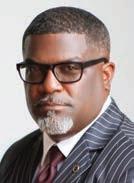
Illinois has enacted some of the nation’s most progressive laws, including legalizing adult-use cannabis and pairing emissions-reduction requirements with workforce development programs. It also has a unique opportunity to empower Black residents by providing them a pathway into two industries with explosive growth potential, at a time when the Black unemployment rate in the state is one of the highest in the country. These opportunities were especially meaningful as Black communities bore the brunt of the drug war and continue to face health and economic challenges stemming from pollution.
It’s worth taking a closer look at Illinois and racial equity.
Let’s start with cannabis reform. In January 2019, Gov. J.B. Pritzker signed the Illinois Cannabis Regulation Act. At the time, Pritzker bragged that Illinois would “have the most equity-centric law in the country” and that he “made clear that any plan for adult use cannabis had to prioritize social justice and equity.” There’s been some progress, but Black-owned businesses are still struggling to gain a serious foothold in the industry, especially in the most lucrative areas.
Illinois’ vaunted green jobs program isn’t faring much better. In September 2021, Pritzker signed the Climate & Equitable Jobs Act, which paired emissions-reduction strategies with workforce development incentives and training programs designed to address both the impact of pollution on communities of color.
Three years later, we’ve yet to see any significant progress on CEJA’s workforce programs. From the outside looking in, it appears to still be in the early stages of development.
Illinois had the opportunity to change the lives and the futures of Black residents not once, but twice. With both the Illinois Cannabis Regulation Act and CEJA, Pritzker was teed up to deliver historic change — and there’s still time to do so. In working toward meaningful change for communities of color, progress is not always linear, but it must be consistent.
One way is to become deeply embedded in hard-hit communities in Chicago and elsewhere statewide to ensure these progressive programs are reaching those who most need them. Of-
ten what happens in the halls of government doesn’t trickle down to the people in the streets. Community-based partnerships with designated program advocates and outreach specialists can close the knowledge gap about these services by increasing awareness. They can also build a more personal rapport with residents who may be skep -
tical or hesitant to participate. At the end of the day, the ask is simple. It isn’t a demand for government freebies or to beg for more money. It’s for common-sense policies that uplift the state’s largest ethnic population. Empowering Black communities so they can access a higher quality of living is a win-win for everyone.






Museum Of Contemporary Art Chicago, Chicago

The Museum of Contemporary Art Chicago has named Courtney Rowe as Chief of Strategy and Board Relations Officer. Rowe previously worked at the MCA as the Manager of Corporate, Foundation, and Government Relations. She returns to the museum after working at several universities, including the University of Colorado Boulder, The Peabody Institute of The Johns Hopkins University, and, most recently, the School of the Art Institute of Chicago.
BIG Construction, Chicago
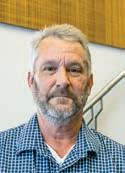
BIG Construction is proud to announce that Dan Kugler has joined our team as Senior Superintendent. Dan brings over 27 years of commercial interior construction experience, having completed over 100 million dollars of work with a portfolio of landmark projects in the city including BMO Chicago Tower. Dan takes pride in successful project coordination by keeping field operations running smoothly and establishing relationships with all stakeholders to bring the project to life.

BIG Construction, Chicago
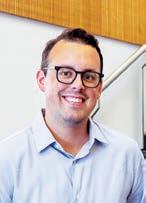
BIG Construction is proud to announce that Andrew Vasquez has joined our team as a Project Executive. Andrew brings over 10 years of experience to BIG with a specialization in tenant improvements. He has led his teams in over 50M of work annually with a record of landmark projects in Chicago including BMO Tower. As the main point of contact for all project stakeholders, Andrew will lead our project management teams and support clients through every step of the construction process.

& Andrews, Chicago
Bulley & Andrews (B&A) has appointed Mike Lemmons, vice president, to oversee the firm’s restoration services. Lemmons has 20+ years of construction experience and now leads B&A’s masonry and concrete restoration teams. His technical expertise and depth of knowledge ensure B&A delivers on their commitment to provide exceptional service.
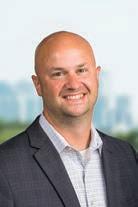

Thomas
Chris Thomas has been promoted to division leader at Bulley & Andrews Masonry Restoration (BAMR). With over 20 years of experience, Thomas is highly regarded as an industry expert and trusted partner. Under his purview, BAMR has earned and maintains an enviable reputation for problem-solving and quality craftsmanship on projects ranging from revered public buildings to historically significant properties.

Capital One, Chicago
Griffin Cotter recently joined Capital One as a Senior Vice President of Agency Finance. Based in Chicago and bringing over 13 years of industry experience to the role, Griffin will cover multifamily housing in the Midwest region. Most recently, he served as Vice President of Capital Markets at 29th Street Capital. He also worked at Freddie Mac where he led the Central Region’s production team, which produced $16B of annual originations.

Loyola Medicine, Maywood
Cheryl James recently joined Trinity Health as Chief Human Resources Officer (CHRO) for Loyola Medicine & St. Joseph Health System. With over 25 years in health care leadership, she previously served as CHRO at Adtalem and Hillrom, driving organizational transformations and emphasizing talent development, diversity and inclusion. Known for her transformational leadership, Cheryl has an unwavering focus on developing talent in the pursuit of business success.
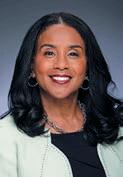
Honigman LLP, Chicago
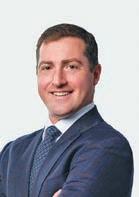
Honigman LLP welcomes Benjamin Kirschner to its Real Estate Department as partner and leader of the firm’s Institutional Real Estate Practice Group. He focuses his practice on domestic and international transactional real estate matters. Kirschner represents a broad range of clients in real estate transactions, including acquisitions, dispositions, development, leasing, joint ventures, and financings, with a concentration on healthcare and industrial transactions.
Wintrust Financial Corporation, Rosemont
Levenfeld Pearlstein, LLC, Chicago
J.P. Morgan Private Bank, Chicago
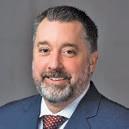



Wintrust Financial Corp., a financial services holding company based in Rosemont, Illinois, with more than 170 locations across Illinois, Indiana, Wisconsin, and Florida is pleased to announce an appointment and a promotion. Mike Ryan was appointed to Executive Vice President, Chief Information Officer at Wintrust Financial Corporation. Prior to his new role, Mike served as Senior Vice President, Deputy Chief Information Officer. Mike will celebrate 27 years of service at Wintrust in October. Tim Underwood was promoted to Senior Vice President, Division Lead, Senior Portfolio Manager, Commercial Banking at Wheaton Bank & Trust Company, N.A. Tim joined Wintrust in 2009.

Tessa Schiffers has joined J.P. Morgan Private Bank in Chicago as Vice President and Banker. Tessa brings her background in derivatives trading to help clients uncover gaps in their long-term wealth plans and transform hard work into meaningful generational legacies. She joins the firm from Charles Schwab.

Chris Lepore is a partner in LP’s Employment & Executive Compensation Group. He partners with employers nationwide as a strategic advisor on a range of workplace issues, including hirings, reductions in force, performance & leave management, internal complaints, wage-and-hour issues, independent contractor relationships, and accommodations. Clients trust Chris’s advice on their most complex and sensitive issues as he understands the importance of balancing risk with practical, business considerations.



Wintrust Financial Corporation, Rosemont




Wintrust Financial Corp., a financial services holding company based in Rosemont, Illinois, with more than 170 locations across Illinois, Indiana, Wisconsin, and Florida is pleased to announce a promotion and welcome a new leader. Pete Grivas was promoted to Senior Vice President, Regional Branch Manager, Retail Branch Management at Wintrust Bank, N.A. Pete joined Wintrust in 2018. Gina Stuart joined Wintrust as the Senior Vice President of Diversity, Equity, and Inclusion. Gina brings more than 20 years of leadership experience in human resources, including regulatory and compliance, as well as diversity and inclusion.

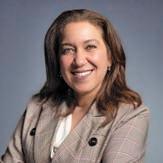

Burke, Warren, MacKay & Serritella, P.C., Chicago
Ahmed Kosoko has joined Burke, Warren, MacKay & Serritella as a Partner in the firm’s Litigation group. Ahmed focuses his practice in the areas of commercial litigation, general tort litigation, municipal liability, civil rights, criminal law and white-collar defense, constitutional law, and appellate practice.
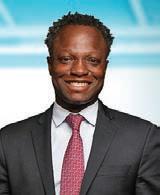
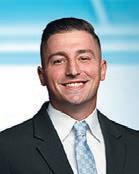
Luca Giovine has joined Burke, Warren, MacKay & Serritella as a Litigation Associate. Luca focuses his practice on navigating multifaceted commercial disputes on behalf of clients in a variety of industries. Luca has litigation experience in state and federal courts on issues ranging from breach of contract and deceptive trade practices to complex personal injury defense, delivering exceptional results at all stages of litigation.



It’s the first time the four-bedroom unit at east View park has been on the market since 2005, when the couple sold it as then-U.S. Sen. barack Obama was beginning his ascent to the White House I By
Dennin Rodkin
The Hyde Park condo Barack and Michelle Obama bought early in their marriage is going up for sale for the first time since they sold it to move to a Kenwood mansion in 2005.
Kurt and Jennifer Elling are asking $550,000 for the four-bedroom condo in East View Park, a blocklong row of brick six-flats that share a big private greenspace and face a quiet stretch of public park west of DuSable Lake Shore Drive.
The first-floor condo, which still has the green tile fireplace Michelle Obama is pictured with in an early 2000s portrait shot by Katrina Wittkamp for Chicago magazine, went on the market on Sept. 11. It’s represented by Maureen Murnane and India Whiteside of @properties Christie’s International Real Estate.
The Obamas bought the condo in July 1993 for a little less than $278,000, according to the Cook County clerk. At the time, they’d been married about nine months. While they lived in East View Park, both of their daughters were born, Barack Obama's book “Dreams from My Father” was published, he was elected to the Illinois Senate and the U.S. Senate, and he composed the 2004 convention speech.
In spring 2005, the Obamas put the East View Park unit on the market and paid $1.65 million for a mansion a little over a mile away on Greenwood Avenue in Kenwood.
Kurt Elling, a well-known jazz musician with two Grammys who’s been named male vocalist of the year 17 times in Downbeat magazine’s critics poll, told Crain’s
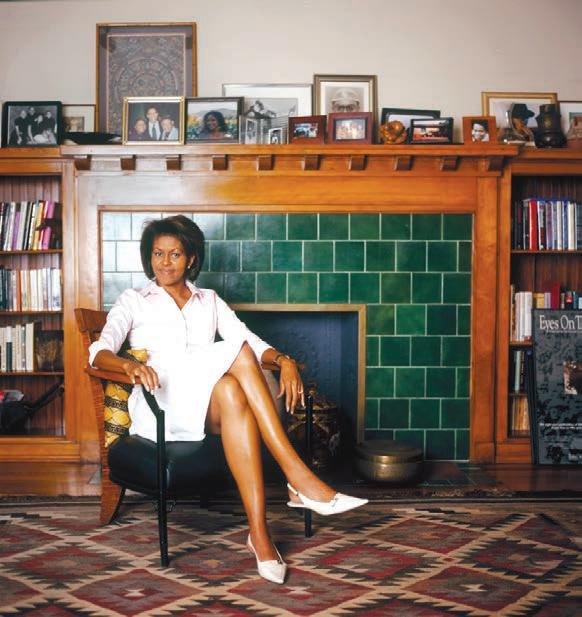
he recalls spotting an Obama family photo at a 2005 open house. It tipped him off that the seller of the condo was the recently sworn-in U.S. senator who had grabbed a national spotlight the previous summer with a speech at the Democratic National Convention.
A few months later, when the Ellings had closed on their purchase and were moving in, “Barack Obama came by and showed us some of the idiosyncrasies,” such as a doorknob that sticks or a drawer handle that needs to be jiggled to open.
About four years later, Elling
was tapped to perform at President Barack Obama’s first state dinner, along with Marvin Hamlisch and fellow Chicagoan Jennifer Hudson. He says First Lady Michelle Obama reminded her husband that Elling had bought their old condo, and the president said he remembered, too.
Owning the former home of a U.S. president has been “interesting,” Elling says, but “not momentous.”
The Ellings lived in the condo for a few years before moving to New York. They put it up for rent in 2010 and have been renting it
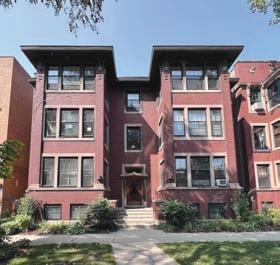

out ever since. They moved back to Hyde Park from New York several years ago.
Of the East View Park condo, Elling said that after almost 19 years, “we’re ready to let it go.”
The present renters are moving out at the end of September, and the agents plan to do some painting and refreshing of the interior.
The photos in this story were taken at the renters’ permission, but with as little as possible of their belongings visible.
Original finishes from the late 1910s construction include tile floors in the common hallway and the condo’s sun porch; attractive


wood trim; ceiling beams, a builtin sideboard and shelves in the dining room; and the fireplace flanked by bookcases.
Sales in East View Park are rare — it’s no surprise, given its prime location combining private and public green space within walking distance from shopping, dining and Metra. The only sale of a four-bedroom, like the Ellings’ unit, in recent years was the one across the hall, which went for $578,000 in 2022.
Three-bedrooms have sold for between $410,000 and $469,000 in the past five years, according to real estate records.
By John Pletz
Fresh off her role leading dayto-day efforts to prepare to host the Democratic National Convention, Christy George is taking over as CEO of Intersect Illinois, the state’s private-sector partner in recruiting and retaining businesses.
It’s a homecoming of sorts for George, 38, who previously was part of Gov. J.B. Pritzker’s economic team, working on deals such as the Gotion battery plant in Manteno and Lion Electric electric-bus factory in Joliet. She replaces Dan Seals, who left in July.
George joins a quasi-government agency that has dramatically upped its game in the past year as Pritzker focused squarely on economic development in his second term. The state has notched several high-profile wins including expansions by Rivian in Normal and Stellantis in Belvidere, as well as a quantum-computing campus in Chicago.
John Atkinson, Marsh’s senior executive in Chicago, became chairman of Intersect Illinois a year ago. Since then, it’s added 25 board members, raising the bar by focusing on C-level executives and leaders of universities, economic development groups and trade associations. The most recent additions include United Airlines President Brett Hart and University of Chicago President Paul Alivisatos.
Atkinson has plans to increase the board from 40 members to 60.
Board members pay to be on the board, but Intersect Illinois declines to say how much.
Intersect is raising its profile as World Business Chicago, the city's 25-year-old, privately led economic development partnership, is working to gain its footing under new leadership since Brandon Johnson became mayor last year.
Intersect Illinois is one piece of the state's triumvirate of economic development that includes the governor’s office and the Department of Commerce &
Economic Opportunity.
“We do outbound marketing, lead generation, managing data to vet development sites. We do site visits with companies," Atkinson says. “We work closely with the governor’s office. When we get an organization ready to start talking about what Illinois can do (with grants or incentives), we get DCEO involved.”
The three groups meet weekly to discuss the pipeline of projects, which currently totals about three dozen, he says.
The state needs to land as many of those projects as possible. Illinois was tied with California for third-highest unemployment in the country at 5.2% in July, according to the Bureau of Labor Statistics.
Intersect Illinois grew out of an organization started by former Gov. Bruce Rauner called Illinois Business & Economic Corp., but it was seen as more of an effort to privatize DCEO’s role. Illinois lagged many other states in creating quasi-government entities to
land new companies.
Under Atkinson, Intersect has been spending time getting to know the site-selection consultants who do the heavy lifting for most corporate expansions and relocations.
“They’re doing the right thing,” says Doug Pryor, CEO of the Will County Center for Economic Development. “Illinois has been more visible and successful on the national development stage lately, and it’s time to double down on that. The governor deserves credit."
Atkinson says the outreach is long overdue.
“No governor since Jim Thompson had been engaging with the site-selection community to tell the state’s story,” he says.
Illinois hasn’t had much of a story to tell, given its fiscal problems. After balancing the budget and eliminating backlogs of unpaid bills, the state has received nine upgrades from credit-rating agencies. It also has more money to spend on economic develop-
ment. Pritzker convinced state legislators to create new incentive programs targeting the electricvehicle and quantum-computing industries, as well as a $400 million fund to close deals.
George will oversee a staff of about 30, which is expected to grow. Intersect Illinois had a budget of about $7.5 million for the fiscal year that ended in July, most of which came from DCEO. George worked at City Hall as an attorney and assistant budget commissioner during Rahm Emanuel’s two terms as mayor before going to work for Pritzker.
“I have relied on Christy for years now. She is someone who gets things done. In life there are not enough people like that," Pritzker says. "She is someone who has broad credibility and wide capability. It means I’m going to be able to look at Intersect and lean on her to make sure that we’re getting it right as we move into new industry attraction and trade missions — and follow through, which she is so good at it.”
SAFETY

26% Just over a quarter of Americans rate Detroit as a safe place to visit.
Gallup, August 2023

27% Just over a quarter of Americans rate Chicago as a safe place to visit.
Gallup, August 2023
51% A majority of survey respondents said they feel less safe now than a few years ago.
Akron Decides Survey, 2023



For the Great Lakes region’s biggest cities, crime stats don’t fully capture how people feel
By Steve Hendershot
Chicagoan Lisa Stringer sees the improving crime stats coming out this year — a decline in car thefts, homicides returning to pre-pandemic levels — and she wants to believe. She wants to relax.
But Stringer can’t square the data’s rosy picture with what she sees outside her window in the city’s North Mayfair neighborhood. In the last couple of years, she’s witnessed a break-in at a neighborhood business, seen the dismantling of a stolen car, and heard shooting in the alley behind her home. Late one night while she drove along Elston Avenue, an SUV pulled alongside her at a stoplight. Two people wearing masks got out and approached her car. She sped forward, narrowly avoiding a collision while making her escape.
So when she hears reports of a stabilizing city, Stringer is skeptical.
“It’s frustrating when people try to dismiss you and pat you on the head and say you’re being dramatic,” Stringer says. “You have a chart, but I am telling you that my personal, lived experience in the last two years is the complete opposite of that. For the rst time in my life, I don’t feel safe.”
Often a perception gap exists between how safe city dwellers feel and their statistical risk of victimization. Right now, however, it’s exceptionally wide.
Polls indicate that many Americans share Stringer’s perspective. In the 2023 edition of Gallup’s annual crime survey — the most recent iteration — respondents voiced more pessimism about local and national crime than at any point in the survey’s roughly 20-year history.
Yet according to law enforcement data, crime is receding across the country. Homicides and auto thefts are declining sharply this year, with the number of murders approaching pre-pandemic levels, according to AH Datalytics’ Real-Time Crime Index. A Council on Criminal Justice analysis that focuses on big-city crime shows similar positive trends across the country’s largest metros. The number of homicides is down in three of the Great Lakes region’s largest cities — Chicago, Cleveland and Detroit.
It adds up to a curious divergence, not to mention a stubborn problem in a region where cities are trying to emerge from the COVID pandemic and also reverse decades of population loss.
It’s not just safety that’s on the line, it’s civic momentum.


Detroiters are “so invested in a comeback and seeing the city come back to a sense of prominence,” says Zoe Kennedy, who works to stem community violence as public health and safety director of nonprofit Force Detroit. The pandemic interrupted that progress.
In Chicago, during the pandemic “there was a crisis of confidence. People were not confident they were going to have a positive experience” downtown, says Michael Edwards, president and CEO of the Chicago Loop Alliance. But Edwards says the crime data backs up the improved conditions he’s observing. If people are still scared of visiting the Loop, he says, “it’s a mistaken old idea, a remnant of the pandemic.”
That frames the challenge facing regional city leaders: not only to ensure that their cities are safe but also that they feel safe.
That's easier said than done right now, in part because of a string of high-profile crimes across the region that cut against the crime data’s optimistic narrative. In the early hours of Labor Day, four sleeping passengers on a Chicago Transit Authority train were shot to death. In July, two were killed and 19 wounded during a shooting at a Detroit block party. On a Saturday night in late June, a gunfight broke
the number of homicides decreased across the nation in recent years after spiking during the COVID-19 pandemic.
Homicide rate per 100,000 people



out at Cleveland’s most popular beachfront park. All three incidents were horrific and felt even more unsettling because they showed how violence can erupt even in seemingly safe public spaces.
“Nobody has ever tied their personal feelings of public safety purely to crime stats. They go outside their door and look around.”
Charlie Beck, former chief of
the Los
Angeles Police Department and former interim police superintendent in Chicago
They’re the sorts of crimes that grab hold of the imagination, which can be an especially powerful influence on perceptions.
“The fear of crime that (highprofile incidents) create cannot be offset by a 20% reduction in homicide,” says Charlie Beck, former chief of the Los Angeles Police Department and former interim police superintendent in Chicago.
“Nobody has ever tied their personal feelings of public safety purely to crime stats. They go outside their door and look around.”
An increasing political dimension drives perceptions of urban crime. For example, Democrats and Democratic-leaning independents were more than three times as likely as their Republican and Republicanleaning counterparts to consider Chicago a safe place to live or visit, according to a different 2023 Gallup Poll. In Detroit, the gap was only a bit more narrow, with Republican or Republican-leaning independents about two and a half times less likely to view the city as safe than Democrats and Democraticleaning independents. The partisan gap has grown sharply this century: The average divergence in perception across the poll is 29 percentage points, compared to just 2 points in 2006.
But politics and outside opinions don’t explain why many residents of solidly blue cities aren’t feeling safe. Crime ranks as the top reason Detroit residents would consider leaving the city, according to a 2023 survey by the Detroit Chamber of Commerce. In a survey of Chicago voters conducted by Mason-Dixon Polling & Strategy on behalf of several local media outlets prior to the 2023 mayoral election, crime was the runaway leading issue.











Working to advance racial equity and economic mobility for the ne xt generation in the Great Lakes region.

So what gives? Are city residents seeing things that are missing from crime data? Or are their perceptions especially skewed? Several factors may be contributing to a pronounced safety perception gap:
An environment that feels more chaotic
Kenya Valentine is a longtime rider of Chicago's el trains. Since the pandemic, “there’s been a huge change,” she says. “It’s not safe.”
She says this while standing beneath the tracks at the Red Line’s Wilson stop, where a few days earlier a man fled the train after being stabbed during an afternoon altercation. Yet Valentine’s assessment wasn’t based on witnessing violent crime so much as an uptick in other sorts of rule-breaking, like people smoking on the train or selling drugs at el stations.
Public-transit crime is an issue in Chicago. A September Chicago Tribune analysis found that serious crimes occurring on Chicago Transit Authority trains, buses and stations are near their highest levels since 2000. But riders like Valentine are also noticing the small stuff that doesn’t show up in violent-crime data.
That’s a crucial development, according to Beck, the former Los Angeles police chief. Since the pandemic, he says, “in the big cities, I think there is a lot of evidence that people see in their day-to-day lives that shows a lack of control, or a society that is shifting towards less cohesiveness about what's normal in public spaces.”
The word “normal” is key to thinking about perceptions of safety, because people can feel comfortable in a broad range of environments as long as their surroundings seem predictable and familiar.
For example, Chico Tillmon, executive director of the Community Violence Intervention Leadership Academy, grew up in Chicago’s Austin neighborhood during a violence-plagued period in the 1990s. Yet he felt safe there.
“It wasn't about Austin being safe. It's that I knew the blocks, I knew how to maneuver, and I was familiar with the people,” Tillmon says.
Tillmon calls it “adaptation and normalization.” It’s the inverse of what Beck is describing and what people like Kenya Valentine and Lisa Stringer are experiencing: a change in environment that’s so striking that it upends people’s sense of what’s normal — and what’s safe.
How can cities guard against that decreasing sense of environmental control? One obvious answer is a greater law enforcement presence, but that’s a challenge both in terms of police department manpower and also the fraught relationship between residents and police in many com-

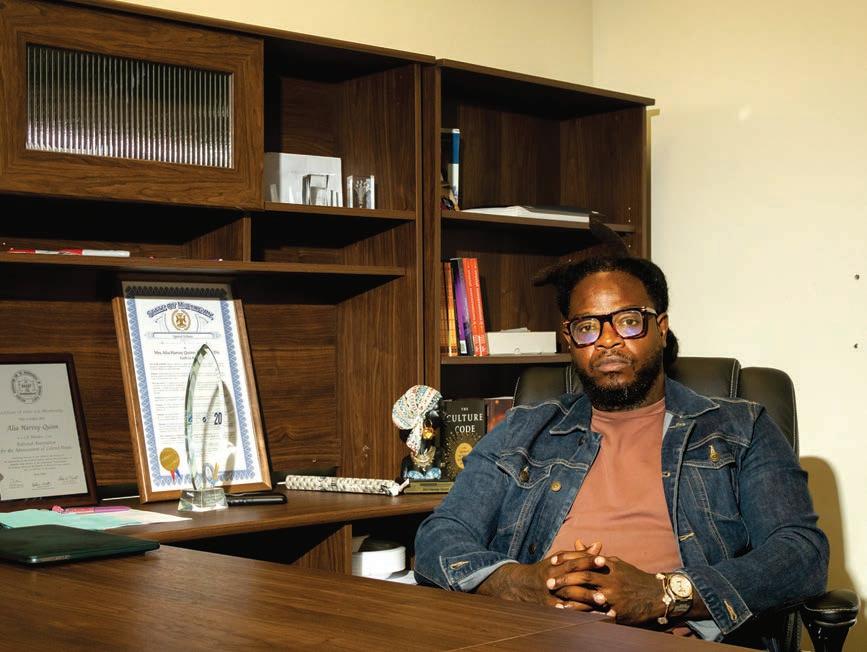
the Community Violence Intervention Leadership Academy at the University of Chicago Crime Lab provides a program to educa te violence intervention leaders across the country. those who graduate, including Myesha Watkins (top) from Cleveland and Zoe Kennedy (above) from Detroit, have had five months of hands-on education that includes classroom instruction and immersive learning labs. they return to their organizations to expand the efforts in their cities to reduce violence, working with police departments and residents to save lives through strategies and data-driven practices that bridge the safety gap. Vice president Kamala Harris honored the program’s first 31 graduates at a White House ceremony in February to highlight “Community Violence Awareness Week.”
munities. There also are plenty of other options, according to Sandi Price, executive director of the Rogers Park Business Alliance, an economic development group on Chicago’s Far North Side. They range from community gatherings and cleanup events to beautification and infrastructure projects such as murals or the new public plaza unveiled in Rogers Park in early September. They’re projects that “help alleviate the perception that people don’t care,” she says.
At a Detroit block party over the Fourth of July holiday, gunfire killed two and wounded 19. The incident illustrated a troubling trend noted by anti-violence leaders: More dispute-related shootings are occurring in settings where innocent bystanders become victims. The randomness of those events can unnerve people who think of themselves as possessing the street smarts to steer clear of trouble.
tims are verboten, even in circles where gun violence often occurs, and that the ethic is taking root in parts of the city.
“In my community, shooting up houses, that's unacceptable,” Kennedy says. “That's what the community embraced, and that's the standard we set.”
Neighborhood apps and tech shift perception
Security cameras and Neighborhood Watch groups have been around for decades, but their reach — along with the volume of alerts they generated — exploded in recent years thanks to the growing popularity of tech products such as Amazon’s Ring Doorbell.
More than 20% of U.S. households have a smart doorbell, according to research firm Parks Associates, and the market is projected to grow by 33.4% each year through 2030, according to Grand View Research. Apps such as Citizen and NextDoor also are helping spread awareness of hyperlocal crimes and suspicious activity; NextDoor had 41.8 million weekly active users in 2023.
Chicagoan Luis Martinez uses Ring and NextDoor to track crimes and suspicious activity in his neighborhood, in addition to watching the news.
“I’d rather know something’s going down in my neighborhood than not know and be caught off guard,” he says.
The issue is that people who use those platforms perceive higher rates of crime than those who don’t, according to a study by University of Houston researcher Adam Fetterman, director of the school’s Personality, Emotion, & Social Cognition Lab.
“Those push notifications that keep telling you about crime keep it at the top of your mind,” says Fetterman. “Crime rates could be going down in general, but if you're constantly being told about crime throughout the day, you're going to have this perception that it's happening more often.”
“The biggest feeling of being unsafe is that you could be totally innocent, have nothing to do with nothing and still be a victim of violence,” says Tillmon.
Tillmon is a pioneer in the community violence intervention movement, in which community members intervene to try to head off gun violence before it occurs. Force Detroit’s Zoe Kennedy, a graduate of the CVI Leadership Academy that Tillmon leads, says that one of his group’s goals is to ensure that shootings that might claim innocent vic-
Media coverage, including social media, also elevates perceptions of crime. That’s not a new phenomenon, but it may be surging thanks to the camera- and feed-friendly nature of some pandemic- and post-pandemic-era crime. From downtown street racing to smash-and-grab burglaries in high-profile shopping districts, to a recent incident in Detroit when a large crowd surrounded a city bus and cheered as two women twerked on the hood, these incidents draw eyeballs to familiar scenes where the urban environment appears out of control.
“It’s ‘I know exactly where this is happening, so it's easy for me to visualize it,’ ” explains David Ewoldsen, a professor at Michigan State University who studies media and psychology. “It just makes it much more salient, much more arousing.”
Could the public-safety perception gap be explained by shortcomings in data collection? Is it possible that elevated levels of crime aren’t being reported or recorded?
Not likely, at least for the highest-profile crimes.
“There aren’t a lot of homicides that are going unreported,” says Kim Smith, director of national programs and external engagement at the University of Chicago Crime Lab.
Murders, along with car thefts, are reliably reported across different time periods and regions, one reason why they serve as benchmark crime statistics.
However, it’s more plausible that other types of crimes are underreported. For example, Smith cites sexual assault as a chronically underreported type of crime. And some pandemic-era changes such as smaller police forces (Chicago had 12% fewer sworn officers in July 2024 compared to July 2019, according to city data) along with diminished trust in law enforcement, could plausibly contribute to a decrease in reports of, say, property crime. “The higher confidence people have in police, the more they report crime,” says Beck.
Still, an analysis from AH Datalytics’ Jeff Asher found that while current trends could spark reporting vagaries, they’re likely too small to significantly skew the gains shown in recent crime data.
Sentiment can be a lagging indicator
Chicagoan Lisa Stringer, describing her escape from a wouldbe carjacking, says, “This is something that sticks with you on a whole different level.”
The psychological impact of experiencing crime or intense danger can be long-lasting and affect perceptions of safety even amid an increasingly safe environment. In other words, it might take time for perception to catch up with a safer reality, especially given that “safer” is a matter of degrees, particularly in the communities that deal with the brunt of crime and violence.
“Exposure is a big part of this story — the lasting and longerterm impacts of exposure to gun violence,” says the University of Chicago’s Smith.
The challenge facing cities like Chicago, Detroit and Cleveland, then, isn’t as simple as bending people’s understanding of their environment into alignment with a new, safer reality. It’s deeper: It’s about reclaiming a part of society that eroded during the pandemic. It’s about healing.
So it seems fitting that next to the same Red Line stop in Chicago where two days earlier a stabbing victim fled the train, an artist painted a mural on the side of a brick building. The image depicts a young woman with her eyes closed and face overcome with emotion. She’s surrounded by blooming flowers.
It’s titled “Regrowth.”
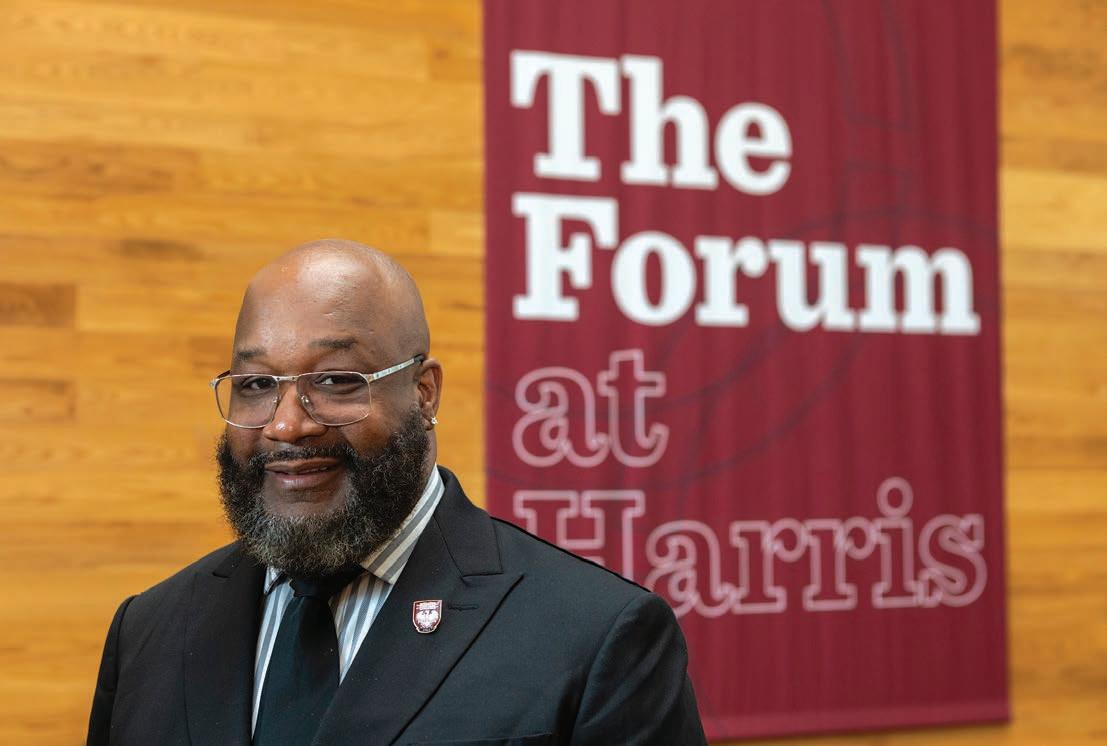
By Steve Hendershot
In the South and West Side communities most plagued by crime and violence, perceptions of an unsafe environment are long-standing and well founded, even after accounting for a recent drop in homicide and shooting victimizations. A collection of West Side blocks that makes up just 5% of Chicago's footprint accounts for more than a third of all shootings in the city, according to a University of Chicago Crime Lab analysis.
“The decline doesn’t mean it's still not dangerous. It just means the probability has lessened,” cautions Chico Tillmon, executive director of a community violence intervention effort in Chicago.
Community violence intervention, or CVI, workers intervene in neighborhoods at high risk of violence, attempting to avert and defuse conflict, foster a sense of community and instigate cultural change, such as emphasizing that gun violence isn’t an acceptable way to resolve disputes.
“When we have disdain for (gun violence) the same way we do things like sexual abuse, pedophilia and all the other things that we just don't tolerate, that’s when we’re going to see a shift,” Tillmon says.
Through the University of Chicagoaffiliated CVI Leadership Academy, Tillmon trains CVI leaders across the country. The movement has particular traction in Chicago thanks to groups such as Chicago CRED — led by former Education Secretary Arne Duncan — Metropolitan Peace Initiatives and the Institute for Nonvio-
lence Chicago, or INVC. And in July, that CVI coalition received a major financial boost when the Commercial Club of Chicago announced it raised $100 million to enable CVI groups to scale up their efforts. That’s after Gov. J.B. Pritzker’s 2023 Reimagine Public Safety Act included $175 million earmarked for CVI.
The Commercial Club’s $100 million represents just the first phase of its plans to boost CVI. It’s now raising an additional $25 million to create a pathway for trained CVI workers, who themselves often come from high-risk backgrounds, to move into sustainable careers.
"The professionalization of the (CVI) field is really the differentiator that sets Chicago apart from any other city in the CVI world right now,” says Robert Boik, senior vice president of public safety at the Commercial Club and a former Chicago Police Department official.
Of course, law enforcement also plays a central role in controlling violence, and CVI leaders are focused on building strong partnerships with police. That was a struggle in CVI’s early years, but leaders say their relationships with police have taken a meaningful step forward.
For example, this summer after the shooting of a CVI worker from the nonviolence institute, detectives visited the hospital so they could provide an update to INVC team members in the waiting room.
“That’s real relationships,” says Sam Castro, INVC’s director of strategic initiatives and partnerships. “When you build those bonds and you have a lot of (police) understanding what we do versus trying
to look at us as informants, now they're having the ‘aha moment’ that they can just lean on us and say, ‘Hey I got a guy who needs some attention,’ and likewise from us.”
Still, building those relationships takes time on both sides, including among CVI workers who grew up distrusting police.
“Law enforcement can be a trigger” for CVI workers, says Myesha Watkins, executive director of the Cleveland Peacemakers Alliance and a graduate of the CVI Leadership Academy. “There’s a lot of patience (required) as we heal our team and heal ourselves and figure out, how do we work with (law enforcement)?”
That’s another focus of the Commercial Club’s efforts. The group plans to raise $75 million to assist police, and is already at work on small-scale initiatives such as a police workforce allocation study intended to uncover whether community relations or department performance would improve with staffing strategies such as emphasizing beat-level continuity or improving the ratio of supervisors to beat officers.
Those initiatives and others related to CVI are focused on long-term gains as well as reducing day-to-day violence. Tillmon urges a patient, thorough approach.
“We’ve got to take our time (with CVI efforts) because it took time for us to get here,” says Tillmon. The conditions giving rise to gun violence “have been going on for a hundred years. I don't want us to become restless and try and do a microwave job of preparing this Thanksgiving meal.”
Our communities face a gun violence crisis, in part, because we face a clearance rate crisis. Knowing that less than half of all gun homicides in America are solved by police, you would expect law enforcement officials to use every tool available to solve these cases. But new research from the Joyce Foundation found that, here in Illinois at least, that’s not true.
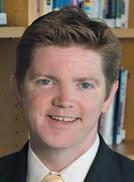
Tim Daly is director of the Gun Violence Prevention and Justice Reform program at the Joyce Foundation. Joyce is a sponsor of Crain’s Forum.
In Chicago, the clearance rate is even more dire: Less than onethird of homicides are cleared by arrest. Chicagoans also experience stark racial disparities in homicide clearance rates. This lack of accountability erodes police-community trust, making it harder for police to investigate shootings — creating a vicious cycle that perpetuates violence.
Gun homicides are especially difficult to solve. Using a gun allows for greater distance between the shooter and victim, reducing the likelihood that DNA evidence is left behind or that the crime is clearly witnessed.
New research from Joyce uncovered another reason we aren’t solving more gun homicides in Illinois: Roughly a third of law enforcement agencies statewide are not signed up for the primary federal tools that help solve gun crimes. And many of the rest are not maximizing their use.
These crime gun intelligence tools are housed at the Bureau of Alcohol, Tobacco, Firearms and Explosives (ATF), and include eTrace, Collective Data Sharing (CDS), the National Integrated Ballistic Information Network (NIBIN) and the NIBIN Enforcement Support System (NESS) — and they are incredibly effective.
Together, they allow law enforcement to analyze crime guns, shell casings and police records. They empower law enforcement to quickly identify shooters, like the suspected Highland Park parade shooter in 2022. They also allow police to prosecute straw purchasers, like the individual who illegally bought the gun that murdered Chicago police officer Ella French. Most importantly, these crime gun intelligence tools have been shown to increase clearance rates for gun crimes.
To maximize the impact of these tools in Illinois, Attorney
General Kwame Raoul recently launched Crime Gun Connect, an innovative platform that brings together statewide data and captures key patterns on the sources of crime guns.
The U.S. Department of Justice also established a new Crime Gun Intelligence Center (CGIC) in Chicago, enhancing law enforcement’s abilities here. Milwaukee’s CGIC, on which Chicago’s is modeled, improved the clearance rate there for non-fatal shootings. Still, Illinois police are not consistently using some of the most effective tools to solve gun crime. Only 579 of approximately 900 agencies statewide are signed up for eTrace. Of those agencies, only 287 share their trace data with other agencies in the state via collective data sharing.
This lack of participation hampers investigations and undermines safety. It also limits the effectiveness of efforts like Crime Gun Connect and the Chicago CGIC. Policymakers and law enforcement leaders must find ways to prioritize the use of these tools and eliminate barriers to doing so.
First, every law enforcement agency in the state should sign up for these tools. If they don’t, the state should mandate it. Not surprisingly, states that require such participation — New Jersey, North Carolina and Virginia — have some of the highest law enforcement participation rates in the country.
Second, we need to make sure police are effectively using them. Among those agencies signed up, not all recovered crime guns are traced. Model policies and protocols should be developed to ensure all recovered crime guns are traced via eTrace, all recovered ballistic evidence be submitted into NIBIN, and that agencies are fully participating in efforts like Crime Gun Connect and the Chicago CGIC.
Finally, the state must invest in these tools. It can do so through increased training for local law enforcement on how best to use them. The state should also fund outreach and awareness campaigns to increase use.
Gun violence is hard enough to solve in this country as it is. If there are tools available to law enforcement to do something about it, we need to do everything we can to ensure they’re being used. Completely and effectively.
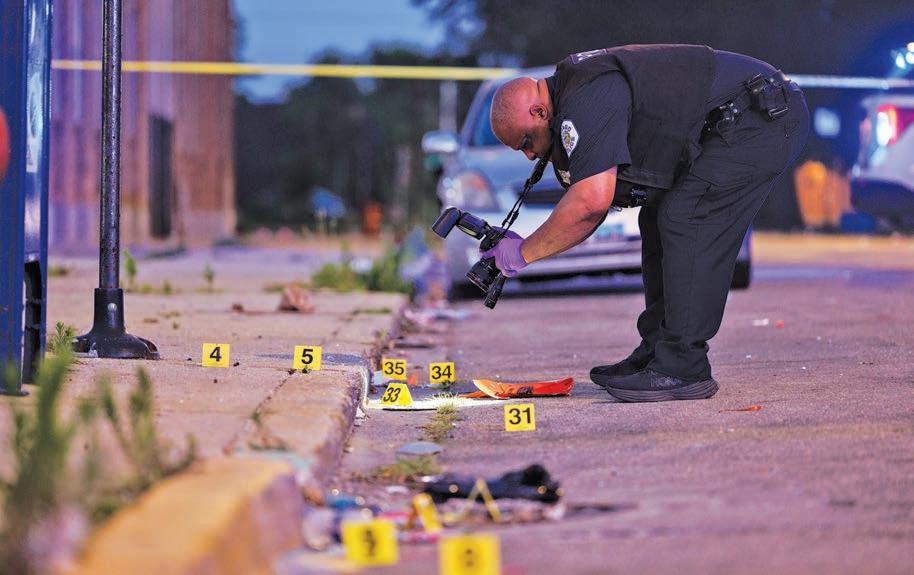
The transition from summer to fall marks the end of a lot of things, including another season of surging gun violence. Shooting incidents peak in summer months, and this grim pattern proved true again this year: Over the Fourth of July weekend alone, 109 people were shot in Chicago, 19 fatally.
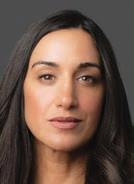
The University of Chicago Crime Lab has seen that improving public safety management may be a viable way for cities to rapidly reduce gun violence without exacerbating the harms of policing, leading to both improved actual and perceived safety in Chicago.
In our city, much of that gun violence is concentrated in specific locations at specific times. The neighborhoods with the highest homicide rates experience approximately 30 times more homicides than the neighborhoods with the lowest rates. This “safety gap” between areas with the highest amount of gun violence and those with the lowest has an especially devastating toll on communities of color. Although Black residents make up just one-third of Chicago’s population, they account for more than three-quarters of the city’s homicide victims. The safety gap not only impacts the actual levels of violence in Chicago, but the way we perceive safety in the city.
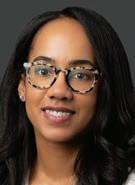
In 2016, homicides spiked by 60%, which prompted police commanders to try different tools to better manage their districts, including a partnership between the Chicago Police Department and the UChicago Crime Lab to open Strategic Decision Support Centers (SDSCs) in districts with the highest rates of violent crime. By providing district commanders with real-time data and analytics, the CPD could make better decisions about when and where to send officers. The SDSCs introduced a new way of thinking to the department: using real-time data to guide daily decisions on resource allocation.
And the insights from this partnership yielded additional collaborative projects.
Effectively tackling Chicago’s gun violence epidemic and, in turn, improving perceptions of public safety in the city falls to two sectors: police and community violence intervention (CVI) leaders. Yet, for too many communities, we’re failing to deliver transformative public safety.
In the same way that using crime data helped police be in the right place at the right time, the Crime Lab and CPD also used datadriven tactics to empower local violence prevention organizations with critical insights to guide their response to shootings and homicides to better serve those most affected by gun violence.
This has evolved into today’s Violence Reduction Dashboard, a powerful online tool that makes gun violence data publicly accessible, helping city agencies, service providers, non-profit organizations, street outreach workers, business leaders, the civic community and the media be aware of where gun violence might take place during the summer months when shootings typically peak, enabling them to craft effective violence reduction strategies and prioritize resource allocation.
The promising fact about this strategy is not just that it can prevent the most socially harmful type of crime (gun violence) without exacerbating arrests and other harms from enforcement itself, but also that this is feasible: It doesn’t require coming up with millions or billions of new dollars to hire huge numbers of additional police officers or implement expensive new technologies. In fact, finding the modest dollars required here is actually the easy lift.
The hardest part of change is sustaining it. Teaching and scaling change management practices to capitalize on innovative data-driven capacities for both policing and CVI leaders is something that both sectors are developing. We at the University of Chicago Crime Lab are doing our part with our Policing Leadership Academy and Community Violence Intervention Leadership Academy.
We are at a turning point in Chicago, and with the right support and investments, we can ensure that everyone, from government leaders to the general public, is aware of the challenges and opportunities being created, tested, and improved upon to reduce violence in and beyond our city.
The Policing Project at New York University School of Law is releasing a study on alternatives to traditional policing methods in Chicago. The study finds that Chicago lags behind other cities in establishing alternatives for police response to 911 calls. And that five years into a consent decree, which calls for a citywide community policing program, Chicago has not successfully established one.
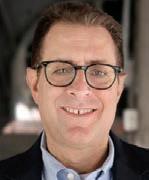
Barry
Friedman is a law professor and faculty director of the Policing Project at New York
University School of Law.
Funded by local Chicago philanthropy, the study not only analyzes the public safety challenges facing the city, but it also explores a series of solutions.
Traditionally, police are the primary, if not only, responders when people call 911 looking for help in an emergency. They do everything from making welfare checks, attending to the needs of unhoused individuals or those dealing with mental health crises, responding to noise complaints, calls about problems with animals, domestic disputes and more. Yet law enforcement professionals and community members largely agree that we ask the police to do too much, without necessary training or skills.
That can change. Many cities have alternative response systems
that rely on clinicians, community paramedics, EMTs and peers with lived experience to answer many 911 calls that do not require the use of force or law enforcement. One person we interviewed said police were only “one part of what needs to be a broader ecosystem around safety,” which should include “individuals responding to calls that they're better equipped to handle.”
Chicago community members we interviewed expressed a pessimistic view of government and its capacity to provide public safety, especially in Chicago’s neighborhoods with disproportionate levels of poverty and crime. Both community members and public officials raised the issues of over-enforcement and under-policing. Many said they had never experienced public safety. They held extremely negative views of the police department. The lack of an established, citywide community policing program is an important facet of explaining why.
The report makes three recommendations:
CARE (Crisis Assistance Re-

sponse & Engagement), the city’s current effort to provide alternative response, is well-intentioned but has lagged behind peer jurisdictions. Over a two-year period, CARE responded to approximately 1,200 calls (often accompanied by the police), while in cities like San Francisco and Albuquerque, alternative responders (often responding alone) answer tens of thousands more.
The city should identify more call types for alternative responders. Currently, the CARE program only responds to calls relating to mental health and drug overdoses. Chicago could adopt or expand alternatives to include: welfare checks; traffic collisions and hazardous events; parking, recovering
stolen vehicles and towing; burglar alarms and animal control. Focus on community policing and building trust
Finally, community policing is a crucial alternative to Chicago’s costly and often unsuccessful traditional policing model. The federal consent decree, triggered by the fatal shooting of Laquan McDonald, called for community policing to build trust between community members and the police. The existing Chicago Neighborhood Policing Initiative, working with grassroots leaders in the community, developed a roadmap for implementing community policing that could potentially fulfill all the relevant terms of the consent decree.
The gravity of the public safety challenges confronting Chicago cannot be underestimated. Residents in Chicago’s most violent districts live in near-constant fear for their physical safety. Yet, they said, they lack confidence in the Chicago Police Department. Former municipal officials echo these concerns. Real change has proven elusive and won’t come easily.
Still, there are existing plans and clear directives that, if only implemented, will have abundant benefits to every corner of the city and its residents. What matters most now is how those plans are turned into reality.
Iam a resident of the Hyde Park neighborhood. As a volunteer, business professional, employee and a community leader, I speak frequently about public safety.
When my son began kindergarten, he attended our neighborhood school. You do the things parents do to help your child succeed. Get involved in his school. Teach him at home. Make sure homework is done. Attend teacher/ parent conferences. I would soon learn this was not enough. I had to change the environment at his school. It sometimes meant going up against the Chicago Public Schools system, even to the highest levels, to properly resource his school.
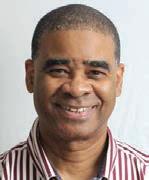
Roderick Sawyer, a 33-year Hyde Park resident and former Hyde Park Chamber of Commerce board member, served on former Ald. Toni Preckwinkle’s 53rd Street Tax Increment Finance Advisory Committee.
During my son's teenage years, neighbors would tell me about University of Chicago Police (UCPD) unjustifiably harassing Black youth. After witnessing one incident, I found that state statute governing private police forces insulated them from local oversight. I went to my state legislators to help change laws to make private police forces more accountable locally. My efforts, and those of oth-
ers, were not successful. It did change UCPD's behavior somewhat toward its non-university public. It protected my son, and others, by changing their engagement with everyone.
I know we can improve public safety and have a better quality of life. We did it in Hyde Park. Twenty years ago, the commercial district was considered crime-ridden and somewhat dilapidated. The University of Chicago would tell its students to remain close to its campus borders. After decades of private, public and political investment, Hyde Park's business corridor is a place that welcomes people from all over the world. It is sustained with intentionality, and with sufficient resources, to make our area safer and better.
However, this focus of dedicated resources created an island of prosperity surrounded by resourcestarved deserts. When the sandstorms from these deserts blow into our oasis, we decry the crime, demand solutions that exacerbate these resource gaps and insist that morality alone should supersede the circumstances of our surround-
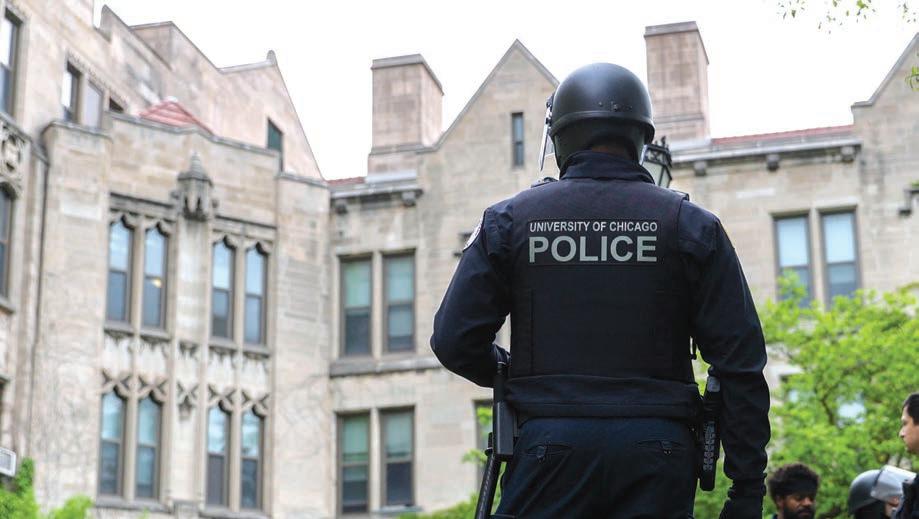
ing areas. Often, we feel less safe no matter how many resources are dedicated to us. Some residents feel over-policed. Unfortunately, any well-publicized criminal incident brings about a renewed demand for more police. And it's never enough.
My son passed away a year ago from a sudden illness. Family, friends, church, community, artists, everyone surrounded us. There were so many resources dedicated to us. I think at times
about parents who've lost their children to violence. Many, particularly Black and Brown families, have to go it alone. Their pain is compounded by the moral judging of their choices and those of their children. If we think this will create better people and make us safer, we have already failed. We didn't wait for crime and violence to ebb in order to create and sustain development in downtown Hyde Park. At the very least, wraparound services such as counseling and fi-
nancial assistance should be made available to families in distress. Public safety is an achievable goal. If we are intentional and dedicate sufficient resources, we will make neighborhoods, like the ones I grew up in — Englewood, Auburn Gresham, Roseland and West Pullman — better and safer. As I did for my son, making his educational and residential environment better made him better and safer. We can do this for all of us.
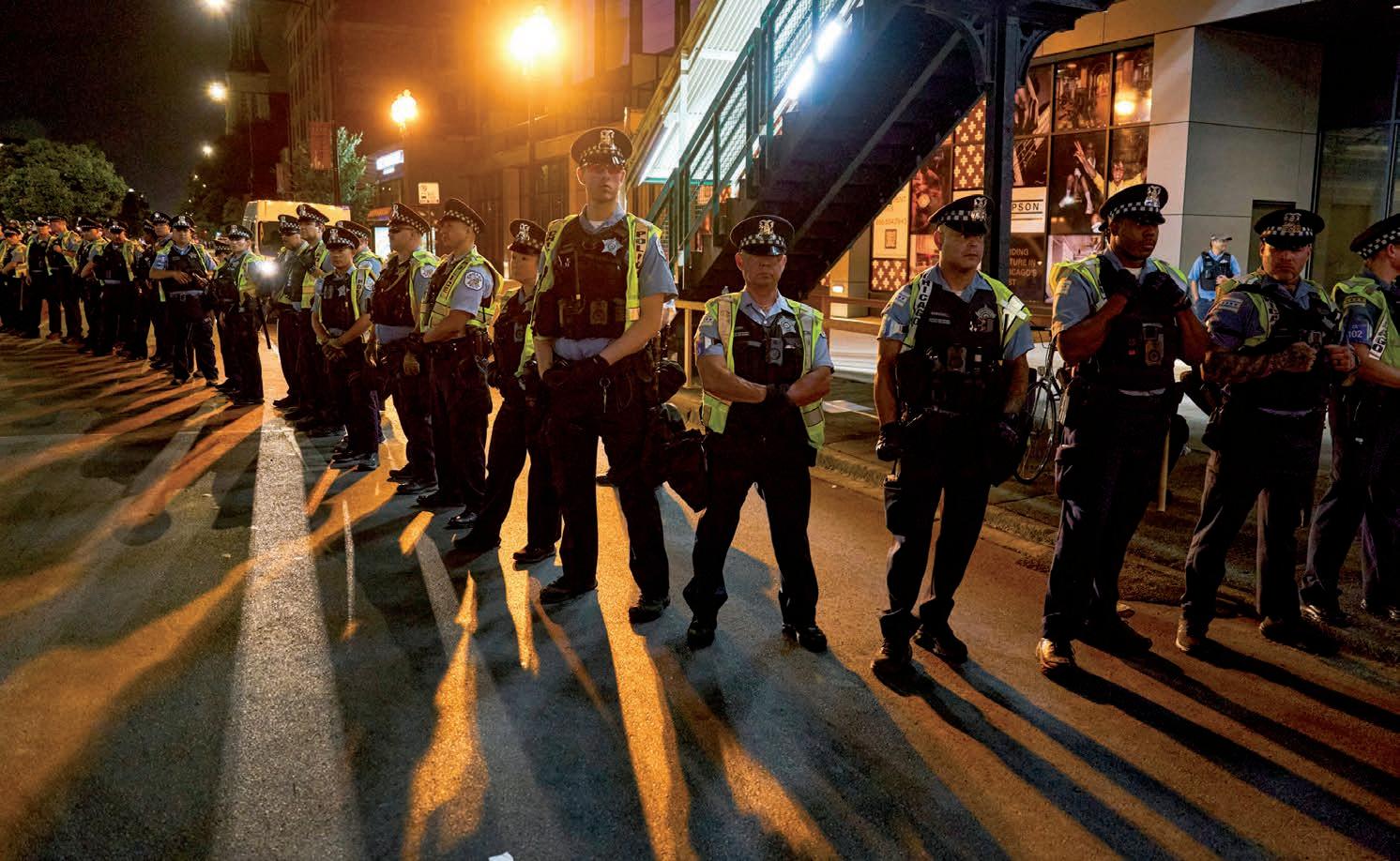
When it comes to managing public safety, a high percentage of residents say city government bears that responsibility
Over the past two years, Chicago has experienced a steady decline in homicides. Despite this positive trend, however, Chicagoans believe that the local government still has a lot of work to do to improve public safety. Regardless of the decline, the narrative of violence in Chicago is well-entrenched, and public opinion lags the relatively short-term improvement.
According to a recent Harris Poll, two-thirds (65%) of Chicago city residents are concerned about public safety in the area where they live. Nearly half (44%) of residents think public safety is worse in the city of Chicago than other places in the country.
In 2023, Chicago had 617 documented homicides — a 13% decrease from 2022. This year, the number of homicides decreased another 6%. While the city’s homicide numbers are trending in the right direction, our 2023 totals remain stagger-
ingly high when compared to the nation’s other largest cities: New York City had 386 murders last year, for example, while Los Angeles had 327.
These numbers alone do not tell the full public safety story, of course. In 2023, Chicago saw significant increases in the number of robberies, motor vehicle thefts and sexual assaults. Adding to the problem, only a small number of those committing crimes were arrested and convicted. Out of the almost 30,000 reported violent crimes last year, there were about 3,000 arrests. Similarly, an investigation from NBC 5 Chicago found that only 3% of reported sex crimes in Chicago resulted in convictions.
Chicago homicides, burglaries and car thefts declined in the first quarter of 2024, but these improving crime rates have not made Chicagoans feel any safer.
Four in 5 (84%) city residents think public safety in the area where they live is about the same (40%) or worse (44%) now
compared to one year ago.
Most Chicago residents (70%) think the city government should be primarily responsible for managing public safety, while 12% think the state government should be in charge. Of those holding City Hall responsible, more than half (60%) are dissatisfied with how the city is handling public safety where they live. Chicagoans are a practical group and they need to see more and sustained evidence of improvement before they start to really buy into it.
Mayor Brandon Johnson hopes to build “a better, stronger, safer Chicago” by investing in underserved communities.
In March, he announced plans to improve public safety in four of Chicago’s most dangerous South and West side neighborhoods — Austin, Englewood, Little Village and West Garfield Park. This approach makes sense: Even while crime rates have improved across most of the city this year, homicides are up 5% in Englewood, for ex-
ample. The mayor argues that socioeconomic and racial disparities in these communities contribute to their high rates of crime and violence. Solve the underlying problem, he argues, and crime will subside. It is unclear what impact, if any, that effectively addressing socioeconomic disparity in Chicago will have on residents’ public safety perceptions.
Like Mayor Johnson, a third of city residents (29%) say they are concerned about social inequities (e.g., economic disparities, race relations) in the area where they live. Furthermore, the majority of city residents think social inequities have remained the same (58%) or worsened (26%) in the past year.
Can the mayor and his administration succeed where so many of his predecessors failed? The city is moving in the right direction on reducing crime, but it still has a long way to go before residents will consider our public safety crisis over.
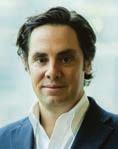

mo2 properties plans to turn a 111-year-old building into 36 a partments starting next year
By Danny Ecker
A Chicago apartment landlord has picked up a loft office building in River North with a plan to turn it into 36 residential units, adding to the list of office-to-apartment conversion plans popping up downtown.
Mo2 Properties earlier this month bought the seven-story building at 116-122 W. Illinois St. and aims to begin work early next year transforming the property into rental units, Mo2 Principals Ken and Michael Motew confirmed. Mo2 bought the 48,110-squarefoot building from the Boylston family, who built it in 1913 for its steam valve manufacturing business and has owned it ever since.
The new vision for the building comes as a number of developers eye outdated and vacancy-ridden office properties downtown as prime candidates for apartment conversions. With remote work weakening demand for workspace and downtown apartment rents remaining resilient, turning workspace into places for people to live looks like a good bet these days — if developers can land financing to pull it off.
The former Salesforce office building across the street from Mo2’s acquisition is a prime example. Local developer Howard Weiner is set to buy that mostly empty 10-story building and convert a portion of it into apartments.
On a larger scale, a Connecticutbased firm is proposing to redevelop the highly vacant office building at 500 N. Michigan Ave. into 320 apartments. And four projects on and near LaSalle Street are moving their way through city approvals for taxpayer subsidies that would help create more than 1,000 new apartments in the Loop.
With the Illinois Street project, Mo2 is playing in the same space of smaller, vintage walk-up properties that make up the majority of its roughly 700 units in Chicago, most of which are on the city’s North Side.
“We felt like it was well-located, and we like being in these areas where we’re the smaller-sized product with less amenities and more affordable rents in a highrent district,” said Ken Motew, who leads the firm with his brother, Michael Motew.
Mo2 paid $3 million for the building, according to SVN Chi-

cago Commercial Vice President Jim Mead, who brokered the sale. Mead declined to comment on behalf of the Boylston family.
The building today includes a handful of small tenants that are on flexible or month-to-month leases. Motew said the firm does not need a zoning change to move ahead with the conversion and expects to finish the project in roughly 18 months.
That target date could pay off in a big way, based on a lack of new apartments in the immediate pipeline for downtown. While rent growth has recently slowed from a rush of new supply hitting the market, a big slowdown in new deliveries next year is projected to give landlords substantial leverage to boost rents.
The Motew brothers did not specify the cost of the Boylston
building conversion, but said they anticipate one-bedroom apartments in the building renting for less than $3,000 per month and two-bedrooms for under $4,000 per month.
“We think there’s a need for more neighborhood-type (apartment) properties in that area,” Ken Motew said.
CoStar News first reported the sale of 116-122 W. Illinois St.


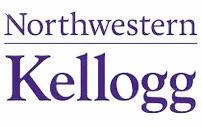











ProgramBenefits:
Apractical&experientialinnovationfocusedleadershipprogram.
Whatitis: WhoShouldApply:
For25highpotentialleadersacross industries
1fulldaysessioneverymonthfor6 months
ExpertisefromKelloggfaculty& ChicagoInnovationAwardWinners
MidtoLargeSizeOrganization Executives
FunctionalTeamLeaders
7-10minimumyearsexperience
1.Becomeaworld-classinnovator
2.NetworkwiththeChicago InnovationEcosystem Participant
3.Receiveaprogramcertificate
1.Createacompany-specific capstoneproject Organization
2.Advanceahigh-potential functionalleader
3.Buildaneffectiveinnovation process&culture
The 100+ people honored in Crain’s Notable Black Leaders represent all industries and communities: C-suite executives and investors handling multimillion-dollar budgets and billiondollar deals, advisers helping our neighbors pursue higher education and secure social services, attorneys leading law firms and advocates leading the way toward change. From magnates to mentors, they’re working to enrich their companies, our communities and our city.
METHODOLOGY: The individuals featured did not pay to be included. This list, which is not comprehensive, includes only individuals for whom nominations were submitted and accepted after a review by editors. To qualify for the list, nominees must serve in a senior leadership role at their company or organization; have at least 10 years of experience in their field; and demonstrate significant accomplishments within their industry, professional organizations, and civic and community groups. They must live and work in the Chicago area. Their profiles were written from the nomination materials submitted. Some of the profiles in this feature were written with the assistance of generative AI based on provided information. Honorees can appear in only one Notables feature per calendar year.
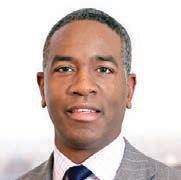
Phil Alphonse
Senior partner and co-head of knowledge and learning solutions
The Vistria Group
Scope of work: Alphonse co-leads Vistria’s knowledge and learning solutions team, focusing on investments in education, human capital and information services. His team has deployed nearly $5.7 billion across 13 companies in sectors like early childhood education, K-12 resources and workforce development.
Biggest professional win: Alphonse has helped grow Vistria to over $12.9 billion in assets under management. He co-led the investment in FullBloom, a leader in K-12 special education solutions, delivering quadruple returns for investors after Vistria’s 2021 exit.
Other contributions: Alphonse is incoming chair of the Illinois Venture Capital Association and serves on the boards of the University of Chicago Medical Center, P33 Chicago, WTTW and multiple companies.
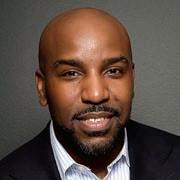
Jeffery Beckham Jr. CEO Chicago Scholars
Scope of work: Beckham leads Chicago Scholars and co-leads its Reach Pathways, supporting over 6,000 first-generation and low-income students pursuing higher education. He manages 75 staff members, overseeing planning, program development and budget management.
Biggest professional win: Since 2021, Beckham has raised over $35 million and launched the Reach platform, using AI to expand college and career resources. Chicago Scholars increases lifetime earnings for students by $1.2 million each, adding $6.8 billion in income overall.
Other contributions: Beckham has served on the boards of 100 Black Men of Chicago and the Greater Bronzeville Neighborhood Network. He volunteers as a youth ministry leader, mentors youth across Chicago and is a Leadership Greater Chicago fellow.
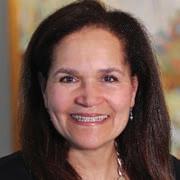
Samia Amamoo
Vice
president
of risk management and corporate compliance officer
Mather
Scope of work: Amamoo manages safety and risk programs for Mather’s 550-plus team members across senior-living communities in three states, serving over 1,100 older adults. She oversees fall prevention, cybersecurity, fire safety and succession planning, managing risk programs exceeding $2 million annually.
Biggest professional win: Amamoo was named Caring Communities’ 2023 Risk Manager of the Year for her commitment to safety and excellence. She has improved safety and well-being for residents and staff by refining processes, achieving high external audit scores.
Other contributions: Amamoo is on Caring Communities’ Risk & Claims Committee and volunteers with the Infant Welfare Society of Evanston, Boys Hope Girls Hope and as a reading coach.
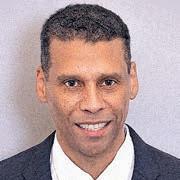
Robert Blackwell Jr. Founder and chairman Quant16
Scope of work: Blackwell leads Quant16, a digital transformation consultancy in Chicago, and founded TESC.Love, a movement to demonstrate that free enterprise benefits everyone. He provides strategic advice on digital modernization, guiding governments and businesses to better leverage IT investments.
Biggest professional win: His biggest win is launching TESC. Love, which advocates for large organizations to do business with Black-owned companies that build social capital, helping to elevate Black communities from poverty to prosperity.
Other contributions: Blackwell serves on the boards of the Commercial Club of Chicago, the Business Leadership Council and the Chicagoland Chamber of Commerce. He is a dedicated writer, creating essays on innovation and efficiency in the public and private sectors.
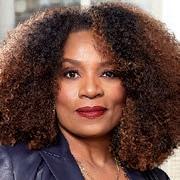
Danielle Austen
Founder and CEO
Fluent360
Scope of work: Austen founded and leads Fluent360, a Chicagobased multicultural marketing agency. Since 2008, she has grown the firm from eight to 50 professionals, serving clients like Nissan, Wells Fargo, Capital One and the U.S. Army.
Biggest professional win: In 2023, Austen was named Advertising Woman of the Year by the Chicago Advertising Federation for her achievements in multicultural marketing. In 2022, Fluent360 won the Mosaic Award for talent and suppliers in advertising for Nissan.
Other contributions: Austen is on the boards of Adler University and Girl Scouts of Greater Chicago, supporting social justice and youth enrichment. She serves on the American Advertising Federation’s Mosaic Council and pledged Fluent360’s volunteer support to the Greater Chicago Food Depository.
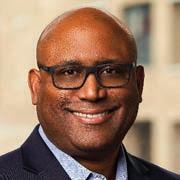
Brad Bogan Vice president McDonald’s
Scope of work: Bogan is vice president of strategic franchising for McDonald’s USA, overseeing the strategy and a team of 28. He is responsible for sustaining McDonald’s franchising model for nearly 14,000 U.S. restaurants.
Biggest professional win: Bogan was selected by McDonald’s U.S. president to modernize the franchising strategy, enhance national standards and revamp the candidate approval process to drive growth. He serves on the company’s global franchising board, which governs franchising policies worldwide.
Other contributions: Bogan cofounded the Paul W. Caine Foundation, supporting scholarships and grants for Chicago-area students and businesses. He volunteers with Ronald McDonald House Charities; CareerSpring, mentoring firstgeneration and low-income students; and the Winnetka Community House, supporting the unhoused community.
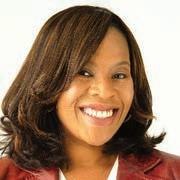
Pamay Bassey
Chief learning and diversity officer
Kraft Heinz
Scope of work: Bassey leads a team of 30, driving a culture of continuous learning, creativity and inclusion across Kraft Heinz.
Biggest professional win: Bassey’s 365 Days of Learning project, where she learned something new daily for a year, sparked a companywide learning transformation. It inspired her book “Let’s Learn Our Way Through It, Shall We?” and fostered a learning culture that supports award-winning development and diversity work at Kraft Heinz.
Other contributions: Bassey is on the boards of Houlihan Lokey and the M&G Etomi Foundation and advises GSV Ventures and Reach Capital. She also serves on the Northwestern University Alumni Association board and received the Governors’ Award from Stanford University in 2023.
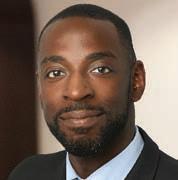
Vice president and construction executive
Turner Construction
Scope of work: Brima oversees day-to-day operations for the Lakeside Alliance, the joint venture of five companies, including Turner, managing construction of the Obama Presidential Center. He leads a 50-person team and ensures the project stays on schedule and on budget.
Biggest professional win: Since 2018, Brima has led the Lakeside Alliance from the center’s preconstruction to the halfway point today. He drives the alliance’s mission to develop diverse talent and support minority-owned subcontractors.
Other contributions: Brima is a founding member of Turner’s National Inclusion Action Committee. He was a mentor in the Architecture Construction Engineering Mentor Program and served on the board of Rebuilding Together Metro Chicago. He’s active in the Oak Park River Forest High School Community Council.
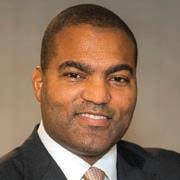
Marc Brooks
President and CEO
Hyde Park Hospitality
Scope of work: Brooks has led Hyde Park Hospitality for over a decade, securing business with Fortune 500 clients while focusing on job creation for women and people of color. His leadership has driven 400% growth in five years and eight-figure revenues, expanding the business to 1,000 employees.
Biggest professional win:
Brooks led Hyde Park Hospitality to become the first Chicagobased airport concessionaire to bring Chick-fil-A to O’Hare, in partnership with a women-owned business. This 100% minorityowned deal involved collaboration with Unibail-RodamcoWestfield and the Chicago Department of Aviation.
Other contributions: He serves on the board of the Common Ground Foundation, mentors small-business owners and received the Chicago Defender’s Vanguard Award in 2023.
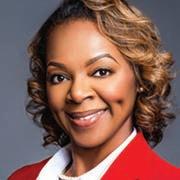
Nicole C. Bullock Founder and CEO
Nicole Cares Foundation
Scope of work: Leading the Nicole Cares Foundation, a nonprofit supporting cancer patients — particularly those with blood cancers — from diagnosis through survivorship, Bullock oversees growth, fundraising, relationship building and program execution.
Biggest professional win: Diagnosed with non-Hodgkin’s lymphoma in 2016, she has grown the foundation to serve over 800 patients with educational resources, financial assistance, support groups and care packages. She led initiatives to increase blood donations in the African American community.
Other contributions: Bullock serves on the Versiti Blood Center of Illinois board and the University of Chicago Medicine Comprehensive Cancer Center community advisory board. She is a member of the National Coalition for Cancer Survivorship’s Cancer Policy & Advocacy Team.
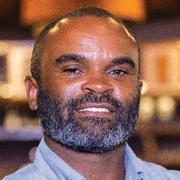
Euler Bropleh
Managing director
VestedWorld
Scope of work: Bropleh is founder and managing partner of VestedWorld, leading the firm’s investment strategy in Africa. He has guided investments in over 30 startups across key markets, including technology and agriculture, to drive growth and development.
Biggest professional win: VestedWorld received the Pioneer Award from the National Association of Securities Professionals for its innovative efforts in directing capital into underserved regions and industries in Africa, highlighting the firm’s impact under Bropleh’s leadership.
Other contributions: Bropleh is active in the community, serving on the boards of the Field Museum, African Leadership Foundation, AgriCorps, Mothers2Mothers and Ingenuity.
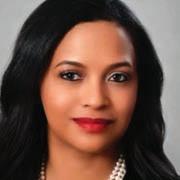
Timnetra Burruss
Chief deputy commissioner
Cook County Board of Review
Scope of work: Burruss, appointed in December 2023, oversees operations of the Cook County Board of Review, the highest-volume quasi-judicial agency in the U.S. with 250,000 appeals annually. She manages the legal department, advises commissioners on property tax policy and leads strategic planning in the 170-person county agency.
Biggest professional win: Burruss, the first woman to serve in the role, provides strategic leadership and manages over 40 staff members.
Other contributions: Burruss is a board member of Commercial Real Estate Women Chicago and was founding co-chair of its equity and inclusion committee. She is assistant secretary for the American Bar Association’s Real Property, Trust & Estate Section and volunteers with the Girl Scouts.

Nicole T. W. Brown
Senior director of programs
Cubic Transportation Systems
Scope of work: Brown, with Cubic for six years, manages the Ventra contract with the Chicago Transit Authority, overseeing design, build and services for Ventra, including the mobile app used by millions in the city. Promoted in 2021, she also leads global efforts in the U.S., U.K., Germany and India.
Biggest professional win: Brown fostered a positive cultural shift on the Ventra team, emphasizing empowerment and accountability. Working with Chicago Public Schools, she created a bus aide management plan saving $3 million in the first year, earning CPS’ highest achievement award.
Other contributions: Brown mentors students, is involved with DePaul’s Kellstadt School of Business Supply Chain Counsel and supports local high schools through Alabama A&M University activities.
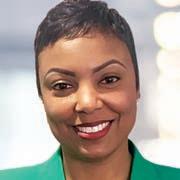
Sirmara Campbell
Chief human resources officer
LaSalle Network
Scope of work: Campbell oversees LaSalle Network’s HR department, supporting 230 internal employees across five offices and managing HR efforts for 2,000-plus temporary employees on assignment. She leads training, development and recruiting efforts.
Biggest professional win: During COVID, she ensured employees had the resources and support needed to work efficiently from home. LaSalle retained 100% of its working mothers under her leadership and avoided layoffs. The firm earned recognition from Inc. and Fortune as a top workplace.
Other contributions: Campbell volunteers with organizations like By the Hand and Kids Above All. She mentors youth, speaks at industry conferences, and has been recognized among the top 150 staffing leaders globally and as a top DEI leader by Staffing Industry Analysts.

Nicholas Bruce
Senior vice president
Wintrust Bank
Scope of work: Bruce is senior vice president at Wintrust Bank, leading a team that advises nonprofits, health care and higher education organizations on lending, cash management and other services. His clients include Howard Brown Health and Cristo Rey Jesuit.
Biggest professional win: Bruce moved from Houston to Chicago three years ago and quickly established strong local connections. With over 20 years of banking experience, he is a trusted adviser and connector in the community.
Other contributions: Bruce advises the Illinois chapter of the Alzheimer’s Association and serves on the boards of Bright Promises Foundation and Chicago Youth Programs, focusing on at-risk youth. He also serves on the advisory board of the International Minority Bankers Association.
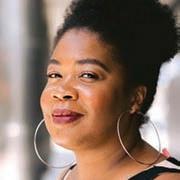
Program director
Disability Culture Lab
Scope of work: Chaney leads efforts at Disability Culture Lab, a nonprofit media and narrative lab that builds communications infrastructure by and for the disability community. It amplifies disabled leaders to achieve political wins and shift narratives on disability and ableism.
Biggest professional win: Chaney was selected for the Emerge Fellowship at the Paul K. Longmore Institute on Disability, focusing on her work exploring Black disabled women’s roles in online disability activism. She has 20 years of experience in communications, journalism and digital media for organizations like Chicago Arts Partnerships in Education.
Other contributions: Chaney’s writing has appeared in the Chicago Sun-Times, Chicago Reader and NewCity. She was a 2020 leadership fellow at Disability Lead and regularly performs at “live lit” events.
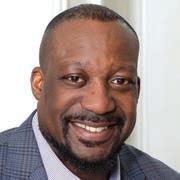
Andre Brumfield Principal Gensler
Scope of work: Brumfield is global cities sector leader at Gensler Chicago, working with public agencies, private clients and nonprofits to develop master plans shaping neighborhoods and cities. He also co-chairs Gensler’s global race and diversity committee.
Biggest professional win: Brumfield leads the Englewood Agro-Eco District Land Use Plan with the city of Chicago, which will transform 1.75 miles of abandoned railroad track into an economic hub for urban agriculture, supporting equity and local employment. He also contributes to affordable housing projects like The Ave and Southbridge. Other contributions: Brumfield is vice chair of the Chicago Plan Commission; serves on the boards of the Chicago Architecture Center, National Housing Services and Chicago TREND; and is active with the Urban Land Institute.
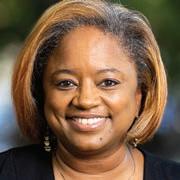
Melissa Clark
Senior vice president and chief financial officer
Primera Engineers
Scope of work: Clark oversees the financial well-being of Primera Engineers and the nonprofit Primera Foundation, managing strategic planning, budgeting, financial analysis and cash management, and leading a team of 11 at the $55 million firm.
Biggest professional win: Clark established Primera’s employee stock ownership plan, which supports the firm’s culture of employee ownership and fulfills the CEO’s succession plan. She arranged the plan to transfer 4% ownership annually and led the firm through its first valuation process.
Other contributions: Clark is treasurer of Green City Market, serves on boards including The Evolved Network and Chicago Chefs Cook, and co-chairs the CFO Leadership Council. She also supports Youth Guidance’s WOW Program and is active with Chicago United.
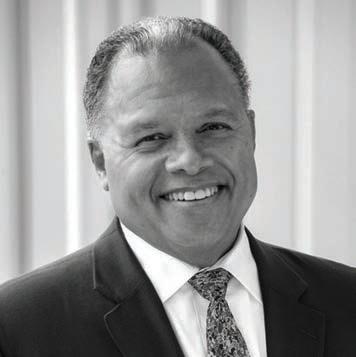
Rush congratulates Dr. Higgins on being named one of Crain’s 2024 Notable Black Leaders.
We are proud to see Bob Higgins recognized for his vision and leadership, building upon Rush University’s rich legacy of service and the advancement of health sciences education. He is a dynamic leader who is positioning Rush to take on the biggest challenges in medical education today: Issues around student debt, low workforce enrollment in health care, and health inequities as they a ect the health of individuals and communities.

Larita Clark CEO
Metropolitan Pier & Exposition Authority
Scope of work: Clark oversees McCormick Place, North America’s largest convention center; two MPEA-owned hotels; Wintrust Arena; Arie Crown Theater; and the MPEA Energy Center. CEO since 2020, she manages vendor relations, lawmakers, unions and hundreds of clients.
Biggest professional win: She led McCormick Place through COVID, reopening in June 2021. She guided the campus to financial recovery, with fiscal 2023 operating revenue of $336.9 million, $62 million above budget. McCormick Place, which hosted this year’s Democratic National Convention activities, attracts events like Microsoft Ignite and the Rotary International Convention.
Other contributions: Clark, who received the 2024 Ambassador of Hospitality Award from the Illinois Hotel & Lodging Association, is on the boards of Choose Chicago and Navy Pier and the Near South Planning Board.
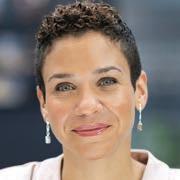
Melissa Connelly
CEO
OneGoal
Scope of work: Connelly leads OneGoal, partnering with more than 50 school districts nationwide to transform postsecondary advising for 75,000-plus underserved students. She manages a $40 million budget and focuses on building a strong culture for 220-plus staff.
Biggest professional win: Under Connelly, OneGoal launched the OneGoal Leadership Network with the Illinois State Board of Education, expanding from serving small cohorts to impacting thousands of students districtwide. Districts like Proviso saw gains in FAFSA completion and graduation and postsecondary enrollment rates. The network has expanded to three states.
Other contributions: Connelly is secretary of Dominican University’s board of trustees, a board member of Reading Partners and a Young Presidents’ Organization member. She has spoken at the Gates Foundation and the Obama Foundation.
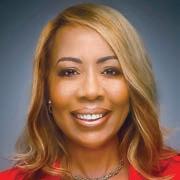
Veronica Clarke President and CEO TCA Health
Scope of work: Clarke provides strategic direction for TCA Health, leading a diverse team of health care professionals and ensuring compliance with federal and state regulations. She focuses on expanding services and improving access to health care for vulnerable populations.
Biggest professional win: She successfully guided TCA Health through the COVID pandemic, ensuring safe access to testing and vaccinations. She oversaw the expansion into the Hegewisch neighborhood and is preparing for further growth into Hammond, reflecting TCA’s commitment to community-focused service.
Other contributions: Clarke serves on the executive committee of the National Association of Community Health Centers, driving strategic initiatives in health care access and advocacy. She is also on the executive advisory board of the UIC School of Public Health.
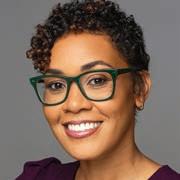
Morgan Diamond Director of workforce development
Discovery Partners Institute
Scope of work: Diamond leads efforts at the Discovery Partners Institute’s Pritzker Tech Talent Lab to help adult learners from nontraditional backgrounds enter the tech industry. She develops equitable admissions processes and oversees a 12-month tech apprenticeship, partnering with companies like Deere, Oak Street Health, SAP and Zebra Technologies.
Biggest professional win: The tech apprenticeship program has graduated nearly 120 participants since 2022. Trainees placed in apprentice-level tech roles saw their average annual income rise from $19,000 to $65,000, increasing to more than $97,000 for full-time positions.
Other contributions: Diamond has served on the Illinois Workforce Innovation Board’s Equity Task Force and participated in the Willie’s Warriors Leadership Initiative through the Chicago Foundation for Women.
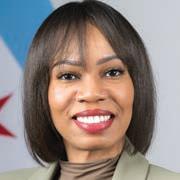
Director of marketing and communications
Chicago Public Library
Scope of work: Clay helps position the Chicago Public Library as an essential community resource. She oversees advertising, design, social media and public relations and collaborates with the Chicago Public Library Foundation to enhance funding for key programs.
Biggest professional win: In 2023, Clay led CPL’s 150th anniversary campaign, generating over 300 million media impressions and a 20% increase in library card registrations. She also launched the library’s first podcast, “Library for the People,” in partnership with the Chicago Public Library Foundation and the Public Radio Exchange.
Other contributions: Before joining the Chicago Public Library, Clay led marketing at National Louis University and City Colleges of Chicago, boosting social media engagement and brand awareness.
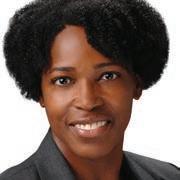
Partner
Plante Moran
Scope of work: Donaldson is a partner on Plante Moran’s risk and accounting advisory services team, supporting over 100 middle-market companies with accounting, finance and risk management. She focuses on practical solutions and fosters strong relationships between staff and clients.
Biggest professional win: Promoted to partner in 2022, Donaldson now helps lead a team of over 100 professionals serving more than 300 clients. She prioritizes team development, seeking opportunities to grow skills and expand client support, ultimately strengthening the practice.
Other contributions: Donaldson mentors with Plante Moran’s Women in Leadership program and supports the Evans Scholars Foundation by offering career guidance to scholarship recipients. She is involved with several CPA and business organizations and serves on Southern Illinois University-Carbondale’s minority advisory board.
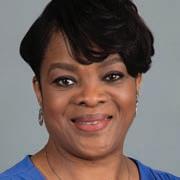
Vice president of patient care services and chief nursing officer
UChicago Medicine
Scope of work: Coe is chief nursing officer at UChicago Medicine, overseeing the nursing practice for over 2,500 nurses and managing fiscal budgets. She has been with the medical center for more than six years.
Biggest professional win: In 2022, Coe embedded diversity, equity and inclusion into nursing governance, which allowed for outreach efforts to engage the South Side community. She leads 20 nurses focused on outreach like health screenings, fairs and high school visits.
Other contributions: Coe is a fellow of the Carol Emmott Foundation and the American College of Healthcare Executives. Named an Outstanding Mother by the American Lung Association in 2023, she also remains active in her church.
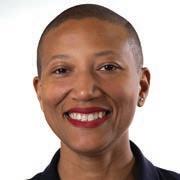
Principal HOK
Scope of work: Dowdell directs strategic relationships at HOK, enhancing connections with clients, partners and stakeholders. She co-chairs HOK’s diversity advisory council, helped found HOK Impact and leads HOK Tapestry, a program supporting collaboration with diverse firms.
Biggest professional win: In 2022, Dowdell became the first Black woman elected president of the American Institute of Architects in its 166-year history. As the 100th AIA president, she advocates for equity, diversity and climate resiliency, aiming to reshape the architecture profession.
Other contributions: Dowdell co-founded the SEED Network, advancing the right to live in healthy communities. She’s on the boards of the Chicago Architecture Biennial, Chicago Central Area Committee, Ingenuity, and Cornell University. Dowdell was the 2019-20 national president of the National Organization of Minority Architects.
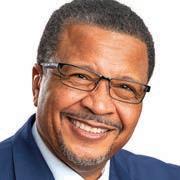
Wheeler Coleman
CEO and executive partner
Executive Consultants United
Scope of work: In 2016, Coleman founded Executive Consultants United, a nationally certified minority business enterprise IT consultancy providing services, equipment and labor to Fortune 100 and community organizations. EC-United’s revenue has grown 10 times since 2020, and it’s the only Black-owned value-added reseller in Illinois.
Biggest professional win: During the pandemic, EC-United developed a sign-up and scheduling system for Cook County Health, used by over 2.8 million people, facilitating 1 million vaccination appointments. The system managed 38 million messages in English and Spanish.
Other contributions: Coleman is on the boards of the Chicago Minority Supplier Diversity Council, Special Olympics of Illinois and the Northern Illinois University Foundation. He was a 2006 Leadership Greater Chicago fellow.
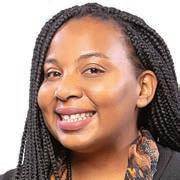
Rosie Drumgoole CEO
Chicago Cares
Scope of work: Drumgoole has led Chicago Cares since 2023, overseeing a $3 million budget and a 15-member team. She mobilizes diverse volunteers, promotes civic engagement and prepares communities, nonprofits and corporations for transformational service.
Biggest professional win: Drumgoole reshaped Chicago Cares’ approach to service with its community investment strategy, connecting 22,000 volunteers and leveraging $9.7 million to support partners on Chicago’s South, West and Northwest sides. She also helped develop capacitybuilding and advisory services, offering community-driven, equity-focused strategies.
Other contributions: She serves on the boards of AMPT Advancing Nonprofits and Deborah’s Place, was appointed by the governor to the Serve Illinois Commission, and is an alumna of the Allstate Foundation’s Executive Leadership Program and the American Express Leadership Academy.












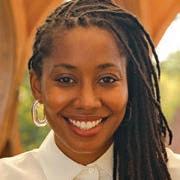
Jessyca Dudley
CEO
Bold Ventures
Scope of work: Dudley leads Bold Ventures, a strategic advisory firm supporting philanthropy focused on eliminating disparities and advancing racial equity. She guides a team that supports foundations and corporations like Patagonia, Qualcomm and the Pritzker Traubert Foundation.
Biggest professional win: Under Dudley, Bold Ventures has stewarded over $50 million in philanthropic capital to organizations led by and serving people of color. The firm developed grantmaking opportunities for the Chicago Sports Alliance to address gun violence prevention.
Other contributions: Dudley co-founded the Chicago Foundation for Women South Side Giving Circle and has served on the boards of Firebird Community Arts, AIDS Foundation Chicago and the Chicago Foundation for Women. She also led the effort to bring “The Soul of Philanthropy” exhibit to Chicago.
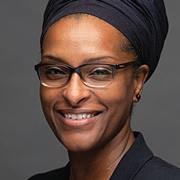
Aisha El-Amin
Executive associate vice provost for student success and belonging
University of Illinois Chicago
Scope of work: El-Amin oversees UIC’s 11 Student Success units, managing a $6 million budget and leading over 70 staff. She focuses on retention, graduation and academic outcomes aligned with UIC’s mission of access and excellence.
Biggest professional win: El-Amin was instrumental in establishing UIC John Marshall Law School, Chicago’s first public law school, and led efforts to name Fredrick Douglass Hall, the first campus building named after a Black person. She also helped establish UIC’s first Muslim chaplain position.
Other contributions: She is chair of American Islamic College and secretary for the Council on American-Islamic RelationsChicago, and was an elected school board member in Sauk Village.
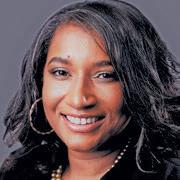
President and CEO
Women Employed
Scope of work: Ellens directs strategy, policy, program development, financial management and organizational sustainability. Since 2019, she has grown the organization’s budget from $2.2 million to $3.7 million and increased staff 33%.
Biggest professional win: Ellens transformed WE into an inclusive organization reflective of the women it serves: Black, Latina and low-income. She emphasizes equity and belonging, leading to WE’s recognition as one of Crain’s Best Places to Work. Her leadership has achieved policy wins in paid leave, pay equity and financial aid.
Other contributions: Ellens chairs the city of Chicago’s Mayor’s Advisory Council on Women and the Illinois Labor Advisory Board and is a member of the Governor’s Commission on Workforce Access & Equity.
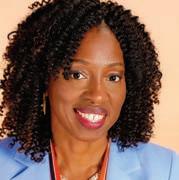
President and CEO
Sinai Chicago
Scope of work: Ezike, the first Black woman to lead Sinai Chicago in its 103-year history, became president and CEO in 2022. She directs strategic vision, finance, workforce, advocacy and community engagement, ensuring quality and culturally competent care.
Biggest professional win: Ezike was medical director of the Illinois Department of Public Health, the first Black woman in the role, guiding Illinois’ pandemic response. She introduced a health equity checklist for state grants to promote diversity, equity and inclusion. At Sinai, she led strategic planning to improve financial stability and emphasize health equity.
Other contributions: Ezike serves on the boards of the Healthy Communities Foundation and 211 Metro Chicago and is on the Dominican University Center for Igbo Studies advisory board.
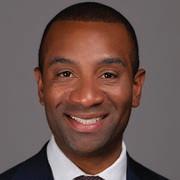
Vice president of corporate real estate
United Airlines
Scope of work: Fair oversees United’s airport facilities and leads planning and development for the airline’s U.S. and international locations, including O’Hare Airport. He manages lease negotiations and relationships with airports, airlines and governments.
Biggest professional win: Fair played a key role in negotiating the agreement with the city of Chicago for O’Hare’s terminal expansion and renovation. With 15-plus years of experience in commercial development and aviation, he previously served as United’s managing director of airport affairs and managing director of planning and development worldwide.
Other contributions: Fair chaired the 2022 American Heart Association’s Hard Hats with Heart campaign and is a 2023 Leadership Greater Chicago fellow. He’s on the board of managers of United’s Aviate Flight Training Academy.







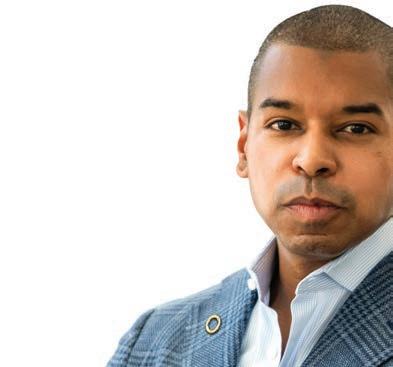































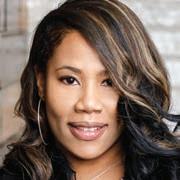
Global vice president of diversity, equity, inclusion and belonging Highspot
Scope of work: Feliciano manages a team across global regions, overseeing a $400,000 budget, conducting equity audits and advising leadership to integrate diversity, equity, inclusion and belonging principles throughout the business.
Biggest professional win:
Feliciano’s initiatives increased representation of people of color by 4% and leadership by 27%, raised diverse talent applications to 50%, grew employee resource groups from two to nine and closed the gender pay gap by 3%.
Other contributions: Feliciano was named Diversity Champion of the Year by Black Tech Awards in 2024 and was listed on Chief Navigator’s “2023 10 Influential Women in Diversity & Inclusion.” She advises two AI-focused tech companies and is active with the Delta Sigma Theta Sorority.
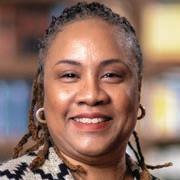
Senior vice president and head of IT business management
Federal Home Loan Bank of Chicago
Scope of work: Fields oversees the Federal Home Loan Bank of Chicago’s systems ownership, strategic sourcing, vendor management, and risk and compliance functions. She manages key teams and budgets central to the bank’s technology transformation.
Biggest professional win: Fields transformed her department by integrating risk practices, recruiting top talent and establishing a comprehensive security risk registry. Her leadership reduced security issues 50% and improved compliance 30%.
Other contributions: Fields helped create the bank’s corporate scholarship program to support Christ the King High School students involved in the corporate work-study program. She also contributed to the FHLBC Impact Fund, providing targeted investments in school programs, including music and technology initiatives.
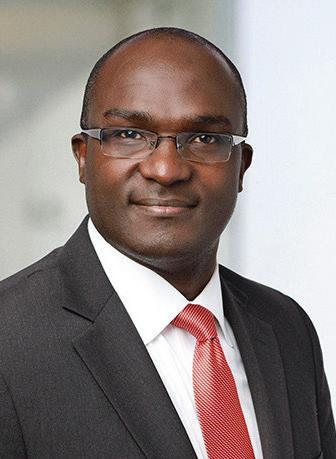
Sam Pambah, originally from Kenya, is a Principal/Partner at KPMG LLP in Chicago and Co-leader of Markets for KPMG’s Economic & Valuation Services (EVS) practice, responsible for execution of its growth strategy and talent development. He has contributed to a double-digit four-year compounded annual growth rate for the national practice. Sam serves as KPMG’s global lead partner on a Fortune 50 Chicago-area retail/health care company.
Sam’s civic commitment is evident in his volunteer service with local nonprofits. He currently chairs the finance committee of Chicago United and serves on the Dean’s Advisory Board, Brandeis University’s International Business School.

Global legal lead, governance and risk and global data privacy Accenture
Scope of work: Flowers focuses on governance, risk management and data privacy at Accenture, with responsibilities including regulatory engagement, M&A legal support, enterprise risk assessments, crisis management and monitoring global legal developments.
Biggest professional win: Flowers helped create Accenture’s Midwest Pro-Bono Legal Clinic, which became a global model, generating over 1,700 volunteer hours from in-house attorneys. For his efforts, he received the 2023 Exelon Outstanding Corporate Counsel Award from the Chicago Bar Association and Chicago Bar Foundation.
Other contributions: Flowers chairs the human capital and compensation committee at Bradley University, serves on boards for Illinois Tech’s Kaplan Center and Chicago-Kent College of Law and is executive director of the Kappa Leadership Institute of Chicago
Sponsored Content
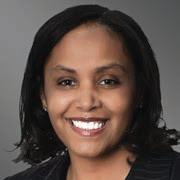
Tiffany S. Fordyce
Shareholder
Greenberg Traurig
Scope of work: Fordyce chairs Greenberg Traurig’s Chicago labor and employment practice and co-chairs the practice’s DEI group. She represents a Fortune 200 company in complex litigation, securing a $2 million settlement and summary judgment on all counts.
Biggest professional win: Fordyce successfully defended Illinois State University in a class action over COVID-related tuition refunds, with the 7th Circuit affirming dismissal. She represented a municipality in a termination proceeding involving a wrongful police entry and detention incident.
Other contributions: Fordyce, who’s dedicated nearly 25 years to pro bono immigration work, is on the Women’s Bar Foundation board. She is active in the Black Women Lawyers’ Association and National Black Lawyers and has been named among Illinois’ Top 100 Lawyers.
How did you get interested in valuation services?
With a background in statistics and an MBA in finance, I found my niche in KPMG’s EVS practice, which combines valuation, transfer pricing and economic services. As a valuation adviser, I work with a diverse client base, from small businesses to Fortune 500 companies, helping executives make informed decisions regarding valuations of legal entities, assets, capital structures, etc. Clients rely on my work for compliance with regulations and strategic planning.
What has shaped your evolution as a business leader?
Primarily, my broad industry experience and the network I have built within and outside of the firm over the years. As my roles in the firm have expanded, so has my sphere of influence, which has required new style of leadership. I lean into my mentors, sponsors and confidants, and commit to continuous learning. I strive for a results-driven growth mindset for myself and my team.
How would you describe your leadership style?
I firmly believe in principles of strengthbased leadership. In interactions with my team, I focus on intersection of career
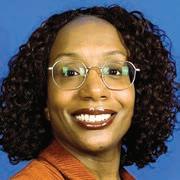
Kendra J. Freeman
Vice president, programs and strategic impact
Metropolitan Planning Council
Scope of work: Freeman leads policy and systems change initiatives focused on the built environment. She oversees a 14-member team and collaborates with senior leadership and the board to shape policy, build partnerships and raise awareness of the council’s work.
Biggest professional win: Freeman played a key role in the “Cost of Segregation” study and led policy work on equitable transitoriented development, contributing to the city of Chicago investing $10 million in ETOD grants. She co-founded Elevated Chicago and co-led development of the city’s ETOD policy plan and Connected Communities Ordinance.
Other contributions: Freeman chairs Storycatchers Theatre’s board, volunteers with LadderUp and is on the peer review committee of the Illinois Science & Energy Innovation Foundation.
Sam Pambah
objectives/satisfaction and productivity that drives business results. Building trusting relationships allows me to be vulnerable and encourage risk taking, speaking up and innovating culture. I find it necessary to provide autonomy, with clear alignment on core values and business goals and objectives. This way, the team is empowered to make decisions, and my role is essentially an enabler.
How do you develop top talent?
I am fortunate to work for a firm that emphasizes a high-performance culture, which provides me access to excellent talent across all levels. Our people want transparency around career progression, effective communication on how individual goals align with business objectives and, importantly, purpose in their work. These are critical in recruiting and retaining top talent. As such, I am intentional about providing career enriching engagement opportunities and providing timely, direct and honest feedback.
What is your current business goal or priority?
I am focused on driving sustained profitable growth for the practice. The post-COVID era created uncertainties and opportunities in our industry and requires us as leaders to be laser
focused on what matters most for our clients. The pace of disruption is rapid, and in addition to working with our clients, we are also spending time focusing on evolving our business models and our capabilities. One thing I am sure of, though: nothing replaces human relationships. KPMG is at the forefront of leading the charge in areas such artificial intelligence, ESG/ sustainability, etc., and my practice is deeply involved.
Can you tell us about your community volunteer efforts?
During my time with KPMG in Boston, I was involved with the National Association of Black Accountants, Inc. (NABA) and led the chapter as president. NABA’s motto of “Lifting as you Climb” really resonated with me. I derive fulfilment and sense of purpose when I am able to positively impact others around me. I have immensely benefited from others’ kindness and sacrifices. Some causes that I deeply care about are education, health care and what I call opportunity. I was fortunate to serve on the board of Spark Program, which focused on career exploration, opportunity and access for students in the Chicago Public School system.


Jessica Ashley Garmon Chief operating officer and chief general counsel
The Will Group
Scope of work: Garmon manages The Will Group’s electrical, lighting, construction, engineering and energy sector projects with public and private partners, including the Chicago Infrastructure Trust’s Smart Lighting Project, Exelon’s voltage optimization and O’Hare’s Airport’s lighting modernization program.
Biggest professional win: Garmon’s leadership was pivotal in The Will Group playing a role in Chicago’s $160 million smart lighting program, which enhances nighttime visibility, aims to save taxpayers $100 million in energy costs and reduces the city’s carbon footprint.
Other contributions: Garmon is DuPage County Housing Authority commissioner and supports the nonprofit Tuskegee NEXT Foundation, which her family founded to honor the Tuskegee Airmen and empower underrepresented youth through aviation.
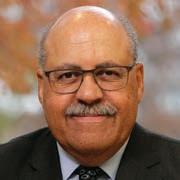
Graham Grady Partner
Taft Stettinius & Hollister
Scope of work: Grady represents real estate developers and business owners in securing government entitlements, including zoning amendments, special uses and public way approvals. He also assists clients with federal, state and local economic incentives.
Biggest professional win: Grady led a 30-attorney team in developing Illinois’ largest data center for a Big Tech client in 2019, completed in 2023. He continues to lead data center projects in the Midwest, providing comprehensive real estate and economic incentive legal services.
Other contributions: Grady is on the boards of World Business Chicago, the Chicago Symphony Orchestra and WTTW/WFMT. He co-founded the Chicago Emerging Minority Developer Initiative and is a member of the Commercial Club and the Economic Club.
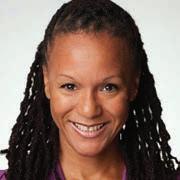
Cristal Gary President and CEO
Meridian Health Plan of Illinois
Scope of work: Gary leads a managed care organization providing health care coverage to nearly 1 million Illinois residents. She oversees a multibillion-dollar budget as well as strategy and growth for the Centene-owned company with over 1,500 employees.
Biggest professional win: Gary launched a health equity initiative at Meridian, making it the first managed care organization to offer financial incentives to hospitals for obtaining the Joint Commission’s Health Equity certification.
Other contributions: Gary serves on the board of CommunityHealth, the largest volunteerbased free clinic in the U.S. She’s a fellow of the American College of Healthcare Executives; was a diversity, equity and inclusion advisory council volunteer at Matter; and was on the Chicagoland Chamber of Commerce board.
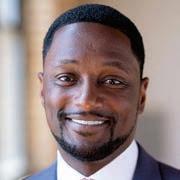
Cornelius Griggs President and CEO
GMA Construction Group
Scope of work: Griggs leads GMA Construction Group, a certified minority business enterprise that focuses on empowering underserved communities through construction projects that provide assets and job opportunities, driving sustainability and wealth accumulation.
Biggest professional win: Since founding GMA in 2009, Griggs has expanded the company to include projects across the U.S., with offices in Chicago, Dallas and New York. Ranked as the 77th-largest general contractor in the Midwest, GMA generated $60 million in revenue in 2023, specializing in affordable housing, education and health care.
Other contributions: Griggs serves on Mayor Brandon Johnson’s Cut the Tape Task Force, advocating for affordable housing. He founded Leaders for Tomorrow, a PAC supporting candidates focused on equity and economic development for marginalized communities.
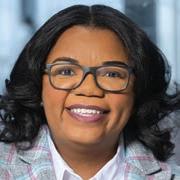
Co-founder and managing partner
Just Act Partners
Scope of work: Gathings cofounded Just Act Partners, a consultancy helping businesses expand their impact on Chicago’s South and West sides. She previously led operations and community outreach at Discover’s Chatham Customer Care Center, where she helped bring 1,000 jobs to the South Side.
Biggest professional win: At Discover, Gathings supported the hiring of 500-plus South Side residents and led efforts that earned accolades including World Business Chicago’s Corporate Leadership Award. Now, at Just Act Partners, she leverages her experience to address inequities in Chicago’s communities.
Other contributions: Gathings is on the boards of Friends of the Children Chicago and Skills for Chicagoland’s Future. She’s active in Leadership Greater Chicago and was a featured speaker for its 2023-2024 Leadership Series.
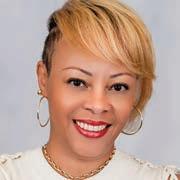
Toinette Gunn
President and CEO
Link Unlimited Scholars
Scope of work: Gunn leads Link Unlimited Scholars, connecting Black students with resources and opportunities to succeed through college. She oversees strategic direction, fundraising and operations, bringing over 20 years of nonprofit experience to the role.
Biggest professional win: In her first 18 months as CEO, Gunn awarded nearly $500,000 in scholarships to low-income students. Her efforts ensured 100% of the class of 2023 graduated high school and matriculated to college, earning over $16 million in scholarships.
Other contributions: Gunn is a fellow with the Chicago Urban League and University of Chicago Booth School of Business Impact Leadership Development Program, a founder of the McClellan Family Foundation and a member of the Delta Sigma Theta Sorority.
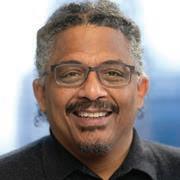
Director, Cannabis Research Institute
Discovery Partners Institute
Scope of work: Gaudino is the inaugural director of the Cannabis Research Institute at Discovery Partners Institute, joining in February. A molecular geneticist with expertise in plant phytochemistry and biotechnology, he leads efforts to provide data on cannabis for medical research and policy development. He oversees a $7 million budget and is building his team from the ground up.
Biggest professional win: Gaudino focuses on creating programs to help state governments develop science-based cannabis regulations, emphasizing social equity. He also researches cannabis as a medical treatment, including a compound effective against bone tumors.
Other contributions: Gaudino serves as chief scientific adviser for the Rylie’s Smile Foundation, supporting sick children and promoting less toxic treatments, inspired by his work with founder Rylie Maedler.
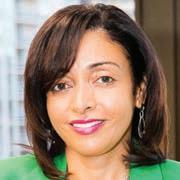
CEO
Leadership Greater Chicago
Scope of work: Hamilton is the first Black American CEO of Leadership Greater Chicago. She manages a network of 1,500 fellows from corporate, nonprofit, education and government sectors and oversees the Signature Fellows and the Daniel Burnham Fellowship programs.
Biggest professional win: As executive director of City Year Chicago, Hamilton secured an “essential provider” designation from Chicago Public Schools, enabling support for 31 partner schools during the pandemic and creating over 30 workforce development partnerships.
Other contributions: Hamilton previously served as president of the Chicago Park District and as a commissioner for the Public Building Commission of Chicago. She serves as vice chair for the Provident Foundation and on the boards of the Museum of Science & Industry and A Better Chicago.
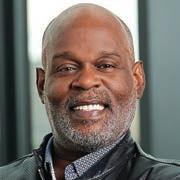
Interim artistic director
Joel Hall Dancers & Center
Scope of work: Gill oversees artistic direction and personnel at Joel Hall Dancers & Center, a 50-year-old dance company focused on the Black experience through urban jazz dance. He selects works for each season, cultivates artists and teaches at other notable Black dance companies in Chicago.
Biggest professional win: Gill revitalized the first company of Joel Hall Dancers, restoring its educational and artistic vitality. Despite overcoming a debilitating stroke, he has rebuilt the company’s core amid challenges like the pandemic and pay equity advocacy.
Other contributions: Gill also teaches at Deeply Rooted Dance Theatre and Hiplet Ballerinas.
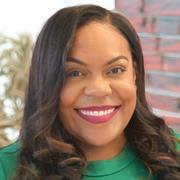
Christa Hamilton President and CEO UCAN
Scope of work: Hamilton is the first African American and first woman to lead UCAN, a 155-year-old services organization serving over 21,000 youth and families in Chicago. She increased the program budget at the $53 million nonprofit by nearly $6 million, expanding youth development, workforce development, violence prevention and mental health services.
Biggest professional win: She led expansions of the Back to Our Future initiative for high-risk youth, the SHERO program for women focusing on violence reduction and an Emergency Resource Center with the Illinois Department of Children & Family Services, contributing to significant violence reduction in North Lawndale.
Other contributions: Hamilton is on the boards of Instituto del Progreso Latino, South Side Healthy Communities Organization and ScaleLIT. She is a Leadership Greater Chicago fellow and an Economic Club member.
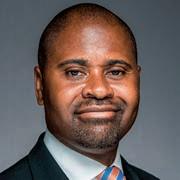
Kelwin Harris
Chief civic engagement officer
Cook County Assessor’s Office
Scope of work: Harris manages a $1 million budget and a team of eight. He oversees stakeholder engagement, coordinating over 500 workshops to increase transparency and access to the office’s resources.
Biggest professional win: Harris created the Civic Engagement Department to advance equity and educate Cook County communities on the property tax system. He launched the Racial Equity & Real Estate Conversations program, partnering with organizations like the Chicago Urban League and HUD to address disparities in assessment and appraisal.
Other contributions: Harris serves on the boards of the Mikva Challenge and the Historic Pullman Foundation, where he leverages his urban planning expertise to support the Pullman National Historical Park.
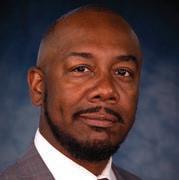
President
LiveWire Construction and BlackRock Construction
Scope of work: Harris oversees 150 employees at both LiveWire Construction and BlackRock Construction, with approximately $40 million in revenue. He sets the strategic vision for both firms, which focus on construction and renewable energy projects.
Biggest professional win: Harris successfully led LiveWire and BlackRock into the renewable energy market, breaking barriers for Black-owned businesses. Since 2022, his companies have participated in six solar projects, delivering approximately 20 megawatts of green energy to Illinois communities, ensuring operational growth and employment security.
Other contributions: Harris founded and was the inaugural president of Black Contractors Owners & Executives. He serves on the boards of the Chicago Building Congress and the Chicago Transit Authority’s Disadvantaged Business Enterprise board.
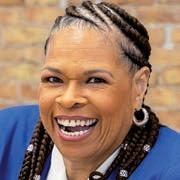
Executive director and president Strategy for Access Foundation NFP
Scope of work: Harris manages seven staff members and 25 volunteers. She has grown Strategy for Access Foundation NFP’s revenue to $800,000 annually and produced nearly 200 short documentaries on accessibility, environmental justice, literacy and mental health.
Biggest professional win: In 2022, she secured a grant from the U.S. Department of Commerce for accessible tourism in Chicago. She was named one of the Field Foundation of Illinois’ Leaders for a New Chicago in 2023, boosting the organization’s media presence.
Other contributions: Harris is an ambassador for Abilities Corps, promoting STEM careers for those with mental health challenges. She is active with the Depressive Bipolar Support Alliance and the Society of Women Engineers.
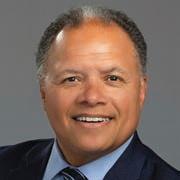
President and chief academic officer
Rush University
Scope of work: Higgins oversees Rush University and, as chief academic officer and senior vice president at Rush University System for Health, guides systemwide integration of academic and clinical programs. He focuses on advancing health care education and research and maintaining the mission of gender equity, diversity and academic growth.
Biggest professional win: An internationally renowned heart and lung transplant surgeon, Higgins is investing in academic spaces and research, exemplified by the Rush to Progress Pilot grant process, which allocates over $1 million to faculty research projects.
Other contributions: Higgins was president of the United Network for Organ Sharing and was on the boards of the Society of Thoracic Surgeons, the American College of Surgeons and the Coalition on Temporary Shelter.
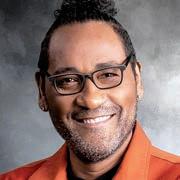
Darrious Hilmon
Executive director
Chicago Access Network Television
Scope of work: Hilmon oversees a five-station public access network, focusing on digital literacy, access and equity. Appointed in 2022, he works to advance the organization’s strategic plan and represent diverse stories from all 77 Chicago neighborhoods.
Biggest professional win: Under Hilmon’s leadership, the launch of CAN TV original shows and the CAN TV+ streaming app increased viewership, reaching over 34.4 million in 2023. Investments in studio technology have improved content quality, and the number of active content producers has grown annually. He also secured record contributed support in 2023.
Other contributions: Hilmon mentors and advises nonprofit professionals and fundraisers across Chicago, advocating for and connecting them to opportunities and resources to help them succeed.
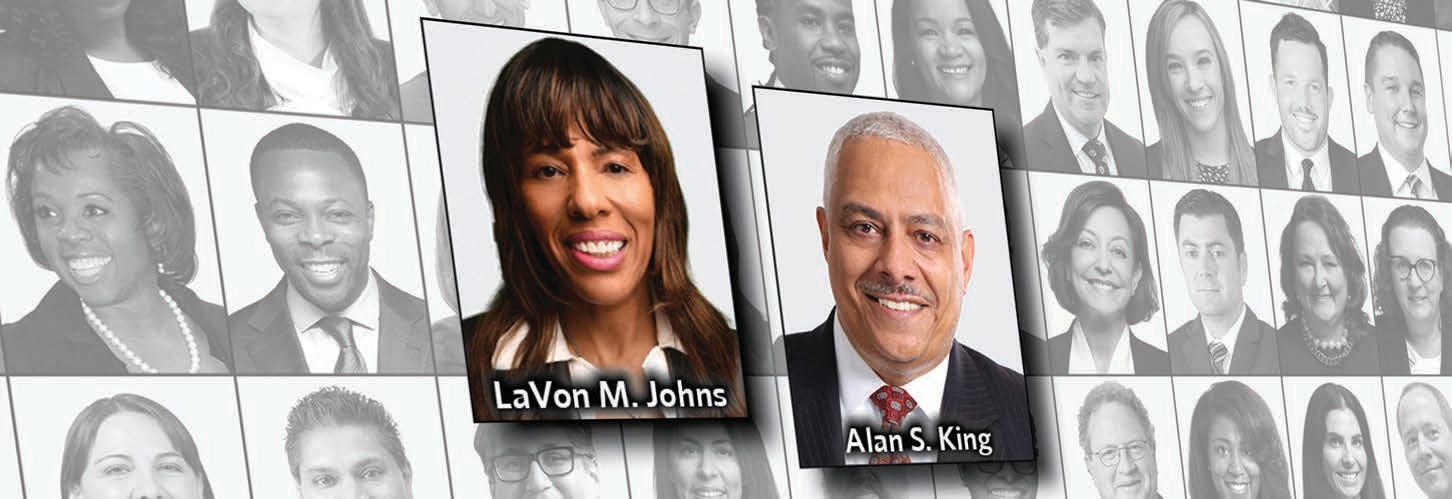
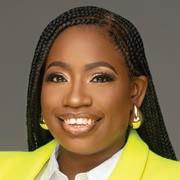
Nakisha Hobbs
CEO and founder
It Takes a Village
Scope of work: Hobbs founded It Takes a Village in 2004 and now oversees six early-learning centers and a private elementary school, serving over 1,000 students with $10 million in revenue. She manages a team of 13 who handle education, real estate and growth.
Biggest professional win: In 2023, Hobbs led the $12 million acquisition of the Hales Franciscan High School campus in Bronzeville, set to house a day care, community center, Village Leadership Academy and a new high school, fulfilling her vision for educational equity.
Other contributions: Hobbs serves on the boards of Congolese Community Development and Sinai Chicago and advises the Institute for Research on Race & Public Policy at UIC.
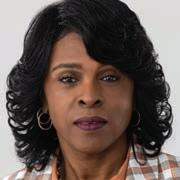
Debra Howard-Frye Senior vice president Thresholds
Scope of work: Howard-Frye oversees clinical operations at Thresholds, ensuring quality care for members. She leads clinical leadership meetings and develops programming, including an internship program that welcomed 50 interns in its first year and supports staff pursuing higher education.
Biggest professional win: In 2022, Howard-Frye helped Thresholds become designated as a Certified Community Behavioral Health Clinic and now oversees two of these clinics — allowing Thresholds to provide behavioral health and substance abuse care within facilities, regardless of insurance status or ability to pay, reaching new communities in McHenry County and on the North Side.
Other contributions: Since 2015, Howard-Frye has coordinated mobile dental vans through Illinois Masonic Hospital, providing dental care to Thresholds members
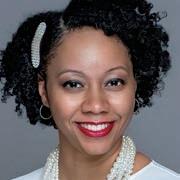
Shalisa Humphrey Principal EY
Scope of work: Humphrey is a risk consulting leader guiding life sciences and health clients through enterprise digital risks. She specializes in establishing controls to manage digital risks in system implementations and champions AI to transform audit operations for greater efficiency.
Biggest professional win: Humphrey led risk transformation initiatives for Internal audit and risk management teams at Fortune 100 companies. By implementing AI-driven auditing, she helped clients enhance risk coverage, optimize operations and move away from outdated audit practices. Her work redefines risk management, creating a new standard that prioritizes stakeholder engagement.
Other contributions: Humphrey manages EY’s Entrepreneur Access Network, supporting Black and Latino businesses. She mentors young entrepreneurs, helping them build business acumen and develop solutions for societal challenges.
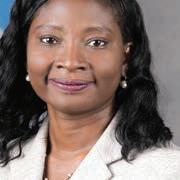
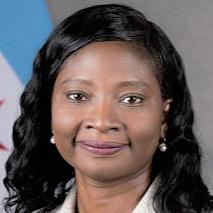
Commissioner
Scope of work: Leading the Public Health Department for the city of 2.7 million, Ige addresses issues including violence prevention, mental health care and environmental justice.
Biggest professional win: Ige led the city’s response to a measles outbreak in a shelter for new arrivals. Coordinating with city agencies, health care providers and community partners, she launched a vaccination campaign reaching 30,000 people, containing the spring outbreak to 64 cases with no deaths. A U.S. Centers for Disease Control & Prevention journal featured a report on the response.
Other contributions: Ige mentors public health students and resident doctors of color. She’s involved with the Big Cities Health Coalition, the National Association of County & City Health Officials and American Public Health Association.

Janice Jackson CEO
Hope Chicago
Scope of work: Jackson leads Hope Chicago, a nonprofit offering debt-free college scholarships and wraparound services to students and their parents. Since 2021, she has raised over $50 million, impacting 4,000 families and increasing college enrollment rates by over 30% at partner high schools.
Biggest professional win: In her previous role as CEO of Chicago Public Schools, Jackson implemented policies that increased high school graduation rates by 10% in six years. She collaborated with community partners to open the $85 million Englewood STEM High School.
Other contributions: Jackson is on the boards of the Carnegie Foundation for the Advancement of Teaching; the Institute of Politics at the University of Chicago; the Collaborative for Academic, Social & Emotional Learning; and the Chicago Urban League.
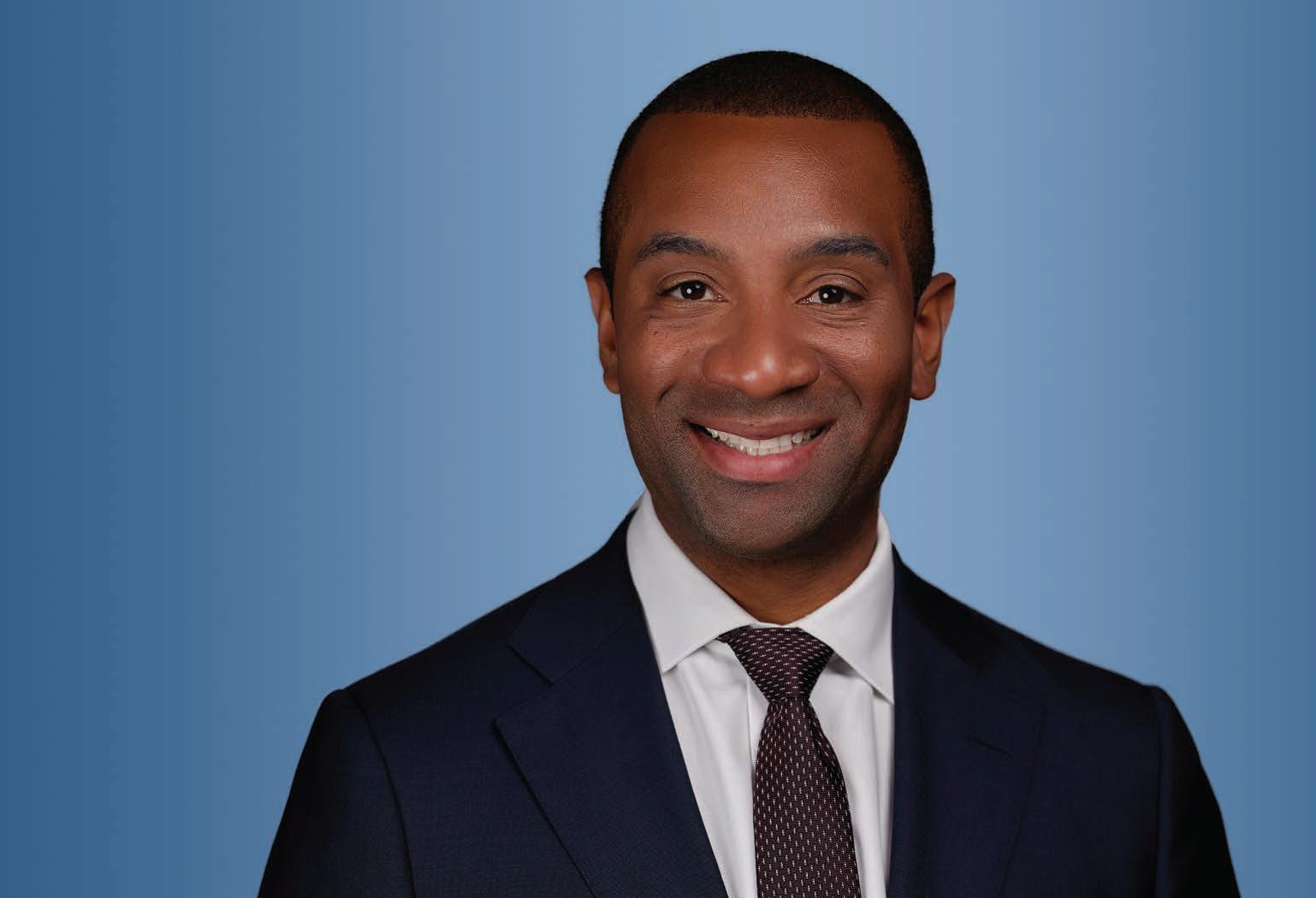
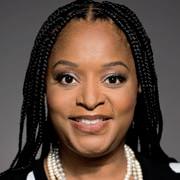
Ayesha Jaco
Executive director
West Side United
Scope of work: Under her leadership, West Side United — which aims to close the 14-year life-expectancy gap between Black and Brown residents on the West Side and residents in wealthier areas — has awarded $2.5 million to 178 small businesses and coordinated $10 million in impact investments.
Biggest professional win: Jaco played a key role in the Garfield Park Rite to Wellness Collaborative winning the Pritzker Traubert Foundation’s $10 million 2022 Chicago Prize for the development of the Sankofa Wellness Village, a $50 million project featuring a health center, arts center, business incubator and community grocer. Other contributions: She founded Move Me Soul Dance Company and is on the boards of Choose Chicago and the Garfield Park Rite to Wellness Collaborative.
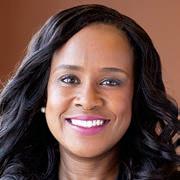
Jenner & Block
Scope of work: Jacobs-Perry defends clients in breach of contract and consumer class actions in technology, energy, food and beverage, and financial services. She has significant experience in Biometric Information Privacy Act litigation, securing dismissals in multiple jurisdictions.
Biggest professional win: JacobsPerry helped secure a favorable settlement in ACLU v. Clearview AI, allowing the company to preserve its business model while complying with laws. This set a precedent for future BIPA cases by clarifying the government contractor exemption.
Other contributions: JacobsPerry serves on the board of the Greater Chicago Legal Clinic and works with SocialWorks, Equip for Equality and the Transgender Legal Defense & Education Fund. She is also a member of the Black Women Lawyers Association of Greater Chicago.
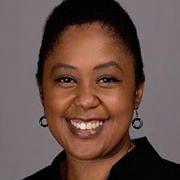
Gianne James
Senior vice president
First Insurance Funding
Scope of work: James oversees quality assurance, compliance and Bank Secrecy Act monitoring for Wintrust’s First Insurance Funding, which is approaching $16-plus billion in volume and 250,000 in units.
Biggest professional win: James was selected in 2021 to build the Governance & Assurance Department at First Insurance Funding, one of the largest premium finance companies in North America. She expanded the department’s oversight of business processes and co-led a project that defined compliance for a new customer base.
Other contributions: James is on the boards of Connections for Abused Women & Their Children and the Insurance Industry Charitable Fund, serves on Schaumburg Township’s DEI committee and mentors underrepresented professionals through Chicago Innovation’s The Ladder program.
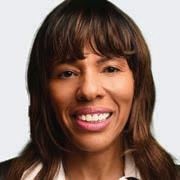
LaVon Johns Partner
Riley Safer Holmes & Cancila
Scope of work: Johns leads Riley Safer Holmes & Cancila’s business transactions practice, focusing on commercial real estate and finance matters, including public/private partnerships and airport concessions. She handles acquisitions, leasing and financing transactions in the U.S. and abroad.
Biggest professional win: In 2023, Johns’ team advised on over $1.2 billion in transactions. She expanded the firm’s capacity, recruiting 10 attorneys across four offices, enhancing services in industries like construction and financial services.
Other contributions: Johns is an adjunct professor at Northwestern’s Pritzker School of Law and a member of organizations including the National Bar Association and the American College of Mortgage Attorneys. She serves on the Greater Chicago Food Depository’s Commercial Real Estate Awards steering committee.
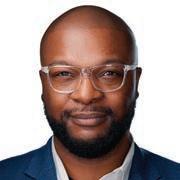
Vernon Johnson Managing director of inclusion and diversity CIBC
Scope of work: Johnson manages the global diversity strategy, U.S. Inclusion Scorecard and compliance with Affirmative Action Plan and Employer Information Report regulations for CIBC U.S. He develops key stakeholder relationships and drives cultural change within the organization.
Biggest professional win: Johnson increased inclusion components in employee engagement surveys, organized educational events to promote allyship, created intranet resources on inclusion and diversity topics and implemented eight training programs with a 93% participation rate.
Other contributions: He’s an adjunct professor at Southern New Hampshire University, serves on Southern Illinois University’s business school diversity advisory board and is a board member of the Dream Academy Foundation.

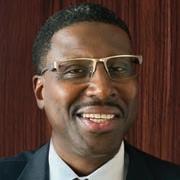
Jonathan Jones
Director of diversity
Mid-America Carpenters Regional Council
Scope of work: Jones oversees a 12-member steering committee and works to create opportunities for women, minorities and disadvantaged communities among the council’s 53,000 members across four states.
Biggest professional win: Jones led carpenter recruiting and training for the Obama Presidential Center project, collaborating with the Lakeside Alliance to meet hiring goals that included 50% of workers from Chicago and 35% specifically from South and West Side neighborhoods.
Other contributions: He’s president of the Labor Brothers United subcommittee of the Chicago & Cook County Building & Construction Trades; on the board of Hire360 Chicago, the Construction Industry Service Corp. and the Associated General Contractors DEI Board; and is a member of the Coalition of Black Trade Unionists.

Executive director, Midwest region
Morgan Stanley
Scope of work: Kamara is a regional director for Morgan Stanley Investment Management, covering Illinois, Missouri, Iowa and Kansas. He manages relationships with wirehouse and registered investment adviser clients and oversees sales of proprietary funds and alternatives.
Biggest professional win: In 2021, Kamara received Morgan Stanley’s Year Over Year Growth Award and a Diversity Leadership Award. He was appointed to Morgan Stanley Investment Management’s Diversity Champions Council.
Other contributions: Kamara serves as board president of the Greenwood Project, which creates financial services career pathways for Black and Latino college students. It trains scholars in career-focused skills and places them in competitive internships, with 100% graduating from college and over 70% working in financial services.
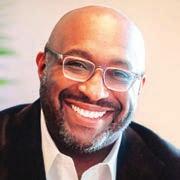
CEO
Southland Development Authority
Scope of work: Kemp guides capacity building, fundraising, program implementation and financial management. He collaborates with local governments and elected officials in southland communities to drive regional economic development and community initiatives.
Biggest professional win: Kemp played a pivotal role in creating the Southland Development Authority, working on Cook County Board President Toni Preckwinkle’s Council of Economic Advisors to establish the SDA. He became CEO in 2021 and expanded the authority’s impact, raising nearly $10 million to support regional initiatives.
Other contributions: Kemp is vice chair of the Center for Neighborhood Technology and is on the Cook County Council of Economic Advisors. He contributes to the IFF local advisory board and the Cook County Economic Development Advisory Committee’s smallbusiness subcommittee.
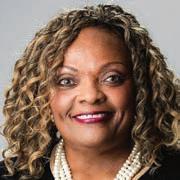
Head of diversity, inclusion, equity and belonging
Zurich North America
Scope of work: Kilo-Smith oversees diversity, inclusion, equity and belonging strategies and programming at Zurich North America, partnering with the executive team to ensure alignment across the company. She sets DIEB goals for over 100 Zurich leaders.
Biggest professional win: KiloSmith launched Zurich’s first enterprisewide inclusive leadership training, Inclusion@Zurich. The program goes beyond unconscious bias training to foster discussions on inclusive behaviors, aiming to strengthen Zurich’s culture of belonging and support. The training began with senior leaders, setting a precedent for companywide participation.
Other contributions: Kilo-Smith serves on the boards of the YWCA Metropolitan Chicago and the Center for Workplace Compliance, and is involved with Diversity MBA.
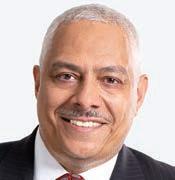
Riley Safer Holmes & Cancila
Scope of work: King leads Riley Safer’s national labor and employment practice, advising business clients, municipalities and minorityowned businesses on employment law. He’s a certified mediator and arbitrator on the American Arbitration Association’s National Panel of Employment Arbitrators. He’s helped resolve disputes in more than 100 arbitrations, mediations and settlement conferences.
Biggest professional win: A trial lawyer with decades of experience, King has never lost a trial. Recently, he obtained summary judgment for a Fortune 100 airline in a federal age discrimination suit and dismissal of disability discrimination charges against a major pharmaceutical company.
Other contributions: King chairs the Children First Fund board, is president of the Beyond the Groove Foundation and vice president of The Chosen Few.

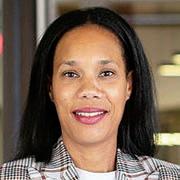
Farissa Knox
President Coact Agency
Scope of work: Knox leads the Coact Agency, a full-service marketing and advertising firm focusing on brand development, storytelling and experiential and digital strategy. Since joining in 2023, she’s driven Coact’s growth through global talent acquisition and business relationships, while optimizing department efficiencies and development areas.
Biggest professional win: Before Coact, Knox ran her own agency, RLM, for 15 years, generating $11 million in annual revenue with a 30-plus-member team. She considers her decision to close RLM in 2023, after navigating COVID and other challenges, her biggest and most difficult win. Other contributions: Knox is on the boards of the Joffrey Ballet, Cause Strategy Partners and the Mikva Challenge, where she chairs the Illinois advisory board.
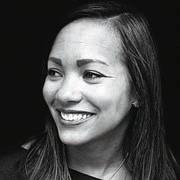
Amanda Kranz Managing director Accenture Song
Scope of work: Kranz drives transformation programs for global clients in retail, consumer products and hospitality, integrating experience, creative, data and cloud technologies. She previously led the Accenture Song design team, managing over 250 designers and strategists.
Biggest professional win: Kranz worked with a major retailer to launch a virtual selling and service experience that boosted online sales and reduced customer care calls. It evolved into a multiyear program that exceeded performance metrics, delivering revenue growth and improved workflows.
Other contributions: Kranz volunteers through Accenture and serves as executive sponsor for Hope Chicago, supporting debtfree college and career opportunities for Chicago Public Schools graduates and their parents. She is a member of Chief and volunteers with her local Girl Scouts.
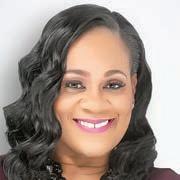
Majority leader
Illinois Senate
Scope of work: Lightford chairs the Senate Assignments and Early Childhood Education committees and is vice chair of the Education Appropriations and Education committees.
Biggest professional win: As joint chair of the Illinois Legislative Black Caucus from 2015-2021, Lightford led the creation of a four-pillar agenda to eliminate systemic racism in Illinois. The historic legislation addressed criminal justice reform, education, economic equity and health care access. She also established Juneteenth as a state holiday in 2022.
Other contributions: She is a member of the Delta Sigma Theta Sorority and The Chicago Network. She serves on the boards of Loretto Hospital, the ProvisoLeyden Council for Community Action, West Cook County Youth Club and the State Legislative Leaders Foundation.
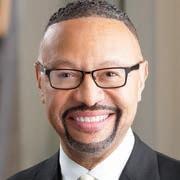
President
Nyhan Bambrick Kinzie & Lowry
Scope of work: Lowry is a founding member of the firm, overseeing policies, hiring, financial planning, attorney education and strategic planning. He emphasizes pro bono service and community engagement.
Biggest professional win: Lowry serves as Cook County’s 3rd District commissioner and was the first African American to sit on the Illinois Capital Development Board. He’s developed strategies to uplift under-resourced communities and encourages firmwide volunteer efforts, including the 30 Acts of Service for 30 Years initiative.
Other contributions: Lowry co-founded the It’s Time Organization; chairs Lake Forest College’s board of trustees; and is involved with the American, Chicago, Cook County and Illinois state bar associations. He was on Mayor Brandon Johnson’s economic vitality and equity subcommittee transition team.
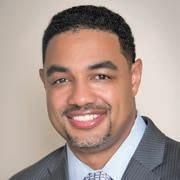
Jamal Malone CEO
Ada S. McKinley Community Services
Scope of work: Malone leads one of the largest social enterprises in the Midwest. With nearly 600 employees and a $50 million budget, McKinley serves over 10,000 people annually across 70-plus sites, focusing on workforce development, child welfare, education and community-based behavioral health.
Biggest professional win: To date this year, Malone secured $20 million in scholarships for CPS high school graduates. The program has supported over 80,000 students attending over 400 universities, advancing educational access and generational wealth for African American and Latino families.
Other contributions: He oversees Classroom to the Boardroom, organized South Side food pantries and oversaw the opening of McKinley’s urban farm and garden, providing produce to local restauants and community members.


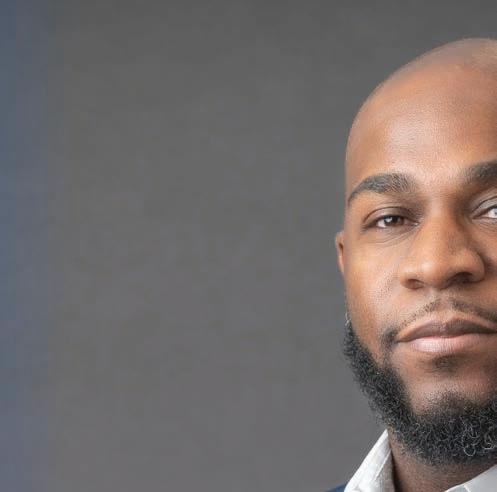

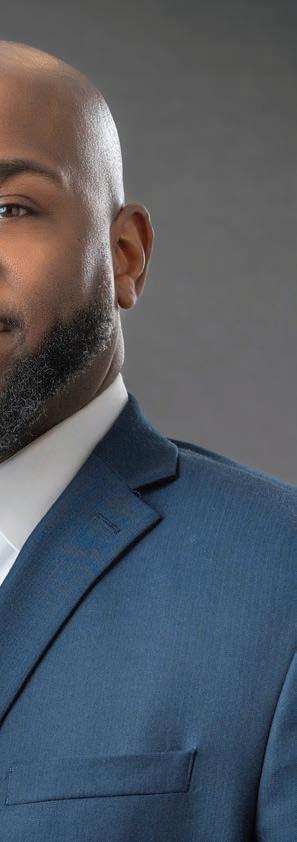

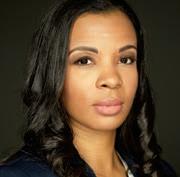
Yani Mason CEO Girls Inc. of Chicago
Scope of work: Mason drives Girls Inc.’s mission to inspire girls to be strong, smart and bold. She oversees operations, fundraising and programming. In two years, she expanded the budget to $2.7 million, grew the team to 21 employees and increased board membership to 23.
Biggest professional win: Mason created a three-year strategic plan, boosting revenue 58% to $2.7 million and increasing the number of African American and Latina girls served 25%, to 1,000. Her efforts, including new employee benefits, boosted retention rates to 86% in 2023.
Other contributions: Mason has raised nearly $10 million for nonprofits serving disinvested South Side communities. She’s president of the Chicago Area Fisk University Alumni Association and serves on multiple advisory boards and councils.
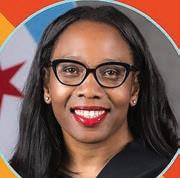
Kenya K. Merritt
Deputy mayor of business, economic and neighborhood development
Office of the Mayor
Scope of work: Merritt oversees eight departments and affiliates, leading initiatives that drive equitable economic growth, innovation and investment across Chicago. She manages a team of seven and spearheaded the city’s $1.25 billion housing and economic development bond plan, a sustainable funding source for citywide economic development.
Biggest professional win: Merritt partnered with state and local entities to develop Quantum Park in South Chicago, with PsiQuatum as the anchor tenant. She also leads the Cut the Tape initiative that aims to streamline development processes citywide. Previously, she managed community investments at the Pritzker Traubert Foundation.
Other contributions: A 2022 Leadership Greater Chicago fellow, Merritt also participates in the 2024 Daniel Burnham Fellowship Program.
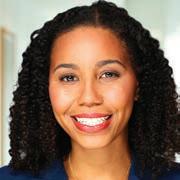
Jordan Matthews Partner
Jones Day
Scope of work: Matthews specializes in civil and criminal litigation, as well as internal and government investigations involving fraud, corruption and harassment.
Biggest professional win: In the wake of George Floyd’s murder, Jones Day created its Constitutional Policing & Civil Justice Reform Initiative. As part of the initiative, Matthews is co-lead counsel for the city of Minneapolis in connection with the federal and state investigations into the Minneapolis Police Department. She has played an integral role in helping reform the police department to ensure fair policing, while also helping the city respond to government inquiries.
Other contributions: Matthews co-chairs the Chicago chapter of the Women’s White Collar Defense Association and serves on the board of Legal Action Chicago.
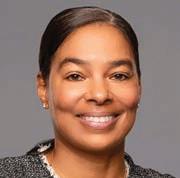
Dawn Milhouse Co-founder and executive director
Milhouse Charities
Scope of work: Milhouse leads Milhouse Charities with a mission to empower minority youth and women in STEM. She has overseen $1 million in investments in education programs and facilitated over 12,000 volunteer hours. She partners with groups like Project Syncere and the Aerostar Avion Institute to address STEM inequity.
Biggest professional win: Milhouse’s global impact includes providing shoes to children in Ghana, relief in Cuba and commissioning water wells in Nigeria. She launched iCan Girls in Engineering Georgia in partnership with Georgia Power and Atlanta Gas Light to introduce girls to STEM careers.
Other contributions: Milhouse serves on the boards of the Polished Pebbles Girls Mentoring Program, NecTr Community Athletics and Girls 4 Science.
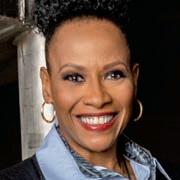
Owner and president
Cedar Concepts
Scope of work: McGill-Boasmond leads the only African Americanand woman-owned chemical manufacturing company in the U.S., located in Back of the Yards. As president since 2005, she manages nearly 50 employees with a $50 million budget. Cedar Concepts ships over 60 million pounds of product annually to clients like Procter & Gamble, Colgate-Palmolive and Boeing.
Biggest professional win: She completed construction of a 60,000-square-foot LEED-certified plant, the first new chemical manufacturing facility in Chicago in over 50 years. In 2020, she became the first African American and second female board chair of the Illinois Manufacturers’ Association.
Other contributions: McGillBoasmond has served on the boards of the Chicago Sinfonietta and Women’s Business Development Council and supports Girls 4 Science.
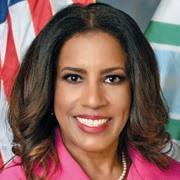
Commissioner
Cook County
Scope of work: Miller represents the south suburbs as 6th District commissioner on the Cook County Board, focusing on health care, environmental justice, public safety and economic development. She chairs the Asset Management, Contract Compliance and Veterans committees and is vice chair of the Workforce, Housing & Community Development Committee.
Biggest professional win: Miller released a report on cardiovascular health disparities, sponsored legislation on health care inequities and maternal morbidity and led COVID-19 town halls. She co-sponsored tax incentives that created and retained over 600 jobs and supported funds for housing, legal aid and food security.
Other contributions: Miller is a board member of Christian Community Health Center, a League of Women Voters member and was board chair of Planned Parenthood of Illinois.
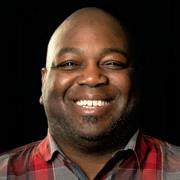
Chief human resources officer
Goodman Theatre
Scope of work: McNeal is a member of the Goodman’s senior leadership team and oversees all human resources functions, including employee relations, benefits, compensation, and DEI initiatives across the administrative, production and artistic staff.
Biggest professional win: In just two and a half years, McNeal has implemented equitable structures during a period of significant industry change. He benchmarked the theater’s leave policies, introduced a short-term disability policy and established a fair compensation strategy. He also revamped the Goodman’s inclusion, diversity, equity, antiracism and access framework.
Other contributions: McNeal is a member of the Society of Human Resources Management and serves on the board of Honey Pot Performance, a collaborative focused on Afro-feminist and Black diasporic narratives.
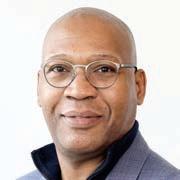
Mitchell Partner
Moody Nolan
Scope of work: Mitchell leads Moody Nolan’s Chicago studio, growing it from a one-person to a 23-person team. He oversees design, project management and contract administration for a portfolio worth $2.1 billion, including projects like Malcolm X College, Wintrust Arena and Englewood STEM High School.
Biggest professional win: Mitchell became an American Institute of Architects fellow in 2021, a top honor for 3% of members. He leads the design of Home Court at the Obama Presidential Center, guiding it from programming through its expected completion in 2025.
Other contributions: Mitchell mentors youth through My Block My Hood My City and the National Organization for Minority Architects’ Project Pipeline. He was on Chicago’s Committee on Design and helped modernize the city’s building code.
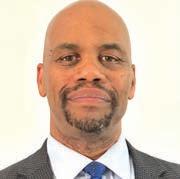
Vice president of finance La Rabida Children’s Hospital Scope of work: McWhorter manages La Rabida’s $79 million budget, overseeing grant preparation, compliance, external audits and financial reporting. He directs a 31-person team and handles inventory optimization, supply chain and contract management.
Biggest professional win: When La Rabida’s chief financial officer retired, McWhorter stepped up as interim finance leader, earning a promotion to executive director and then vice president of finance. He led the finance team through a nine-month Workday implementation, a process typically taking one to two years.
Other contributions: McWhorter is a past president of the Chicago chapter of the National Association of Black Accountants, treasurer of Theta Mu Lambda Charitable Foundation and a member of the Illinois CPA Society.
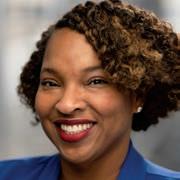
Kay Monelle Director, K-12 programs
Discovery Partners Institute
Scope of work: Monelle oversees K-12 tech education programs, managing a six-person team that runs initiatives like Digital Scholars, Discover Computing and Summer Intensives. She collaborates with Chicago Public Schools, tech companies and local colleges to provide courses and workshops to nearly 600 students annually.
Biggest professional win: Monelle founded Digital Scholars in 2020, pivoting to virtual programming during the pandemic. She led recruitment, curriculum development and instructor hiring. Digital Scholars now boasts 130 placements, a 280% increase from its launch, with expanded courses and initiatives to boost Black and Latino representation.
Other contributions: Monelle volunteers with the University of Illinois Chicago’s Chance Program and advises UIC’s undergraduate chapter of the Sigma Gamma Rho Sorority.
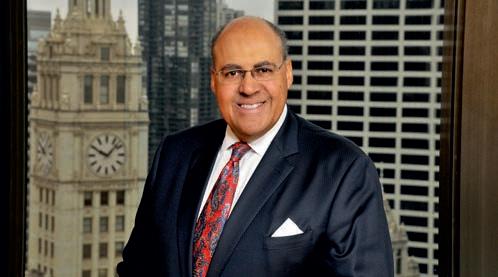

Pierre Monice
President MacNeal Hospital
Scope of work: Monice leads a 374-bed facility with over 2,000 employees and 550 medical staff across 50 specialties. Since 2021, he has improved staff retention and financial health while overseeing medical, surgical and psychiatric services, including a 68-bed behavioral health program.
Biggest professional win:
Monice transformed MacNeal’s culture into a welcoming, peoplecentric environment, emphasizing servant leadership, particularly in nursing. His community engagement and physician recruitment efforts have improved health care access in Berwyn, a diverse area with significant Hispanic and Black populations, enhancing MacNeal’s reputation as a model of inclusive care.
Other contributions: He is a Berwyn Development Corp. member and an American College of Healthcare Executives fellow.
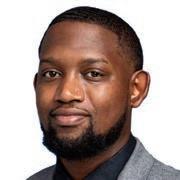
Director of surveillance
Hollywood Casino Aurora
Scope of work: Morgan is responponsible for integrating new surveillance technologies and collaborates closely with senior leadership, corporate representatives and local authorities. He is a key figure in the casino’s relocation to a new land-based facility.
Biggest professional win: Morgan’s leadership in surveillance caught the attention of the casino operator, Penn Entertainment, leading to his role overseeing technology for surveillance across Penn’s 43 properties. He is instrumental in designing the new $360 million Hollywood Aurora, which will feature extensive gambling, hospitality and entertainment amenities, replacing the current riverboat casino.
Other contributions: He serves on the Hollywood Casino Aurora diversity, equity, inclusion and belonging committee and supports community partnerships with Hesed House and the Northern Illinois Food Bank.

Americas consulting innovation leader EY
Scope of work: Nichols leads EY’s innovation efforts across the Americas, working with global clients in the chemicals and aerospace and defense sectors. As the executive sponsor of EY Wavespace & Studio in Chicago, he oversees a 40,000-square-foot innovation center, driving digital transformations and managing C-suite relationships.
Biggest professional win: Nichols founded and leads EY Americas’ technology and digital transformation practice. He works in data analytics, AI and cybersecurity and with tech involving Microsoft, SAP and ServiceNow to help clients drive transformations.
Other contributions: Nichols is on the boards of Chicago Urban League and Lincoln Park Zoo. He serves on Northwestern University’s McCormick Advisory Council and is an advocate for equality and inclusion through The Executive Leadership Council.
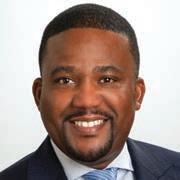
Dia Nichols
President Advocate Health Care
Scope of work: Nichols oversees 11 hospitals, 300 sites of care, over 37,000 employees and a multibillion-dollar budget. He is responsible for strategic growth and development in Illinois for Advocate Health, the nation’s third-largest nonprofit health system.
Biggest professional win: Nichols is leading a major investment on the South Side, a community facing the nation’s largest life-expectancy gap. He’s guiding a community input process, aiming to create transformative, long-lasting positive impacts on the community’s wellness and access to care.
Other contributions: Nichols is a fellow of the American College of Healthcare Executives; a member of the National Association of Health Services Executives; and serves on boards for the American Cancer Society, World Business Chicago and the Economic Club.
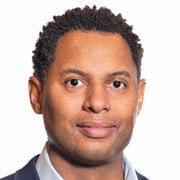
Otto Nichols
Executive vice president and shareholder
Clayco
Scope of work: Nichols has led over $2.5 billion in construction projects across diverse markets. His leadership emphasizes empowerment, collaboration, and personal and professional development, driving growth and success.
Biggest professional win: Nichols played a key role in expanding Clayco’s hyperscale data center and aviation businesses, which now contribute nearly $4.5 billion to the company’s revenue. His strategic vision and leadership were pivotal in securing multiple construction projects at O’Hare, competing against larger industry players.
Other contributions: Nichols cofounded Clayco’s Juneteenth Fund, raising $795,000 for nonprofits supporting equality and justice for the African American community. He is an executive sponsor of Clayco’s Black resource group and serves on the board of the Business Leadership Council.

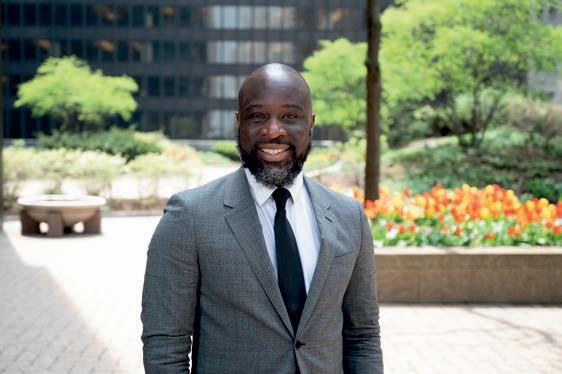
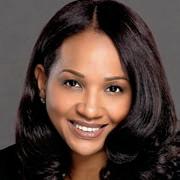
Enterprise vice president
Advocate Health
Scope of work: Oglesby-Odom leads community engagement efforts across Advocate Health’s 67 hospitals and 1,200 outpatient facilities, fostering executive engagement and building strategic relationships with corporations.
Biggest professional win: As chief nursing officer at Advocate Trinity Hospital, Oglesby-Odom launched the LPNs Are Nurses Too program during the COVID pandemic, addressing a critical shortage by recruiting licensed practical nurses back into acute care, improving nursing retention rates by 85%.
Other contributions: OglesbyOdom mentors 29 emerging leaders and serves on the boards of the March of Dimes, the National Association of Health Service Executives Chicago chapter and the Illinois Conservatory of the Arts. She’s a member of Alpha Kappa Alpha Sorority and the American College of Healthcare Executives.
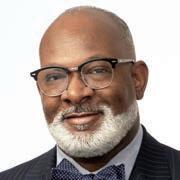
Gerald Pauling Partner
Seyfarth Shaw
Scope of work: Pauling is a litigator who represents employers in state and federal employment matters including discrimination litigation, class actions and harassment claims. He also advises clients on employment and diversity issues and is the first Black member of Seyfarth’s executive committee.
Biggest professional win: Pauling led a team to overturn an eight-figure jury verdict against a client, ultimately securing a complete dismissal of all claims. Other contributions: Pauling serves as president of the Homewood Flossmoor High School Board of Education and was president of the board of Ignite. He has been involved with the American Bar Foundation’s legal diversity steering committee and the National Employment Law Council and is a fellow of the College of Labor & Employment Lawyers.
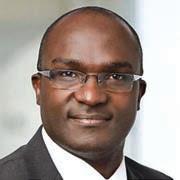
Sam Pambah Principal KPMG
Scope of work: Pambah is the markets leader for KPMG’s economic and valuation services practice, overseeing five of 10 business units and 1,000 professionals. He’s also global lead partner for a Fortune 100 client in the Chicago area and sits on KPMG’s board nominating committee.
Biggest professional win: Pambah has driven significant growth in the practice, focusing on talent development, expanding client portfolios and evolving service delivery models, leading to a four-year compound annual growth rate of about 10%.
Other contributions: Pambah is an executive board member of Chicago United, where he chairs the finance committee. He’s served on the dean’s advisory board for Brandeis University’s International School and is accredited in business valuation by the American Institute of Certified Public Accountants.
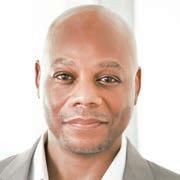
Bryan Perry
Vice president and general counsel
Northern Illinois University
Scope of work: Perry is chief legal officer at NIU, a public university with over 15,000 students, a $495 million budget and 3,300 employees.
Biggest professional win: Perry advised on the refinance of $128 million in tax-exempt bonds and the purchase of two residence halls. This action improved NIU’s financial standing, reallocating funds from debt service to student services, aiding in maintaining affordable tuition for NIU’s predominantly firstgeneration and low-income students.
Other contributions: Perry chaired the Employment & Labor Law Network of the Association of Corporate Counsel and served on boards including the Southside Community Art Center and NIU College of Law board of visitors. He is active in the National Association of College & University Attorneys.
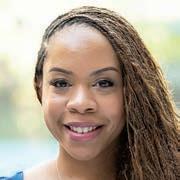
CEO and founder
The Tech Unicorn
Scope of work: Parham-Cullers leads a social enterprise focused on empowering underrepresented communities of color in tech, developing programs including gamified learning, hands-on workshops and mentoring, reaching 2,500 students annually and broadening access to STEM education.
Biggest professional win: The Tech Unicorn is on track to impact over 25,000 students and professionals nationwide by 2025. Among Parham-Cullers’ initiatives: a cybersecurity workshop for 30 Chicago students.
Other contributions: The Tech Unicorn collaborates with over 50 organizations, including Girls Inc. and the Society of Women Engineers. The company has received 20-plus awards from Women Tech Founders, Chicago Innovation Awards and more. Parham-Cullers was recognized by Forbes and was a Women In Tech Global Movement nominee in 2023.
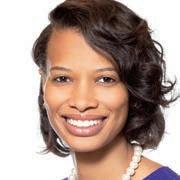
Mary Person
Senior vice president Clayco
Scope of work: Person leads business development for public- and private-sector opportunities. She enhances Clayco’s real estate development, design, construction and planning approach with a focus on DEI, aiming to create career opportunities for underrepresented groups in the construction industry.
Biggest professional win: Person transitioned from board member to chair of Revolution Workshop, which partners with businesses to provide construction workforce development for unemployed and underemployed individuals. Under her leadership, the workshop has trained over 200 people.
Other contributions: She serves on the boards of the Chicagoland Chamber of Commerce, SOS Children’s Villages Illinois and Loyola Alumni. She also sits on the Chicago Transit Authority’s workforce committee, advocating for youth and minority-owned business opportunities.

Executive vice president, head of global treasury management
Banc of California
Scope of work: Parker leads a team of 23 bankers delivering transaction banking solutions, including payments and cash management, to North American and European corporate and financial sponsors. His division generates $50 million in annual income with $30 billion in deposits.
Biggest professional win: Parker has grown income at a 22% compound annual growth rate and improved margins from 65% to 72%. He was instrumental in the merger of Banc of California and Pacific Western Bank, making key hires and identifying cost synergies nearing seven figures.
Other contributions: Parker donates to Midwest charities including The Nora Project, Feed My Starving Children and the Ray Graham Association. He is a member of the Association for Financial Professionals.
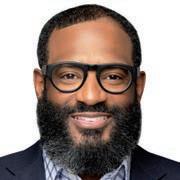
J. Todd Phillips Founder and CEO
Parson Partners
Scope of work: Phillips leads the consulting firm he founded in 2013, advising C-suite executives and directors on organizational transformation in industries including health care, education and government. His prior roles included serving as a senior executive at Blue Cross Blue Shield of Illinois, with overall accountability for the $14 billion local markets division. Prior to that, Phillips led multimilliondollar divisions at Humana and Cigna.
Biggest professional win: Phillips values the relationships and results he builds with accomplished leaders and is honored by his roles on various boards.
Other contributions: Phillips chairs the Northeastern Illinois University board of trustees and the board of Cara Collective, and serves on the Lurie Children’s Hospital Foundation board.
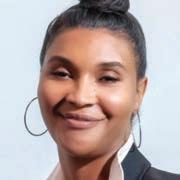
Channyn Parker CEO
Brave Space Alliance
Scope of work: As leader of the Black-led, trans-led LGBTQ+ center on the South Side, Parker manages a 15-person team and oversees a $2.5 million budget, focusing on stability, transparency and alignment with the organization’s mission and values.
Biggest professional win: Since becoming CEO in May 2023, Parker has focused on rebuilding trust and restoring credibility following a period of prior financial mismanagement, retaining key funders and stabilizing operations. She maintained services including the food pantry, transgender support groups and gender-affirming care while identifying areas for growth. Other contributions: Parker is on the boards of Planned Parenthood of Illinois, the Illinois Commission on LGBTQ Aging, Equality Illinois and the Illinois Commission on Poverty Elimination & Economic Security.
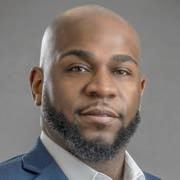
Clayton Pryor Chief mission officer
Goodwill Greater Milwaukee & Chicago
Scope of work: Pryor leads strategy and growth across 23 counties, overseeing over 300 employees and a nearly $33 million budget. His responsibilities include fund development, youth engagement, community relations and workforce development, serving over 50,000 people annually.
Biggest professional win: Pryor developed Goodwill’s multiyear mission strategy, securing nearly $1.9 million to support new workforce programs. This includes initiatives that helped 85 teens and young adults find Chicago-area employment in the first year. He also launched the Employee Empowerment Network, enrolling 248 employees to reduce barriers to success. Other contributions: Pryor is on the board of Springboard to Success, mentors youth through the Ideal Education Foundation and volunteers with Big Brothers Big Sisters-Heart of Illinois.
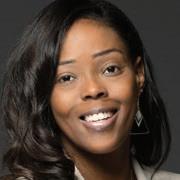
Tameca Reed
Senior managing director of client portfolio management
1834, a division of Old National Bank
Scope of work: Reed leads a team of nine portfolio managers with $3.1 billion in assets under management, focusing on helping clients, from business owners to retirees, build and transfer generational wealth through various investment strategies.
Biggest professional win: Reed led a project to stabilize a key market by identifying inefficiencies and implementing a strategic plan for client retention. By restructuring internal teams, improving communication and optimizing resources, she was able to retain business with a billion dollars of assets under management and position the firm for growth.
Other contributions: Reed is board vice chair of the Corry Williams Art Foundation and on the YWCA Metropolitan Chicago board’s finance committee.
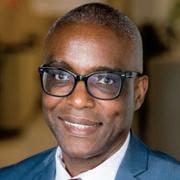
Brian Registe Chief financial officer
QuesTek Innovations
Scope of work: Registe oversees finance, accounting, human resources, IT, legal and facilities, guiding QuesTek’s shift from a service-based firm to incorporating software as a revenue stream. He manages business operations and drives the company’s growth strategy.
Biggest professional win: Registe successfully launched QuesTek’s first SaaS product, ICMD, leveraging proprietary physical models and AI technology. He was instrumental in building the team and strategy, helping secure clients like NASA, Audi and Daido Steel.
Other contributions: Registe leads QuesTek’s community engagement initiatives, including career programs for students from local schools. A U.S. Army veteran, he has served on boards including Milhouse Charities and Illinois CPA Society, and was CFO of the Heartland Alliance, a major Midwest nonprofit.
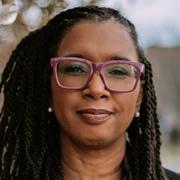
Nicole Robinson CEO
YWCA Metropolitan Chicago
Scope of work: Robinson manages the Y’s $44 million budget with operations across 12 sites in Cook, DuPage and Lake counties.
Biggest professional win: She launched an initiative that added $5 million in new revenue, including a $1 million grant from Baxter International. She secured partnerships with the city of Chicago, NASCAR, the Democratic National Committee and Bloch Quantum Tech Hub, and co-created and co-chairs Chicago’s first-ever Food Equity Council, which secured $10 million in American Rescue Plan Act funding.
Other contributions: Robinson chairs the Chicago Committee on Urban Opportunity and the Chicago Mayor’s Advisory Council on Women. She founded the South Side Giving Circle and is a member of The Chicago Network and the Economic Club.
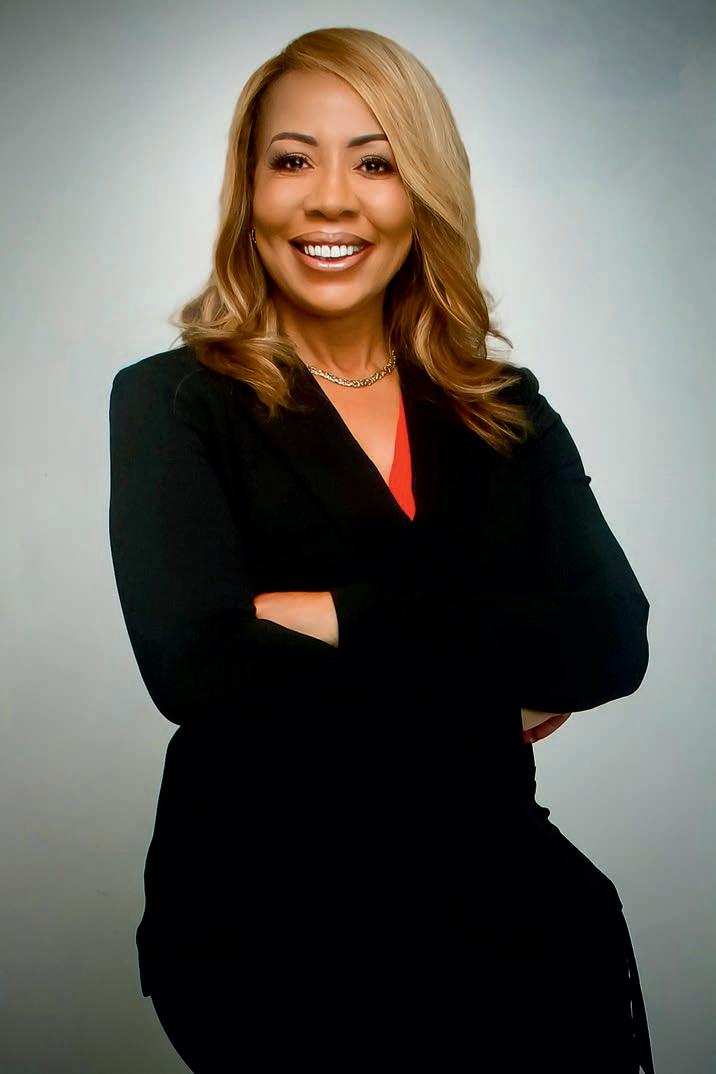

Joli Robinson CEO
Center on Halsted
Scope of work: Robinson leads Center on Halsted, the Midwest’s largest LGBTQ community center, providing programs like mental health services, HIV testing, youth support and vocational training. She fosters a safe, inclusive environment for the LGBTQ community in Chicago.
Biggest professional win: Under Robinson’s leadership, Center on Halsted has strengthened partnerships with grassroots organizations, enhancing program reach. Previously, at Housing Forward, she secured over $23 million in federal funding for the homeless response system, significantly increasing resources through strategic planning and partnerships.
Other contributions: She dedicated her career to civic engagement and community service, including board roles with ACLU of Texas and Dallas CASA. In Chicago, she builds relationships with local LGBTQ organizations to further community support and collaboration.
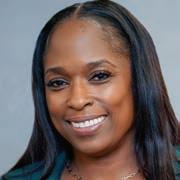
Cassaundra Rouse Executive director
Illinois Tollway
Scope of work: Rouse oversees the 294-mile system and the $15 billion Move Illinois capital program, leading a team of 1,400 employees to ensure safe and efficient travel for 1.6 million daily drivers.
Biggest professional win: She led the $719 million Tri-State Tollway/ I-57 Interchange project, completed two years early and under budget. The project improved regional mobility, reduced congestion and spurred economic growth.
Other contributions: Rouse serves on the International Bridge, Tunnel & Turnpike Association board, addressing global infrastructure challenges. She is also a board member of Tuskegee Next, promoting aviation careers for youth, and actively mentors future leaders through Jack & Jill of America. Rouse supports women in transportation as part of the WTS greater Chicago chapter advisory board.
TCA's Board of Directors congratulates our President & CEO, Veronica Clarke, on being named to Crain's 2024 Notable Black Leaders.
Keep up the great work Veronica!

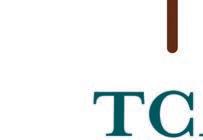


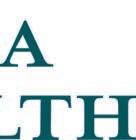
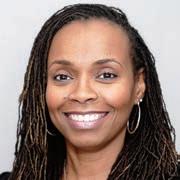
Kimberley Rudd
President Rudd Resources
Scope of work: With her communications and public affairs agency, Rudd provides strategic counsel involving audiences that historically have had little to no say in city planning, transit, infrastructure and health care decisions.
Biggest professional win: This year, Rudd Resources was named an #InnerCity100 company by the Initiative for a Competitive Inner City for the fourth year in a row, ranking 17th. Rudd and her husband received the 2024 Patricia A. Tobin Media Professional Award from the National Association of Black Journalists.
Other contributions: Rudd is on the boards of Woods Fund Chicago and Publicity Club of Chicago and is an adviser for the IFF local marketing advisory council and the Southland Development Authority advisory council.

Charles Smith
Vice
chair
World Business Chicago
Scope of work: Smith manages initiatives with a $10 million budget, including leading a CEO search, expanding the executive committee and leading international business delegations focused on sustainable economic development.
Biggest professional win: Smith led the 2022 acquisition of his company, CS Insurance Strategies, by Marsh & McLennan, its first minority-owned firm acquisition. He also spearheaded InvestBlue, a new Democratic Party of Illinois fundraising program. At World Business Chicago and as chairman of the Business Leadership Council, he led economic and inclusivity initiatives.
Other contributions: Smith chairs the BLC’s executive committee, is on the boards of the Shedd Aquarium and the Museum of Science & Industry, and is a member of the Executives’ Club and the Economic Club.
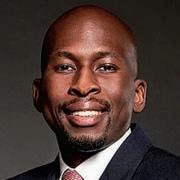
Co-founder and president V-Square Quantitative Management
Scope of work: Sarr’s investment firm launched in 2020 and now manages over $1 billion in assets for institutional investors, with a focus on financial innovation and thematic portfolios.
Biggest professional win: Sarr was named a Top Business Strategy Voice by LinkedIn and honored as a Knight of the Order of Arts & Letters by the French government.
Other contributions: Sarr co-founded the Sarr Prize, presented annually to current Beaux-Arts de Paris students, and serves on the boards of the Art Institute of Chicago, the Andy Warhol Foundation and the Nature Conservancy Illinois chapter. He is a fellow of Leadership Greater Chicago and a member of the Economic Club of Chicago.
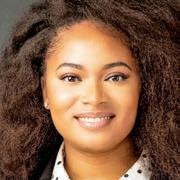
Whittney Smith Deputy director and general counsel
Lawndale Christian Development Corp.
Scope of work: Smith helps lead strategy and operations, helping to grow the organization from nine to 22 staff and doubling the budget to $2 million annually. She had played a role in housing redevelopment, community engagement and economic initiatives.
Biggest professional win: Smith spearheaded the launch of a cooperative business incubator that has 20 community members involved across two cohorts. She also secured investments for over $200 million in real estate development, enhancing LCDC’s capacity to redevelop affordable housing and strengthen North Lawndale.
Other contributions: Smith provides pro bono legal aid and manages a family scholarship fund. She serves on the advisory council for the Chicago Wealth Building Initiative.
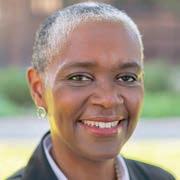
Tracey Scott CEO
Chicago Housing Authority
Scope of work: Scott leads the nation’s third-largest public housing authority, serving 135,000 people in 65,000 households across Chicago’s 77 community areas. She manages a $1.2 billion budget and 550 employees.
Biggest professional win: Since Scott assumed her role in March 2020, CHA has delivered over 3,000 new mixed-income apartments, with another 1,100 under construction, totaling $1.9 billion in investment. She also expanded CHA’s support for high-risk populations, administering 4,750 rental assistance vouchers.
Other contributions: Scott is president of the Moving to Work Collaborative and serves on the Council of Large Public Housing Authorities board, influencing national housing policy. She also sits on the board of the Corporation for Supportive Housing, which integrates affordable housing with supportive services.
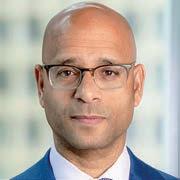
Andrew Stroth
Founder
Truth Hope & Justice Initiative
Scope of work: Stroth, a civil rights lawyer, founded the initiative to focus on highlighting the impact of police violence on Black and Brown communities, supporting mothers of victims and using data to address the root causes of police violence.
Biggest professional win: In partnership with the Law Firm Antiracism Alliance, Thompson Reuters, Ropes & Gray and Aon, the initiative published the “Wrongful Conviction Database Report” in 2023. Accompanied by a database of civil rights lawsuits against the city of Chicago and police since 2000, the report documents the costs of wrongful convictions and aims to improve litigation outcomes and criminal justice reform.
Other contributions: Stroth is an adjunct professor at Northwestern University Pritzker School of Law and serves on its board.
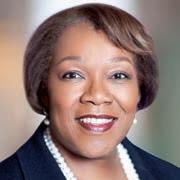
President
Chicago State University
Scope of work: Since 2018 Scott has led Chicago State University, Illinois’ only four-year predominantly Black institution, or PBI. She oversees nearly 2,500 students and 700 faculty and staff, managing an annual budget of $91.8 million. She also chairs the Illinois public university presidents and chancellors group, representing 12 state universities.
Biggest professional win: Scott founded the National Coalition for Predominantly Black Institutions, which has grown into partnerships with 21 colleges across 13 states. Her efforts led to the formation of the first Congressional PBI Caucus.
Other contributions: Scott serves on the boards of Commonwealth Edison, Intersect Illinois, Lurie Children’s Hospital, the Economic Club of Chicago, The Chicago Network and the Institute for College Access & Success.
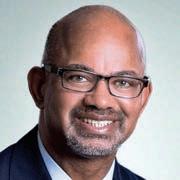
Michael Sutton CEO
Infrastructure Engineering
Scope of work: Sutton is the majority owner of Infrastructure Engineering, a civil engineering firm he founded in 1998. IE has grown to over 170 employees with offices in Chicago, New York, Newark, Detroit, Indianapolis, Peoria, Houston and Atlanta.
Biggest professional win: Sutton led Infrastructure Engineering’s role in the Chicago Department of Transportation Mobility Improvement Project in Jackson Park, home of the future Obama Presidential Center. IE guided a team of firms to improve transportation, create economic opportunities, and add over 5 acres of greenspace on the South Side.
Other contributions: Sutton founded the Infrastructure Engineering Foundation, supporting charitable causes. He serves on several boards, including 100 Black Men of NY and CUNY Grove School of Engineering.
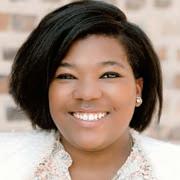
Janine Seale
Co-founder and CEO Out Of Office
Scope of work: CEO for nearly four years, Seale oversees the platform’s rapid growth and has led fundraising efforts totaling $7 million across three venture funding rounds. She manages a team of 10 and is responsible for financial oversight and planning future fundraising.
Biggest professional win: Seale was one of the first 100 Black women to raise over $1 million in venture funding. She is committed to changing the landscape for future minority and female founders, making fundraising more accessible and equitable. Other contributions: Seale mentors other founders and is a former speaker and advocate for Bright Pink, which focuses on prevention and early detection of breast and ovarian cancer in young women.
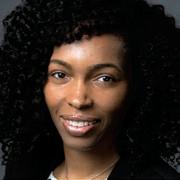
Senior vice president and head of retail Wintrust Bank
Scope of work: Swain manages operations for 35 Wintrust branches, overseeing $4.4 billion in deposits and a team of over 200 employees. Her responsibilities include enhancing all aspects of retail sales performance and maintaining a robust customer experience.
Biggest professional win: Swain opened a branch in North Lawndale, a low-income and underserved neighborhood. She took on the role of branch manager, hired and trained staff and established community relationships. This initiative provided essential banking services and financial literacy programs, significantly improving financial inclusion and resource access for local residents.
Other contributions: Swain serves on the board of Welcome 2 the Queendom, a nonprofit empowering at-risk girls.
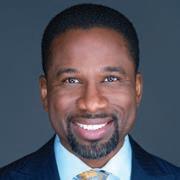
Founder and managing partner
The Copia Group
Scope of work: Thomas established the private investment firm in 2022, offering customized lending solutions to privately held, lower-middle-market companies.
Biggest professional win: After leading Northern Trust Asset Management to become the 17thlargest asset manager globally, with assets growing from $960 billion to $1.3 trillion, Thomas founded The Copia Group. He assembled a diverse leadership team, developed a social impact framework and launched the Copia Credit Impact Fund, marking a significant milestone in his 30-plus-year career.
Other contributions: He serves on the boards of the Reinsurance Group of America, the Financial Accounting Foundation, Rush University Medical Center and the Museum of Science & Industry. He is a member of the Commercial Club and the Economic Club.

Scope of work: Thompson is a lead trial counsel at Taft Law, specializing in contract disputes, trademark infringement, trade secrets, and sports and entertainment litigation. He serves as special assistant corporation counsel for the city of Chicago in civil cases.
Biggest professional win: He’s provided legal counsel to emerging brands in Chicago, assisting them in making measurable impacts in struggling communities. He advises a minority-owned craft brewer with a mission to bring craft beer to underserved areas.
Other contributions: Thompson represents Northwestern University on the Big Ten Advisory Commission, mentors Northwestern football players, and serves on the university athletics department’s Justice, Equity, Diversity & Inclusion Task Force. He received the Chicago Bar Association’s 2023 Earl B. Dickerson Award.
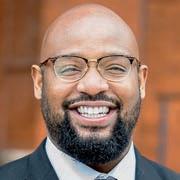
Executive vice president and chief operating officer By The Hand Club For Kids
Scope of work: Tinor directs operations for By The Hand Club For Kids, supporting 1,800 youth in under-resourced Chicago communities with a $17 million budget, focusing on literacy, faith and social-emotional learning.
Biggest professional win: Tinor spearheaded a youth-led container farm in Altgeld Gardens and helped launch the North Austin Center, a sports and wellness complex. He also secured approval for Austin Harvest, a youth-run market now in a permanent location.
Other contributions: Active in Alpha Phi Alpha, Tinor mentors students to see themselves in leadership roles. He advocates for equitable policies, including lobbying his seminary for better scheduling for Black seminarians and supporting community initiatives through his fraternity.
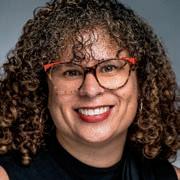
Executive director of global philanthropy, Chicago and Minneapolis-St. Paul markets
JPMorgan Chase
Scope of work: Trotter leads JPMorgan Chase’s $200 million philanthropic commitment to the South and West sides and oversees philanthropy in Indiana, Minnesota, Wisconsin and Canada. She drives philanthropic strategy, directs grantmaking and works with corporate responsibility teams to amplify equity goals.
Biggest professional win: Previously, at The Chicago Community Trust, Trotter led the team that developed a racial and ethnic wealth gap strategy, framing it as the trust’s 10-year focus and driving hundreds of millions in philanthropy toward the issue.
Other contributions: Trotter, who served on Mayor Brandon Johnson’s economic vitality and equity subcommittee transition team, is on the boards of the Center for Housing & Health, Women Employed and ARC Chicago.
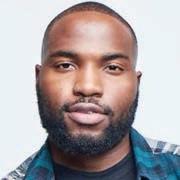
Uduimoh Umolu
CEO and co-founder
Jon Basíl Tequila
Scope of work: Umolu founded Jon Basíl Tequila in 2018, a Black millennial-owned premium tequila brand in Chicago. The brand partners with major retailers like Binny’s and Jewel-Osco and is available in over 600 locations statewide.
Biggest professional win: Umolu’s biggest win has been scaling Jon Basíl Tequila to nearly 10,000 cases in a single market without major financial backing or celebrity involvement. His success in the competitive spirits industry demonstrates resilience, creativity and innovation in a traditional sector.
Other contributions: Umolu co-founded the Starline Youth Project, taking Black students on trips to Ghana; served on the board of Save Money Save Life. He is also launching the Aleogho Scholarship Fund to support youth entrepreneurship.

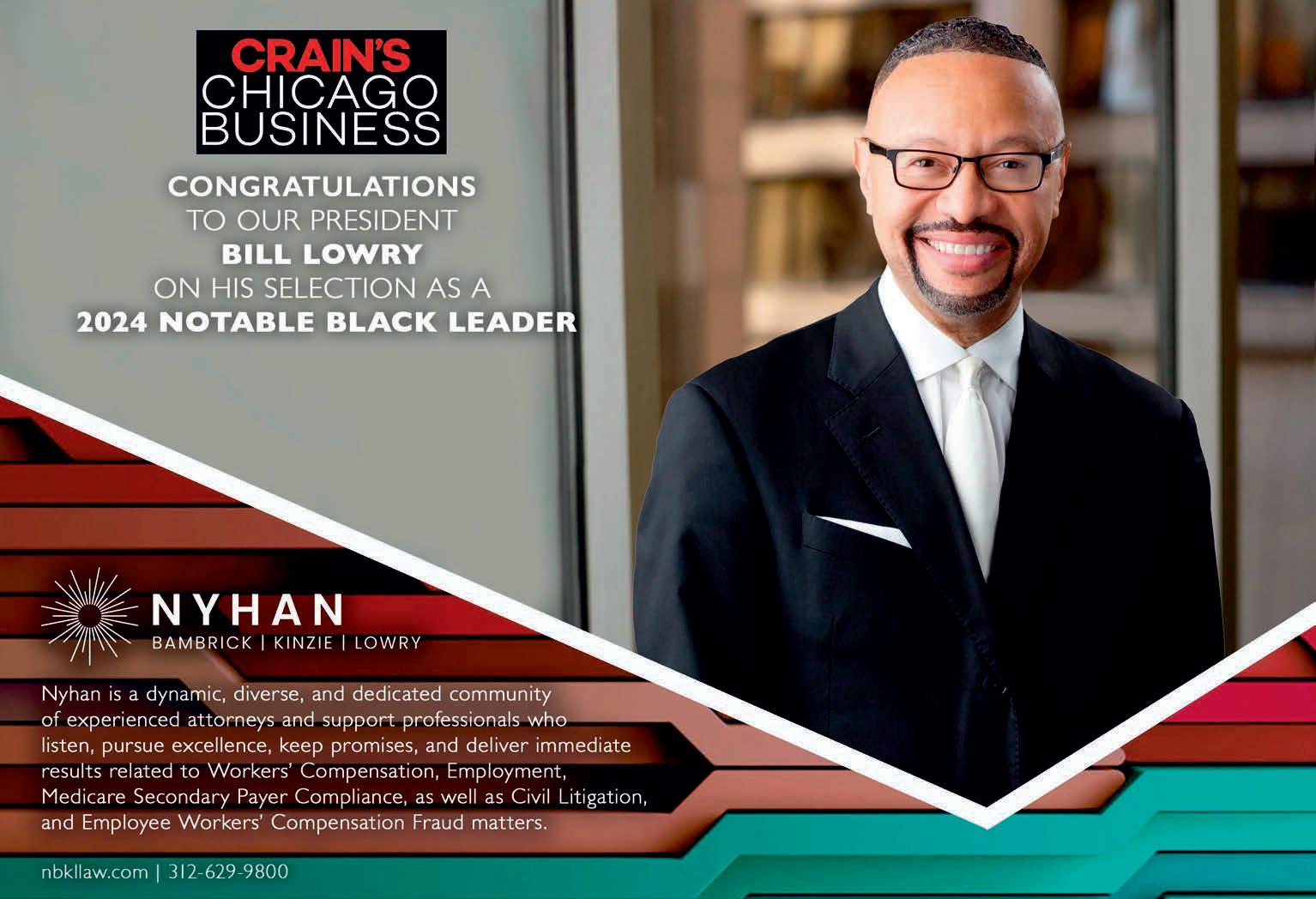

Jihan Walker Partner
Jones
Day
Scope of work: Walker, a senior trial attorney, leads a team of seven attorneys and brings extensive experience from her time as a trial and appellate attorney in the U.S. Army JAG Corps, where she served in Afghanistan and earned a Bronze Star.
Biggest professional win: In 2023, Walker’s team secured a complete defense verdict in a major jury trial in a jurisdiction known for large “nuclear verdicts.” This win highlighted Walker’s strategic value, built on her military background in high-profile cases.
Other contributions: Walker serves on the board of the Chicago Association for Research & Education in Science, supporting veteran health care. She is active on Jones Day’s diversity and pro bono committees and frequently advises veterans and diverse young lawyers.
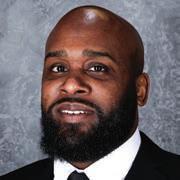
Troy Williams
Manager of Amateur City Elite and youth baseball programs
Chicago White Sox
Scope of work: Williams manages the White Sox Amateur City Elite program, which provides resources and mentorship for Black youth from Chicago’s most violent neighborhoods through baseball. He helps student-athletes ages 12-17 achieve academic and athletic success.
Biggest professional win: Williams’ leadership has been integral to ACE’s impact, with more than 290 college scholarships awarded and a 99% high school graduation rate. Over 110 ACE participants currently are enrolled in higher education, including 80-plus at historically black colleges and universities.
Other contributions: Williams previously served as assistant dean of students and athletic director at North Lawndale College Prep High School. He volunteers with iMentor and My Block, My Hood, My City.
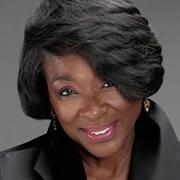
Debra Wesley President
Sinai Community Institute
Scope of work: Wesley founded Sinai Community Institute, the social services arm of Sinai Chicago. She leads communitydriven programs addressing social determinants of health, overseeing community relations and outreach for Sinai’s patient population.
Biggest professional win: Wesley pioneered the integration of social services into health care, addressing social, environmental and economic factors impacting health before it was widely adopted. Established in 1993, SCI benefits approximately 14,000 families annually.
Other contributions: Wesley chairs West Side United and serves on the executive, steering, and health and wellness committees of the North Lawndale Community Coordinating Council. Past roles include leadership positions with Legacy Charter School, the North Lawndale Employment Network and the Latino Alzheimer & Memory Disorder Alliance.
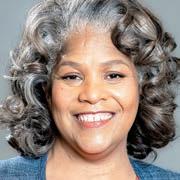
April S. Williams-Luster Senior manager of community affairs
Discover Financial Services
Scope of work: Williams-Luster leads community engagement strategies that focus on economic and sociocultural opportunities for South Siders. She manages Discover’s Shine Bright Community Center, extending corporate resources to community organizations and fostering relationships between Discover’s leaders, its Chatham workforce and local communities.
Biggest professional win: Williams-Luster developed a new model for Discover’s corporatecommunity engagement that connects the public to partnerproduced programming at Shine Bright. She manages a four-person team and a $1.8 million budget.
Other contributions: She was deputy chief engagement officer in former Mayor Lori Lightfoot’s administration, integrating diverse voices into city policies. She mentors women in public-sector roles, particularly in government affairs and community engagement.
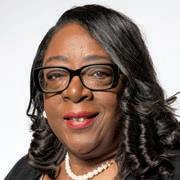
Deborah Whitaker
Director of business development and diverse supply chain
Hire360
Scope of work: Whitaker has been leading business development at Hire360 for four years, supporting over 180 minority- and women-owned businesses. She drives capacity building, access to capital and strategic mentorship, and has facilitated over 90 loans totaling $15 million.
Biggest professional win: Her role was pivotal in supporting Simply E & C co-founder Cavin Payne to scale his business. Through Hire360’s Business Development Program and partnership with Allies for Community Business, Payne secured vital capital, certification assistance and networking opportunities, boosting the company’s growth.
Other contributions: Whitaker mentors and organizes community outreach initiatives, focusing on supporting underrepresented businesses. She’s on the Illinois Works board, advising on workforce equity for the state’s $41 billion capital construction projects.

Victoria Young Wilson President
Naturally
Urban Environmental
Scope of work: As NUE’s founder, Wilson focuses on sustainable construction, green urban planning and eco-friendly projects. She leads strategic planning, community revitalization and sustainable building initiatives, managing over $2 million in projects for Chicago’s Department of Planning.
Biggest professional win: In the past five years, Wilson supported the $3 million Rebuild Illinois Program, contributed to Chicago’s “Building Decarbonization Working Group Recommendations Report” and served on the advisory review committee for the Climate Infrastructure Fund.
Other contributions: She serves as Cook County environmental commissioner, Illinois EPA environmental justice commissioner and vice president of the Environmentalists of Color advisory board. She is a founding member of the Energy Equitable Contractor Association and mentors ecopreneurs, supporting community development and environmental advocacy.
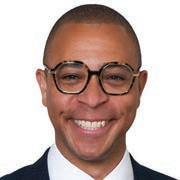
Eric White Partner
Winston & Strawn
Scope of work: White is a litigation partner at Winston & Strawn, focusing on business disputes, product liability, mass torts and internal investigations. He oversees attorney teams and represents clients in federal and state litigation.
Biggest professional win: White co-led the pro bono team with the Minnesota Department of Human Rights that secured a courtenforceable agreement to improve public safety in Minneapolis following George Floyd’s murder. He led a team of 70 attorneys who spent 5,300 hours reviewing MPD records, exposing discriminatory practices.
Other contributions: White is board secretary of Nourishing Hope and a member of Northwestern’s Bluhm Legal Clinic advisory board. He previously served on boards for Teach For America and the Chicago Committee on Minorities in Large Law Firms.
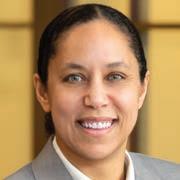
Ami Wynne
Partner
and Chicago office managing partner
Morgan Lewis & Bockius
Scope of work: Wynne advises companies and boards on employment matters, including litigation, internal investigations and strategic human resources issues like DEI, executive hires and sensitive separations.
Biggest professional win: Wynne is recognized for handling sensitive investigations and cultural assessments. She is currently leading a Morgan Lewis team assessing workplace culture at a large university, focusing on how sexual misconduct complaints have been managed and recommending improvements.
Other contributions: Wynne has served on the board of Lawyers Lend a Hand to Youth for over a decade and joined the board of Legal Aid Chicago in 2020. She co-chairs the governance committee and sits on the executive committee, supporting free legal services for people in poverty.
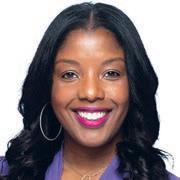
Rashada Whitehead
National managing principal of culture, immersion and inclusion
Grant Thornton
Scope of work: As a member of Grant Thornton’s executive committee, Whitehead leads initiatives that shape the firm’s culture and diversity, equity, inclusion and belonging strategies. She manages a team of 25 and a $4 million budget.
Biggest professional win: Whitehead’s leadership has driven a 54% increase in Black and Latino representation and helped Grant Thornton achieve its fiscal 2025 goal of having 40% of partners, principals and managing directors from diverse backgrounds. She spearheaded the firm’s inaugural DE&I report and developed inclusion conferences, resulting in 98% participation in unconscious bias training among leaders.
Other contributions: Whitehead mentors with Chicago Boys & Girls Club and Girls Inc. of Chicago. She’s an adjunct professor at Roosevelt University.

A snapshot of Black boardroom representation Among companies in the S&P 500: 2023
490 Black corporate board members at 420 corporations 2022
474 Black corporate directors at 421 companies
2023
84% of the S&P 500 had Black directors
2016
60% of the S&P 500 had Black directors
Source: Black Enterprise


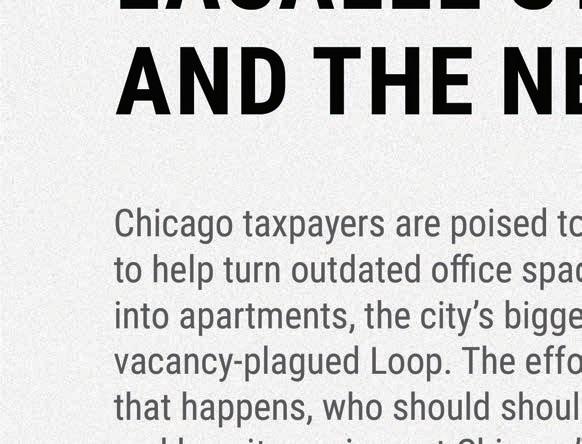


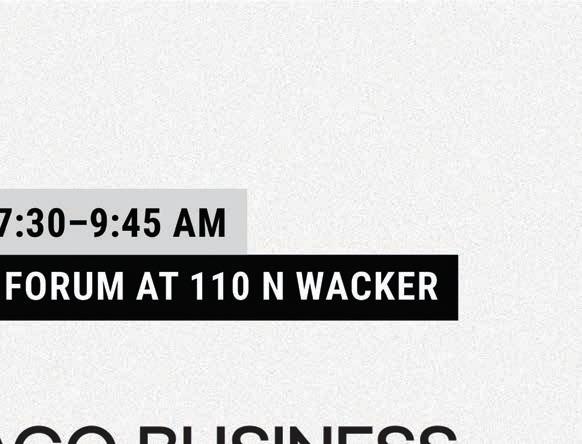
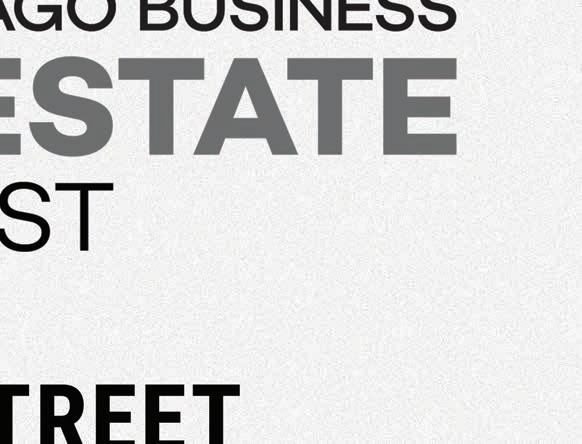

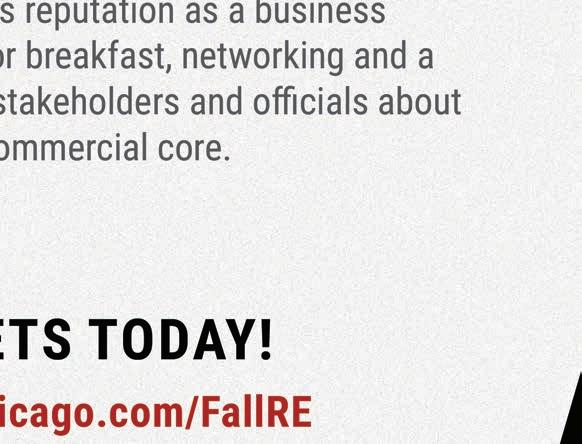

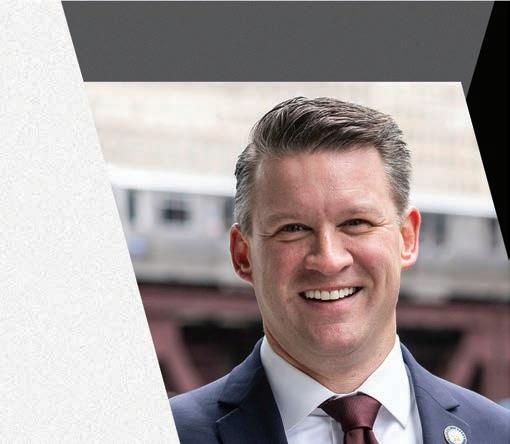
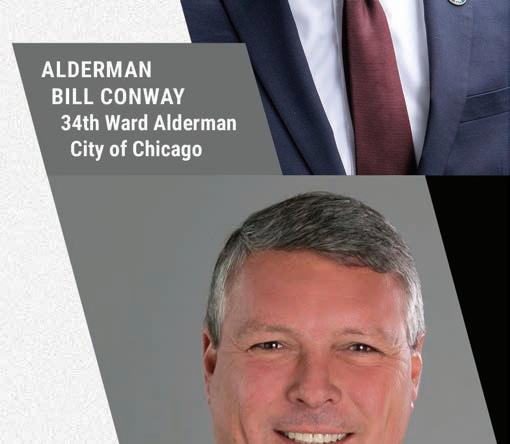

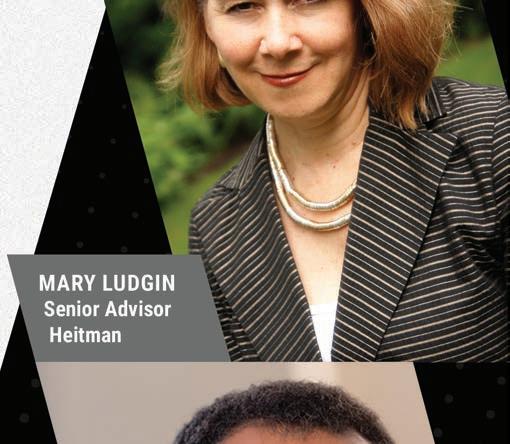
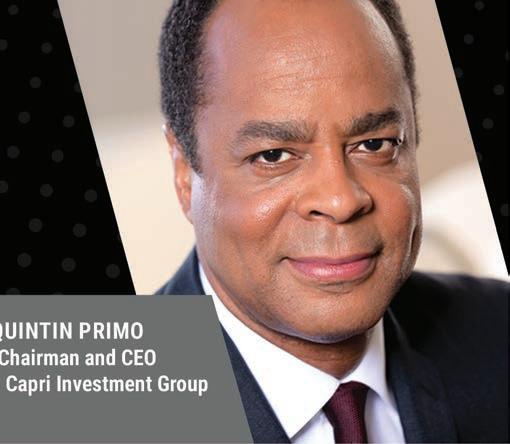
By Mila Koumpilova, Chalkbeat
Campaigning in Chicago’s historic school board race is ramping up, and so are financial and inkind contributions to candidates, which now total at least $650,000.
Recent weeks have seen an uptick in support for Chicago Teachers Union-endorsed candidates and others who are drawing backing from political committees, labor unions, and other organized groups. Meanwhile, the Illinois Network of Charter Schools’ political arm is finalizing a slate of candidates to endorse and gearing up to enter the fray with a multimillion-dollar war chest at a time when the district has signaled a move away from school choice and charters are under growing scrutiny.
Some candidates without that organizational backing in Chicago’s first elected school board race say they are scrambling to make up for its lack by lining up volunteers and fundraising actively.
“It is absolutely a challenge running against big institutional support,” said Jessica Biggs, a former teacher and school principal running in District 6. “It means my campaign is really reliant on individual donations small and large.”
Chicago voters will for the first time select 10 board members on Nov. 5 — the first step in a transition away from a board fully appointed by the mayor. Mayor Brandon Johnson — elected with a major financial and boots-onthe-ground boost by the CTU, his former employer — will appoint another 11 members. By 2027, all seats on the board will be elected.
Current candidate totals exclude smaller checks or in-kind donations received since June 30, when candidates last reported their financials to the Illinois State Board of Elections. The next quarterly deadline for school board campaigns to report all contributions is Oct. 15, two weeks before election day. However, candidates are required to report contributions of $1,000 or more within a week of receiving them.
After an initial trickle of contributions over the summer, recent weeks have brought in an influx of checks and in-kind support and widened fundraising gaps between candidates in a number of districts, according to a Chalkbeat analysis of campaign data. Some candidates, such as Bruce Leon, the founder of a human resources firm and 50th Ward Democratic committeeperson, and Che “Rhymefest” Smith, an artist and activist, have made sizable loans to their own campaigns.
In June, the Chicago Teachers Union endorsed a slate of candidates. The endorsed candidates are now getting financial help from the union in the form of field staff and consultants, such as Chicago-based Goshen Impact Services, which also worked on Illinois Gov. JB Pritzker’s reelection campaign.
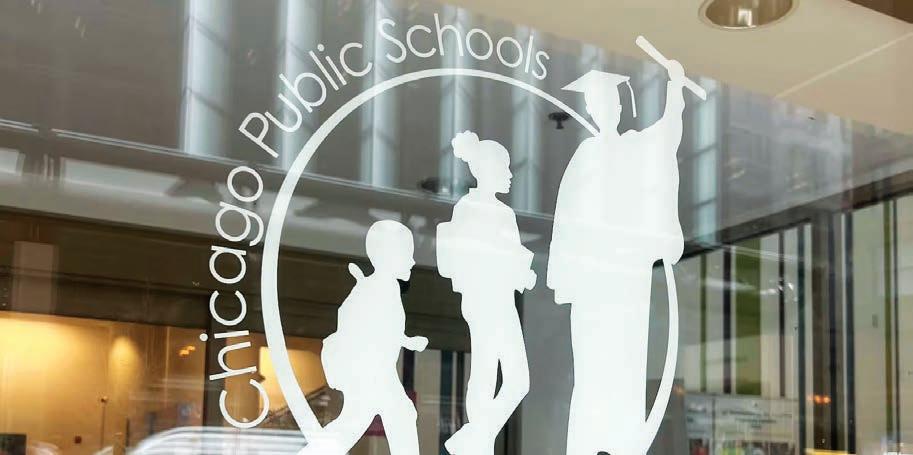
Multiple CTU-endorsed candidates began reporting payments from the CTU’s political action committees in August, amounting to about $80,000 to date. That help, along with hours spent doorknocking and phone-banking by CTU member volunteers, is giving contenders an important boost in a race in which few candidates have much name recognition.
CTU-endorsed candidates are also receiving financial support from two other groups: Our Schools Action, a coalition of community groups of which the CTU is a member, and People United for Action, which works to elect progressive candidates for public office.
Anusha Thotakura, the director of Citizen Action/Illinois and former teacher, received roughly $20,000 worth of in-kind support from the CTU, including to help pay the salary of a field organizer, Abierre Minor, and for Goshen Impact Services. She said she has organized her own group of volunteers independent of the CTU and is making a push to get the word out about her campaign that’s not closely coordinated with the union. In fact, she said she is not sure what some of the in-kind CTU support is.
“I’ll knock on someone’s door and they’ll say, ‘Oh, hey, I just heard about you from somebody else,’” she said. “It doesn’t hurt to have multiple people reaching out.”
She said she decided to get into the race after her opponent, Andre Smith, received a donation from the Illinois Network of Charter Schools.
“We cannot let private interests take control of the board,” she said. “Organized people beat money every time.”
Karen Zaccor, a former teacher running against five other candidates in the most crowded race in District 4, also said she doesn’t know exactly what the CTU’s inkind donations to her campaign are paying for, beyond helping to get the word out about her candidacy.
Zaccor said she is proud of the union’s support. But as a member of the advocacy group Northside Action for Justice, she said she readily enlisted district volunteers without outside help and is leaning on her deep ties in the
area. For now, Zaccor is at a fundraising disadvantage, with opponent Ellen Rosenfeld, another former teacher, bringing in more than $48,000 in reported contributions, including many from campaigns to elect other officials.
Support from the union’s more than 30,000 members will power efforts to amplify the message of its endorsed candidates, with goals such as knocking on doors at least three times, said Hilario Dominguez, the CTU’s political director. The CTU recently hosted a launch event for candidates Ebony DeBerry and Jason Dónes with elected officials such as U.S. Rep. Delia Ramirez, who fanned out with supporters afterward to knock on doors.
Dominguez criticizes backing from moneyed donors to the Illinois Network of Charter Schools and to Urban Center, a group run by Juan Rangel, the former head of the UNO charter network, and affiliated with Paul Vallas, a former CPS CEO who last year lost a mayoral bid to CTU-backed Mayor Brandon Johnson. He called these groups “the legion of doom.”
“I imagine we are going to be outspent,” Dominguez said. “This is still a unique opportunity for democracy, and we are not going to let our schools be bought, sold or privatized.”
The union’s two political action committees have reported a total of $176,000 on hand at the end of June. It’s likely that state and national teachers unions will contribute to the race as well, as they did to Johnson’s election as mayor.
Meanwhile, the New York-based nonprofit Leadership for Educational Equity, which is affiliated with Teach for America, donated about $1,000 to five candidates, including some graduates of the alternative teacher prep program.
Charter, school choice groups are waiting in the wings
Testing the union’s formidable ability to get out the vote will be financial injections from two Illinois Network of Charter Schoolsaffiliated political funds that together have amassed more than $3 million.
The network’s political arms have received some large donations during the summer, includ-
bers. So far no evidence has emerged that CTU was involved. Political action committees are not required to report expenditures until next month. The attorneys also represented two CTUendorsed candidates facing challenges. When contacted by Chalkbeat earlier this month, three of the attorneys did not respond, and one, Mike Kasper, declined to comment.
Dominguez, the CTU political director, would not directly answer questions about claims that CTU was involved in the ballot challenges. But he called the issue a distraction, noting four CTUendorsed candidates also faced challenges and one of them got knocked off the ballot.
ing more than $986,000 from James Frank, the auto leasing executive who chairs the Intrinsic Schools charter network, and $100,000 from billionaire Netflix co-founder Reed Hastings. The majority of the advocacy group’s money is held by an independent expenditure committee, which cannot donate directly to candidates or coordinate with their campaigns, but can spend on advertising and other services to support them.
Andrew Broy, the network’s executive director, said the group will support candidates committed to school choice at a time when the district appears poised to move away from it. He said the people writing big checks to the group have a track record of caring about education.
“We have a focus on making sure the students’ experiences are at the center of the district’s focus,” he said. “I don’t think that’s the case right now.”
The group, which donated to two candidates — Andre Smith and Carlos Rivas — earlier in the summer to help them get on the ballot, will decide on the full list of candidates it will support this week. Eighteen candidates filled out its questionnaire and sat down for recent interviews, Broy said. Its PAC board will vote on whom to support, and contributions will start flowing later this month.
With Johnson appointing 11 of the board’s 21 members, INCSbacked candidates would make up a minority on the board by default. But, Broy said, “I do think there is a big difference between the CTU controlling 20 seats — and having some independent thought on the board.”
Broy raised issues with the number of people removed from the ballot due to challenges to their petitions. In all, 47 people filed to run and 32 made it on the ballot.
Chicago Board of Elections records show four attorneys represented objectors to 19 candidates, none of whom were endorsed by the CTU.
Broy contends the CTU backed the push to remove opponents from the ballot, which he called hypocritical because the CTU campaigned for years to allow Chicagoans to pick board mem-
“It’s bothersome that folks are alleging CTU is not in support of grassroots candidates when all our candidates are grassroots,” he said. ‘Independents’ race to make up for lack of big-player backing
Some candidates backed by neither group said they are at a fundraising disadvantage — and trying to harness their unaffiliated position to appeal to voters.
Biggs, the former principal, said her campaign has signed up more than 40 volunteers and drawn support from more than 80 donors, most of them contributing relatively small amounts. Some money went to warding off a ballot challenge. She has a paid parttime field organizer, but she is doing most of the work of running the campaign herself, with help from a “kitchen cabinet” of five volunteers.
“People want someone who is independent making decisions for schools,” she said. “That message really resonates. The challenge is getting that message out.”
Maggie Cullerton Hooper, a CPS parent and local school council member running in District 2, has raised more than $68,000 for her campaign. The daughter of former state Senate President John Cullerton, Cullerton Hooper brought in $25,000 in transfers from her father’s political action committee and a number of political endorsements.
But her campaign manager, Erika Caldwell, said the bulk of the candidate’s haul comes from small donations — and Cullerton Hooper is not counting heavily on her political establishment ties. Instead, she is emphasizing her experience as a person with disabilities who is raising two CPS students, including one with a disability.
“There are a lot of students in the system having decisions made for them by people who haven’t had that lived experience,” Caldwell said.
Reema Amin contributed to this report. Mila Koumpilova is Chalkbeat Chicago’s senior reporter covering Chicago Public Schools. Contact Mila at mkoumpilova@ chalkbeat.org. Chalkbeat is a nonprofit news site covering educational change in public schools.
By Erika Wheless, Ad Age
Mikey still likes it.
PepsiCo is reprising the classic Life cereal ad “Mikey Likes It” to generate interest from parents— especially those juggling getting themselves and their kids ready in the morning, including giving them breakfast.
The musical spot, from PepsiCo’s internal agency D3, stars a new Mikey and introduces a new tagline, “I really love my life.” Mikey wakes up to a chaotic household—a sister jumping on his bed, a brother still in his underwear playing basketball in the hall, mom has toothpaste in her hair and dad
“During
sions at PepsiCo. “But when we mentioned it, they knew it immediately, and we saw there was a lot of latent love and positive memories associated with the brand. So we wanted to bring Mikey back for a new generation of kids and parents.”
Life cereal’s new spot will air on Disney+, Hulu, ESPN+, Canela, Amazon, YouTube, Walmart Connect, TikTok, Meta and SiriusXM.
The original ad from DDB aired in 1972 and starred John Gilchrist and his two real-life brothers. The spot opens with two of the brothers debating who should try a new cereal their mom says is “good for you.” They pass it off to little Mikey, a picky eater. He surprises them by eating the bowl of cereal, sparking the line, “He likes it! Hey Mikey!”
the pandemic, there was a return to the table. Now, with the return to offices and school, we are back to a renewed pressure to make mornings fast.”
Katie Scupham, VP of meal occasions at PepsiCo
really needs a cup of coffee. In a moment of calm when the family sits down to breakfast, he digs into a bowl of Life, and we hear the classic, “He likes it! Hey Mikey!”
“In consumer focus groups, Life did not come top of mind,” said Katie Scupham, VP of meal occa-
Perhaps most striking about the new ad is that it’s sung by Mikey. In the original, there is no background music, and Mikey doesn't speak.
“We wanted to build upon the original and felt like the brand was deserving of the new music and tagline,” said Isaac Pagan-Muñoz, VP and executive creative director at D3. It’s also more high-energy than the original, which he said was informed by much of the team’s own experiences as parents.
“I think we all had this instinct that this was reflective of our audi-
By Brandon Dupré
Aldi will raise its starting pay and plans to hire thousands of employees as the grocery chain eyes its target of opening 800 stores nationwide by the end of 2028.
The chain announced it will add more than 13,000 store and warehouse associates ahead of the holiday season. Additionally, the national average starting wage for store employees will be $18 an hour, while warehouse workers will make $23 per hour.
“Our ability to attract and retain talent has always been key to our success, and we look forward to helping our new team members grow in their careers,” Aldi President Atty McGrath said in a statement.
Aldi said that employees working 30 hours a week will have access to health insurance and paid time off.
The news comes after the discount grocer announced in March it's aiming to open 800 stores nationwide by the end of 2028. The move is expected to cost the Batavia-headquartered grocer more than $9 billion and includes plans to add 330 new

ence and this consumption occasion,” Pagan-Muñoz said. “Many of us are parents. I have a fouryear-old, and even one kid can be beautifully chaotic.”
“We also wanted to show this time through Mikey’s eyes,” added Scupham. “Parents might find mornings chaotic, but to kids, it's just their morning, and there are moments of joy.”
The redux ad comes as consumer behaviors around breakfast have shifted since the pandemic.
“During the pandemic, there was a return to the table,” said Scupham. “Now, with the return to offices and school, we are back to a renewed pressure to make mornings fast. Cereal is fast and still feels like you had a real meal, plus parents want to avoid morn-
ing breakfast battles.”
This is not the first time Life has brought back the ad. In 1986, the original Mikey appeared in another commercial playing an uncle to two picky siblings. In the late 1998, there was a search for a new Mikey, which surfaced Marli Hughes. In 2000, another ad used the same shots and dialogue as the original, this time with an adult cast. And in 2019, another little girl played Mikey in a short spot.
Gilchrist is currently the director of media sales for Madison Square Garden.
Quaker Oats North America, which is based in Chicago and includes the Life brand, experienced an 18% drop in revenue and volume in the second quarter. The decline followed a product recall

locations in the Northeast and Midwest and enter new markets, such as Las Vegas.
“Our growth is fueled by our customers, and they are asking for more Aldi stores in their neighborhoods nationwide,” CEO Jason Hart said when announcing the expansion plans. "With this commitment to add 800 stores in the next five years, we’ll be where our shoppers need us while positively impacting the communities we serve.”
Aldi acquired Winn-Dixie and Harveys Supermarket last year with plans to convert most of those stores into Aldis. The acquisition gave the grocer roughly 400 new locations, specifically in Alabama, Florida, Georgia, Louisiana and Mississippi. In the deal, Aldi stated that it would continue to run some stores under the Winn-Dixie and Harveys Supermarket banners.
With the expansion plan, Aldi says it is solidifying its place as one of the country's fastestgrowing grocers and has opened nearly 100 stores per year over the last 10 years. The chain has more than 200 locations in Illinois and over 2,000 nationwide.




issued in December 2023 for potential salmonella contamination, which was expanded to include additional products in January. The recall affected granola bars and some cereals but did not include the Life brand.
Overall, PepsiCo’s net sales rose 0.8% to $22.5 billion for the quarter that ended June 15. By comparison, net sales for General Mills— the maker of Cheerios, Cocoa Puffs and Lucky Charms—fell 1% to $19.9 billion for the fourth fiscal quarter that ended May 26. Frosted Flakes’ and Special K’s parent company, WK Kellogg Co., reported a sales drop of nearly 4% to $672 million for the second quarter that ended June 29.
Erika Wheless writes for Crain's sister publication Ad Age.
























































seeks inChicago,ILtodesign,develop,and maintainsoftwareapplicationsthatmakeclinicaldecisionsupport(CDS)andrelatedcontentavailable tocustomers.Telecommutingpermitted.Applyatwww.jobpostingtoday.comRef#76421
seeks inChicago,IL.Buildonpreviousresearchandtrading experiencetodrivetheprofitabilityofahighlyelectronictradingoperation.Telecommutingis permitted.Apply@https://www.jobpostingtoday.com/#98869.
ADMINISTRATIVE
Provide complex administrative support for the Bureau/Department staff and leadership. Function as a technical administrative resource in matters requiring extensive knowledge of the rules, regulations, objectives, and protocols of the Bureau/Department. Act as a point of contact or liaison to bridge issues of common concern between department staff, management, and support operations. Oversee confidential records, assist in the formulation and interpretation of policy, set procedure, and manage itineraries, schedules, and agendas. Full job requirements and responsibilites available at jobs.chicagobusiness.com

By Jack Grieve
A once-in-a-decade storm the night of Aug. 27 left a small strip of southwest Michigan beach towns in shambles. Fallen trees blocked roads, knocked down power lines and damaged dozens of structures in Berrien County from northern New Buffalo up to Lakeside.
Cleanup efforts continue several weeks later. Streets have reopened and the lights are back on, but truckloads of debris remain. Some ancillary utility companies are still getting their lines back up.
Town officials have praised state and county agencies, as well as residents themselves, for assisting response efforts. But they also see the damage and subsequent recovery efforts as an educational opportunity for another subsection of their communities: owners of second homes.
New Buffalo and Chikaming townships, the two areas hit hardest by the storms, are popular vacation destinations for Chicagoans and other Midwestern neighbors. Many residential properties along the towns' Lake Michigan coastlines are owned by out-of-towners, meaning some affected homes were unattended during and after the storm.
That dynamic was a source of headaches for some officials as they tried to assess damages in the storm's aftermath. In any emergency response situation, officials are already all-hands-on-deck to respond to residents' requests for assistance; the task becomes more
daunting when homeowners are not there and folks on the ground need to identify those damages themselves.
"We rely a lot on neighbors letting other neighbors know, 'Hey, your house has a tree on it. You better come over and take a look at things,' " said Chikaming Township Supervisor David Bunte. Not all full-time residents knew how to get in contact with their neighbors after the storm, though, so some communications still slipped through the cracks.
Bunte would like to see out-oftown homeowners make more intentional efforts to actively seek out information about their second homes in case things go awry. He said it's not difficult for people to stay informed about what is happening in Chikaming, even if they are not there.
"We have the communication systems in place. We just need to make sure more people utilize them because that's what they're there for," he explained. "Even if it's your second home, it should be just as important to you that you know what's going on."
Chikaming, which comprises the towns of Harbert, Sawyer and Lakeside, plus a portion of Union Pier, uses an emergency notification service called CodeRED to quickly send urgent alerts. Bunte was one of the leading advocates for the township first partnering with CodeRED in 2018, and homeowners living far from town were part of his motivation for implementing the service. He's now doubling down on encouraging residents to sign up.
to fare well when they experience a downturn."
are broad, and we use our sector expertise to bring companies into verticals,” says Freedman, who leads the fund with partner Liza Benson. "What you find is any company that is dependent on a cyclical industry, they’re not going
Moderne recently invested in Qloo, a Chicago-based startup that uses artificial intelligence to help companies understand and predict consumer preferences. Its customers include Starbucks, Netflix and PepsiCo.
“They’ve started to go into real estate and finance, and that’s
Chikaming Township also recently launched a newsletter to connect officials with residents near and far. Bunte thinks every Chikaming stakeholder should join the listserv.
"I really am trying to use this also as an educational moment for our community to say, 'Listen, these are services we provide at no cost. We want to make sure that you are always informed and have the information necessary to protect yourselves and your properties,'" Bunte said.
New Buffalo Township also relied on neighbors assessing nearby properties in the days after the storm. "It’s helpful for the secondhome owners to have contacts for their neighbors, whether they are full-time residents or not," said New Buffalo Township Supervisor Michelle Heit.
She noted that while the township does not have an official electronic emergency alert system, they use Facebook and the official township website to inform people about happenings in town.
New Buffalo Township long used a siren system to alert residents about impending weather events. The service was retired just four days after the Aug. 27 storm in favor of phone and internet notifications. "The (siren) system is old and not reliable," the township posted to Facebook. "When the sirens go off, you still need to know and understand why the sirens have been activated."
Chicago residents can sign up for local alerts from the city's NotifyChicago system.
where we’re helping them,” she says.
Venture-capital deployment is still depressed, down 40% from where it was two years ago, giving an advantage to those willing to invest their cash.
“I am so happy to have dry powder right now because it’s the best investor environment I’ve seen in two decades,” she said.
















































































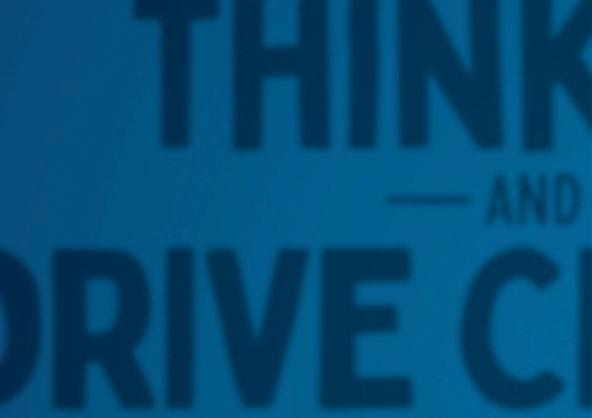



































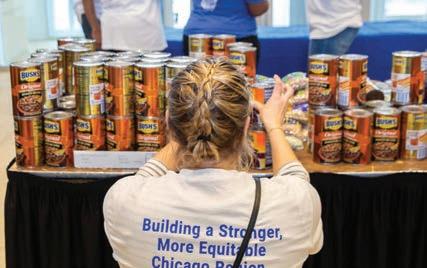



























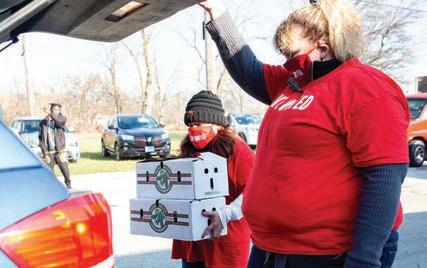



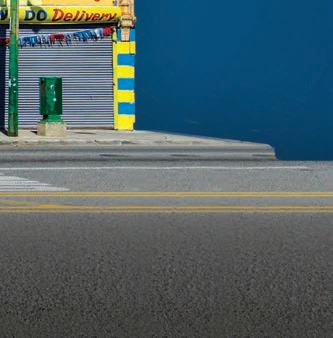


Smith Gambrell & Russell, which established a Chicago office through two mergers over the past two years, is moving to another tower up the street from its current location and reducing its downtown workspace by about 50%
By Danny Ecker
The biggest tenant in one of Chicago’s tallest office skyscrapers is moving to another tower up the street and cutting its office footprint in half, falling in line with the broader trends shaping the vacancy-plagued downtown office market.
Law firm Smith Gambrell & Russell has signed a new lease for about 57,000 square feet on two floors at 155 N. Wacker Drive, co-Managing Partner Jim Figliulo confirmed. SGR, which established itself in Chicago over the past two years through mergers with law firms Figliulo & Silverman and Freeborn & Peters, will relocate to the new space from around 119,000 square feet it occupies today at 311 S. Wacker Drive.
The deal adds to the spaceshedding movement that has battered downtown office landlords since the start of the COVID-19 pandemic and fueled a historic wave of distressed properties in the heart of the city. It also shows how the newest and most updated office buildings continue to outperform older ones as companies hunt for workspace that will help get employees to work in person rather than remotely on a more regular basis.
“It will be a lot more efficient, a lot more of an open design so we can really collaborate and have people want to come to the office,” Figliulo said. The Atlanta-based firm’s future Chicago home “has state of the art technology that’s inviting, it has great amenities as part of the building, and the location is right in the middle of a lot of things.”
Figliulo declined to disclose the specific terms of the lease, but said the firm has made a “long-term commitment” of more than 10 years to the 46-story building. SGR
From page 1
acres of open space for the community.
The apartment count in the application is far higher than the 5,000 to 6,000 units that United Center officials said they envision for the project when they shared some details in July. It’s possible the arena owners won’t actually build all of the units that would be allowed under the proposed new zoning.
The plans outlined in the application “are based on market research and absorption data to date understanding that market conditions and plans will evolve with time and discussion,” United Center spokeswoman Colleen Quinn said in a statement to Crain’s. “We will continue to meet with the city, our local officials, neighbors and other community leaders as planning progresses.”
The application also includes the first disclosure of the maximum of

will build out its new office on the 30th and 31st floors and expects to move in by early 2026, according to Figliulo. The firm’s lease at 311 S. Wacker is due to expire in early 2027, he said.
The new deal adds to a winning streak for Chicago developer John Buck Co., which owns 155 N. Wacker and has been steadily picking up new tenants after losing two of its biggest ones in law firm Skadden Arps Slate Meagher & Flom and health care management consulting firm Vizient. Buck has bounced back from those departures by landing deals with specialty insurance company Ryan Specialty Group, safety science company UL Solutions and advisory firm FTI Consulting.
Prior to the SGR lease, the 1.2 million-square-foot tower was 77% leased, according to real estate in-
1,309 hotel rooms the United Center envisions for the project. Some of those would be built as part of a proposed first phase of the project, which would include 150 to 180 rooms in a mixed-use hotel, retail and parking structure immediately southeast of the arena, the team owners said in July.
The centerpiece of the initial phase would be a 6,000-seat theater-style music hall on land immediately southwest of the United Center at the northeast corner of Damen Avenue and Adams Street. Arena officials said that would fill a “pretty glaring hole” in the Chicago market for a music venue of that size and would complement larger-scale events inside the United Center.
The first phase also calls for an elevated 2.5-acre park built atop a new structure that includes parking, an expanded loading dock and outward-facing retail. The park would feature recreational space and sports courts and connect to green space surrounding the adjacent music hall. The entire first
formation company CoStar Group. That was slightly higher than the average for downtown office buildings midway through the year. A spokeswoman for Buck did not respond to a request for comment. Vacancy at top-tier, or Class A, office buildings downtown like 155 N. Wacker has only inched up since 2020, while average vacancy at Class B properties like 311 S. Wacker has jumped over that span.
Losing SGR piles onto the attrition that has been especially painful for the 65-story tower. Three of the biggest tenants are already moving out of nearly 90,000 square feet in the tower, likely pushing its occupancy below 50%. While SGR still has more than two years left on its lease, the firm’s departure as the tower’s largest tenant is poised to leave the property with even more vacancy. The building was 86% leased when the public health crisis began.
phase would include nearly 11 acres of public open space.
Renderings released in July showed plans for residential buildings and park space on lots north of the stadium near the Westhaven Park Apartments, as well as higher-density residential buildings northeast of the arena.
The zoning application specifies that the tallest building in that area could rise as high as 660 feet. That would be far taller than the 495foot height of the tallest apartment tower today in the nearby Fulton Market District and above the 615foot proposed height of a 52-story apartment tower proposed in the former meatpacking corridor.
The application did not detail plans for a new Pink Line station the arena owners hope to add to service the additional density in the area as the project comes together. United Center officials said in July they had initial conversations with Chicago Transit Authority leadership about such a station.
The Reinsdorfs and Wirtzes said over the summer they are not
$100 million to $120 million for the tower, according to people familiar with the listing. Investors figure they would have to spend heavily to either make the building competitive for tenants again or convert part of the property into a new use, such as a hotel or apartments.
A sale at anywhere near that price range would complete one of the most sizable losses of value ever for a downtown office building, wiping out all of Zeller and Cindat’s equity in the property as well as the stake of investment firm Nuveen, which provided roughly $80 million in mezzanine debt as part of the 2018 refinancing, sources familiar with the property said.
The 1.3 million-square-foot building is owned today by a joint venture of Chicago real estate firm Zeller and Chinese investor Cindat Capital Management, which bought it for $302 million in 2014. The owners spent another $38 million on renovations and building upgrades since then, according to a flyer from Jones Lang LaSalle, which has marketed the property for sale over the past year. Zeller and Cindat refinanced the tower in 2018 with $295 million in new debt while the downtown office market was thriving.
Zeller and Cindat were under contract to sell the tower to a Virginia-based investor for more than $300 million in late 2021, but that deal ultimately fell apart. Since then, spiking interest rates and the post-COVID office malaise have been harsh, as shown by overtures from other prospective buyers. Multiple investors last year were offering sums in the range of
seeking any public financial help for the project for now, though public resources could come into play for CTA and infrastructure updates, as well as the creation of new park space.
Some of the properties planned are located in the city’s Central West tax-increment financing district that is adjacent to the United Center and is due to expire this year. Ald. Walter Burnett, 27th, whose ward includes the United Center, said in July that the city may look to extend the life of the eligible western portion of that TIF district to support infrastructure needs around the arena.
The 1901 Project proposal comes amid a broader public conversation around taxpayer funding for professional sports venues in Chicago, as the White Sox — which are owned by Chicago Bulls Chairman Jerry Reinsdorf — and the Bears both seek public financing for new stadiums. Reinsdorf, 89, has signaled he’s open to making a sub-
Such a steep discount would also mean a massive financial loss for a consortium of banks led by Morgan Stanley, which provided a $215 million senior loan to lead the 2018 debt package, according to Cook County property records. Those lenders face big decisions that many other office lenders are now grappling with: whether to accept a painful write-down and move on from a property, or hang onto it and find a way to boost its value.
A spokesman for Morgan Stanley declined to comment. Spokesmen for the Zeller-Cindat venture and Nuveen did not respond to requests for comment.
SGR has about 70 attorneys in Chicago, most of whom were previously with Figliulo & Silverman or Freeborn & Peters. Freeborn’s office has been located at 311 S. Wacker since 1992.
JLL brokers Matt Carolan and Meredith O’Connor negotiated the lease on behalf of Smith Gambrell & Russell. Leasing agent Bill Rolander of Newmark represented John Buck. Stream Realty Partners’ Mark Baby and Andrea Saewitz now oversee leasing at 155 N. Wacker Drive.
stantial private investment in a new Sox stadium to help make a public funding piece more palatable for elected officials.
United Center officials said in July the United Center plan “doesn’t fit into a discussion” about other stadium projects and “stands on its own as a transformative, private investment that furthers the commitment of two families deeply connected to Chicago and the West Side.”
The Reinsdorf and Wirtz families teed up the 1901 Project in recent years by acquiring vacant land in the vicinity of the stadium. The Chicago Sun-Times reported in February that Reinsdorf-controlled ventures had spent almost $45 million purchasing sites within a few blocks of the arena over the previous 19 months.
That land grab has coincided with a passing of the leadership torch by both teams to Michael Reinsdorf and Danny Wirtz from their fathers, Jerry Reinsdorf and late Blackhawks Chairman Rocky Wirtz, who died last summer.
-ture behind a food hall is still alive and well. The business model doesn’t support it in today's urban downtown climate.”
Hospitality company STHRN, which took over operations of Revival this summer and rebranded it, runs food halls across the country. The Atlanta-based company usually works for the building owner, operates the space, makes suggestions on what types of restaurants should fill the space, then sets it up, said Managing Partner Elizabeth Feichter.
In contrast, 16” on Center had a traditional lease with the landlord when it operated Revival, Finkelman said. (16” on Center still operates From Here On in the Old Post Office and a food hall in New York.)
At the newly rebranded Sterling, STHRN is also trying to figure out how to rope in theater crowds in the evenings, and offering programming to get people in beyond lunchtime. Revival had a coffee shop, but maybe The Sterling will have more robust breakfast options, for example, Feichter said.
“Tuesday through Thursday 11 (a.m.) to 1 (p.m.), we were slammed, but there’s nobody there on Friday,” said Feichter. STHRN needs to “come up with concepts and ideas that make people want to be there for more than just lunch.”
For Fare, a fast-casual restaurant that serves whole, seasonal foods, its stalls in the newly rebranded Sterling and From Here On are profitable, regardless of the post-pandemic business shift. That’s because they are only open from 11 a.m. to 3 p.m. Fare’s standalone location, on South Franklin Street, does more business, said co-founder Kasia Bednarz. If operators want stalls to stay open longer, they need to market robustly to get people in the doors beyond lunchtime, Bednarz said.


Extending the busy hours has become the norm among food halls across the country, said Renee Lee Wege, trendologist and senior publications manager at market research firm Datassential. The new ones — which are popping up more frequently in suburbs — have cooking classes,
recently pushed back on the DEI backlash, saying during a Council of Institutional Investors conference in Brooklyn, N.Y., that one can be a “red-blooded, fullthroated American” and still understand that considering diversity is good for business, Bloomberg reported.
“It’s good for business; it’s morally right; we’re quite good at it; we’re successful,” Dimon said, according to the news service.
A Chase spokesman told Crain’s Sept. 13 the bank’s programs for advancing Black, Hispanic and Latino candidates have always included people from outside those population groups, but the bank has changed the way it talks about those programs.
“We regularly review our campus recruiting programs and materials and make adjustments from time to time,” the spokesman said. “We made updates to our program materials to highlight that, while an area of focus
is engaging individuals from communities that are underrepresented in financial services, all eligible students, regardless of demographic background, are welcome to apply.”
Atlas Fellows also makes a point to stress that its program is geared toward under-resourced students, defined mainly as low-income, avoiding language around race and gender that could trigger anti-DEI advocates. Now in its fourth class of fellows, 77% of Atlas participants are the first in their family to go to college and 89% identify as non-white, according to Anderson. The number of students in each fellowship class has grown since the program began, with 34 incoming freshmen selected this year.
“We can all agree that the socioeconomic challenges are big, and that's how we recruit and identify our fellows,” Anderson said. “I think we are attractive because we are not making racebased or gender-based decisions, and many of our partners have really grasped onto that concept.”
The tiptoeing around references
concerts and other types of entertainment.
This new era of food halls will also need to master delivery and carryout, said Darren Tristano, CEO of research and consulting firm Foodservice Results. Additionally, they will need affordable options. The cost of eating out has
to DEI and race is a stark contrast to the outpouring of public support many corporations voiced in the wake of George Floyd’s 2020 murder at the hands of Minneapolis police. But some advocates say the commitments themselves haven't changed — just the language used to describe them.
The Supreme Court’s affirmative action ruling made companies pay more attention to job descriptions, said Brian Fabes, managing director of the Corporate Coalition, a group dedicated to finding ways the business sector can address economic and racial inequities across Chicago.
“I do think all of our members look at wording that might not possibly get them in trouble,” Fabes said. “People are thinking ahead and being careful about how they word things. None of our members are scaling back.”
Indeed, a survey by the National Association of Colleges & Employers found less than 5% of respondents indicated the ruling would impact their DEI recruiting priorities for intern positions, while less than 4% reported it would impact
increased 30% since 2019, and people are packing their lunch to cut spending.
That was evident at Craveworthy Kitchen at Hayden Hall, which took over the food hall space at 333 S. Wabash Ave. earlier this year. At 1 p.m. on a recent Monday, there were no lines at any of its four open stalls. People were peppered throughout the sitting area eating, but many had lunchboxes in front of them.
“There aren’t as many people that are willing and able to go to a food hall and eat,” Tristano said.
Anna Castellani has a plan for her new Washington Hall, which is taking over the food hall that Urbanspace occupied at 15 W. Washington St. She wants to rope in traffic from nearby Daley Plaza, there for farmers markets or Christkindlmarket. She will go all out on holiday decor, and try to attract tourists as well.
“You just have to create an atmosphere where it feels like somewhere to go,” she said. “I cannot rely on the office people.”
their DEI recruiting priorities for entry-level positions.
“A lot of the sort of central thrust of what they're trying to do, the ruling does not change that,” said Matthew Bruce, executive director for the Chicagoland Workforce Funder Alliance. The group collaborates with employers to increase opportunities for Black and Latino workers through the Financial Services Pipeline, a 2013 initiative started by a group of Chicago-based financial institutions and administered through the Chicago Community Trust.
Fabes, at the Corporate Coalition, said companies that believe in the business case for diversity are more likely to continue their programs for minority candidates, understanding that building a staff that mirrors the communities they serve is good for the company.
“Companies want neighborhoods to thrive,” Fabes said. “They will do better when the South and West sides of Chicago are doing better. Companies that have understood why there is a business reason to do this kind of work stick to it more.”
CRAIN’S CONTENT STUDIO
Senior director of Crain’s Content
Kristin bull, (313) 446-1608 or kbull@crain.com
Crain’s Content Studio manager
Dziura Custom content coordinator Allison russotto PRODUCTION
Vice president, product Kevin Skaggs Product manager tim Simpson
Premedia director Simone pryce
CUSTOMER
Reprints (212)








chicagosfoodbank.org/crains

